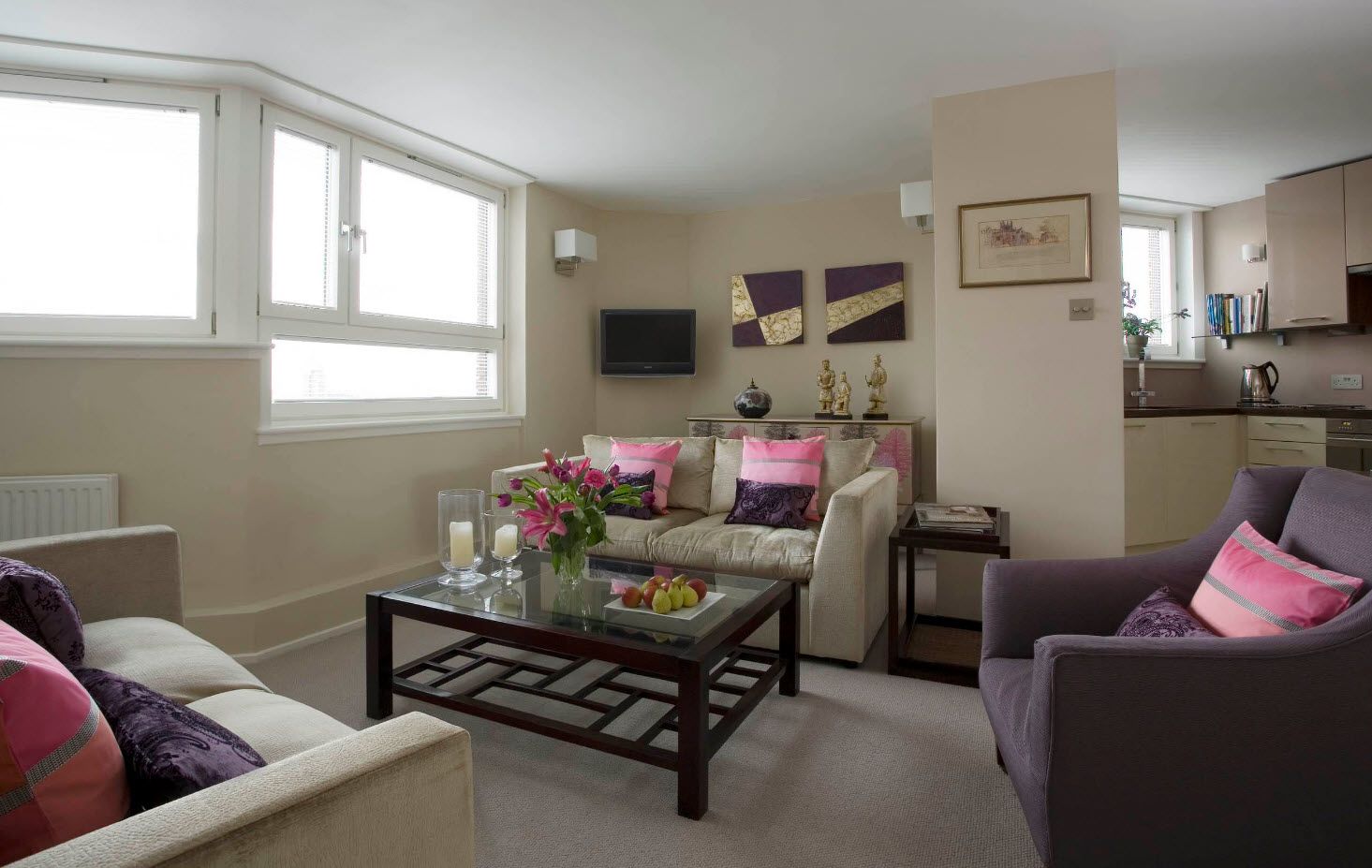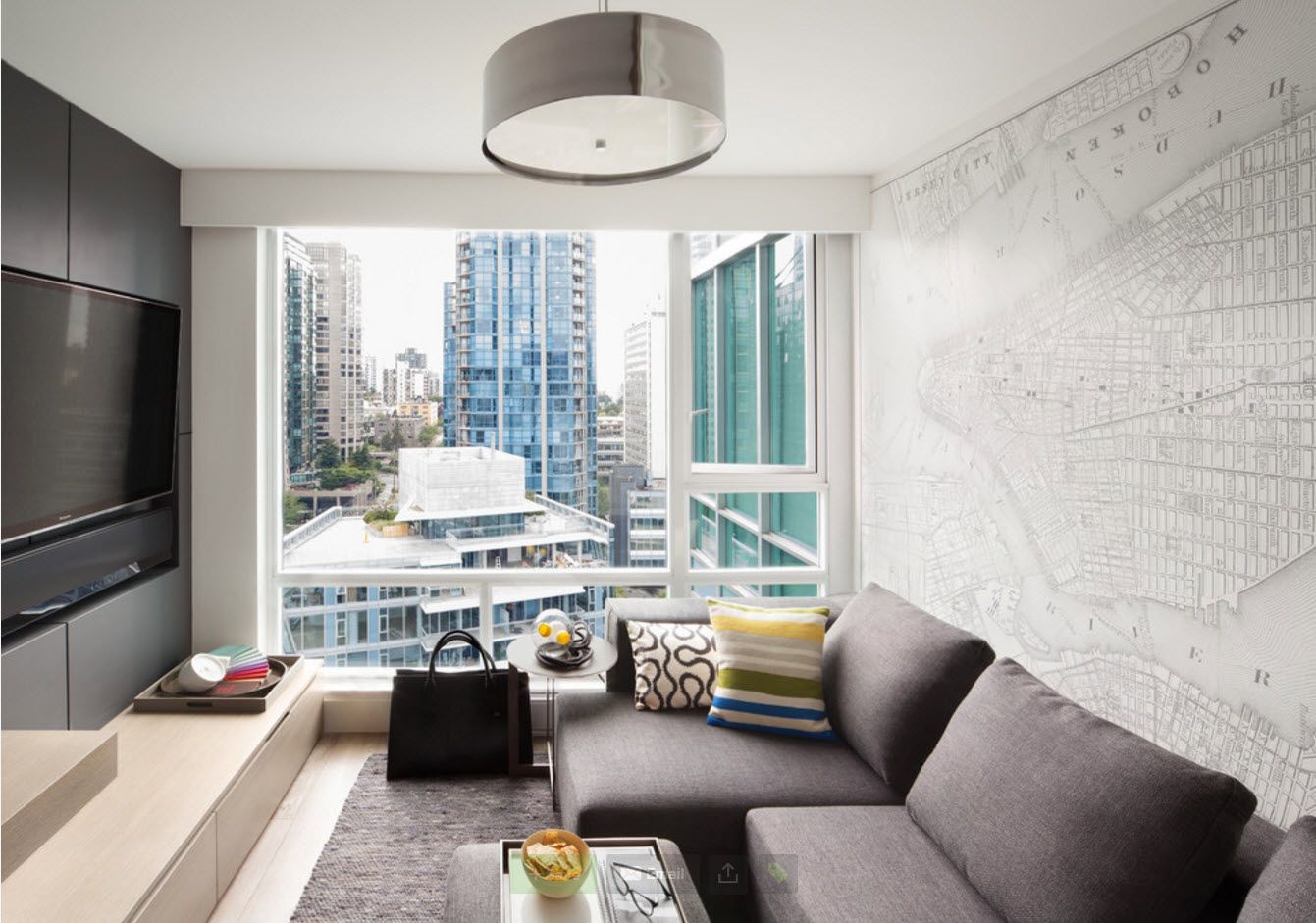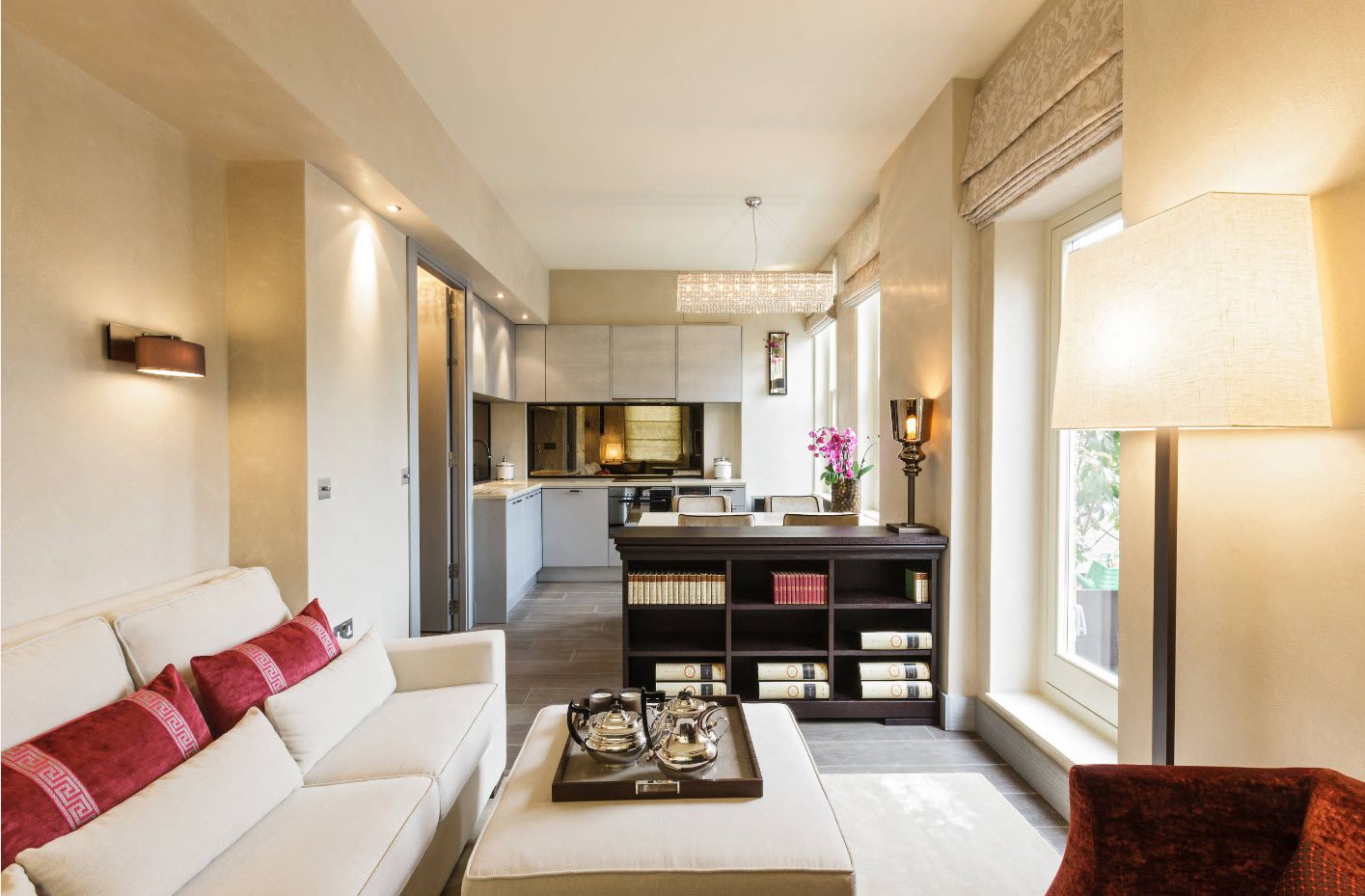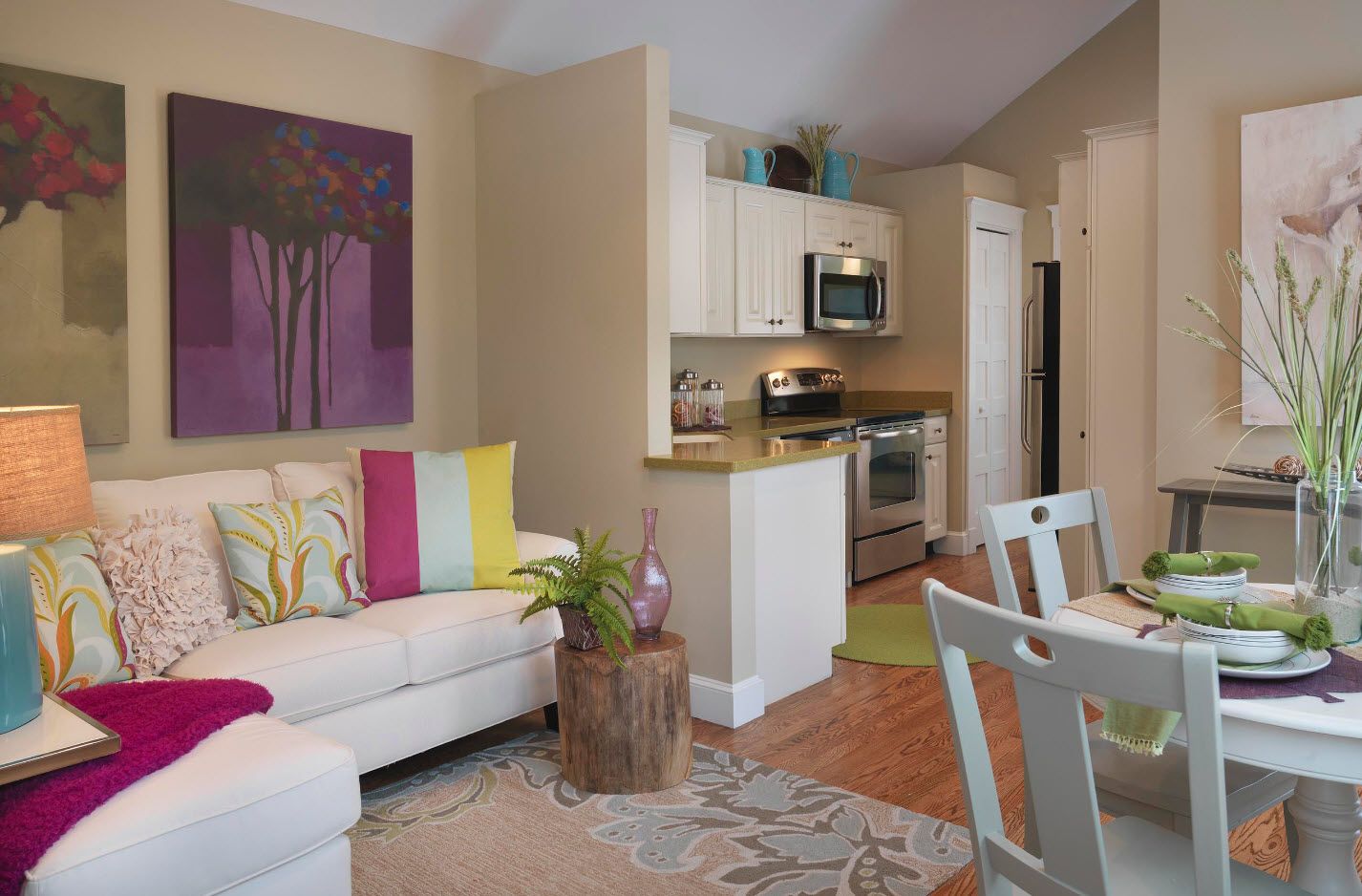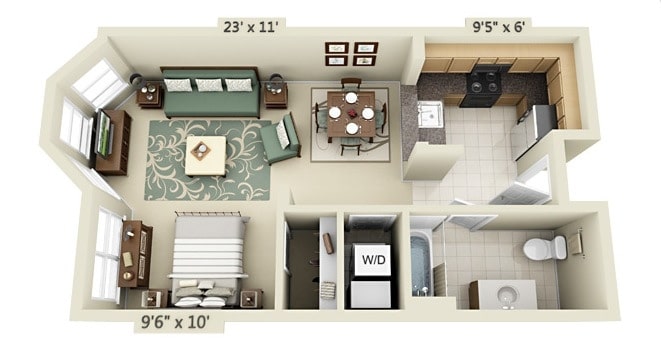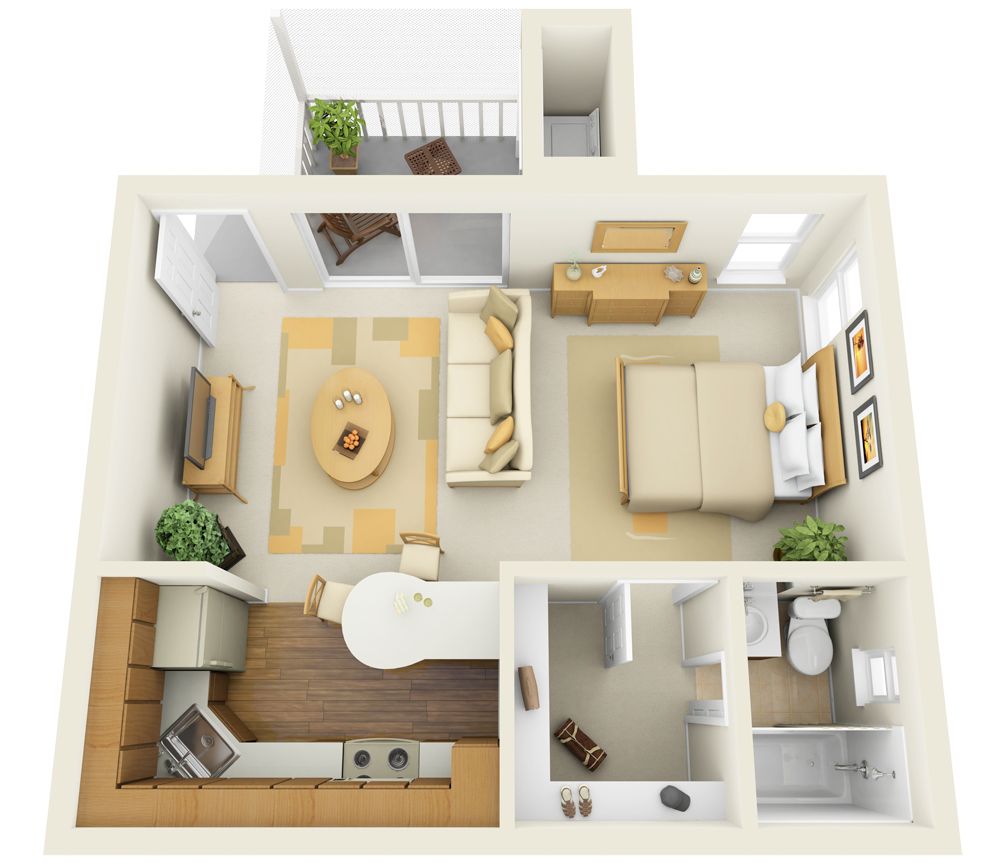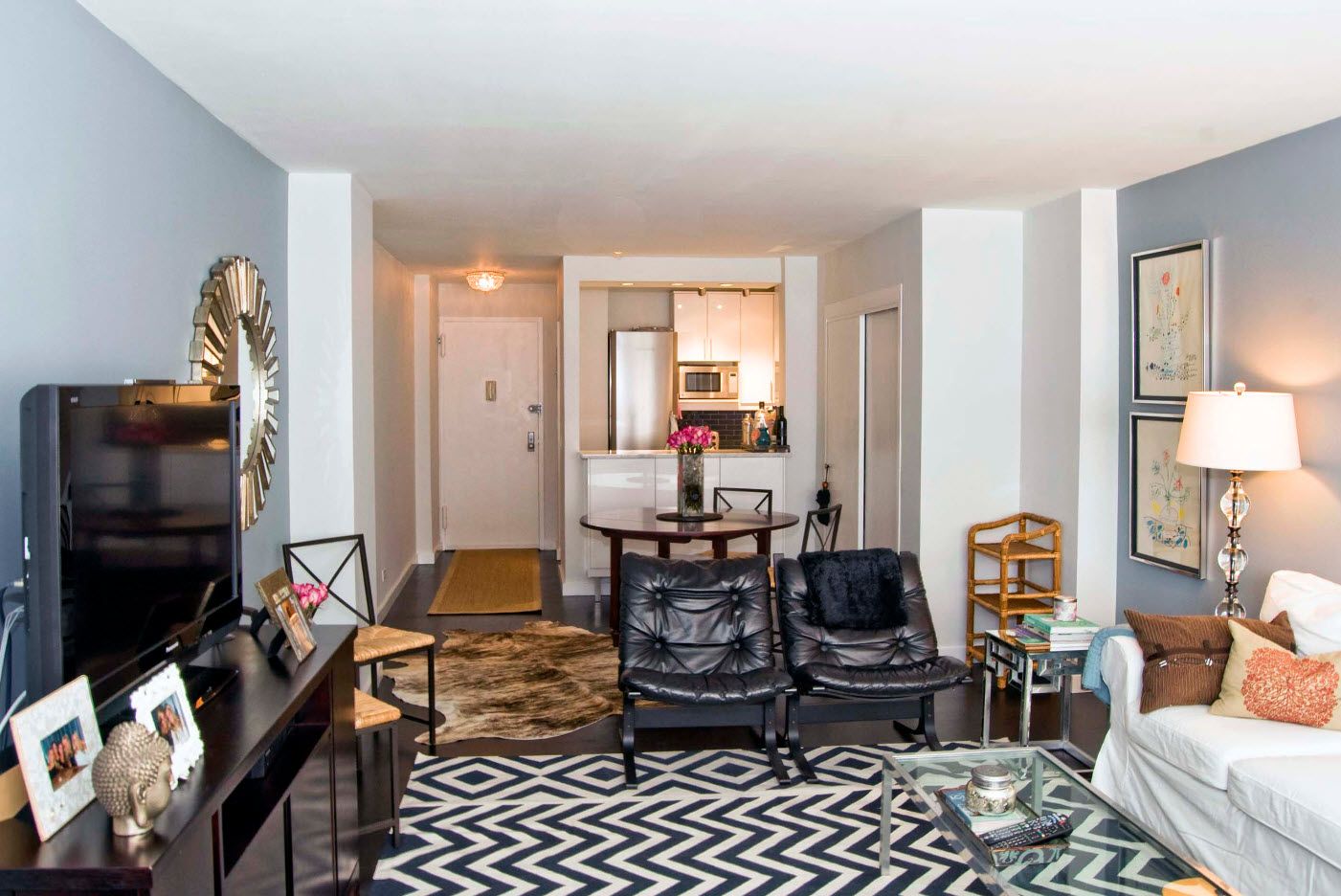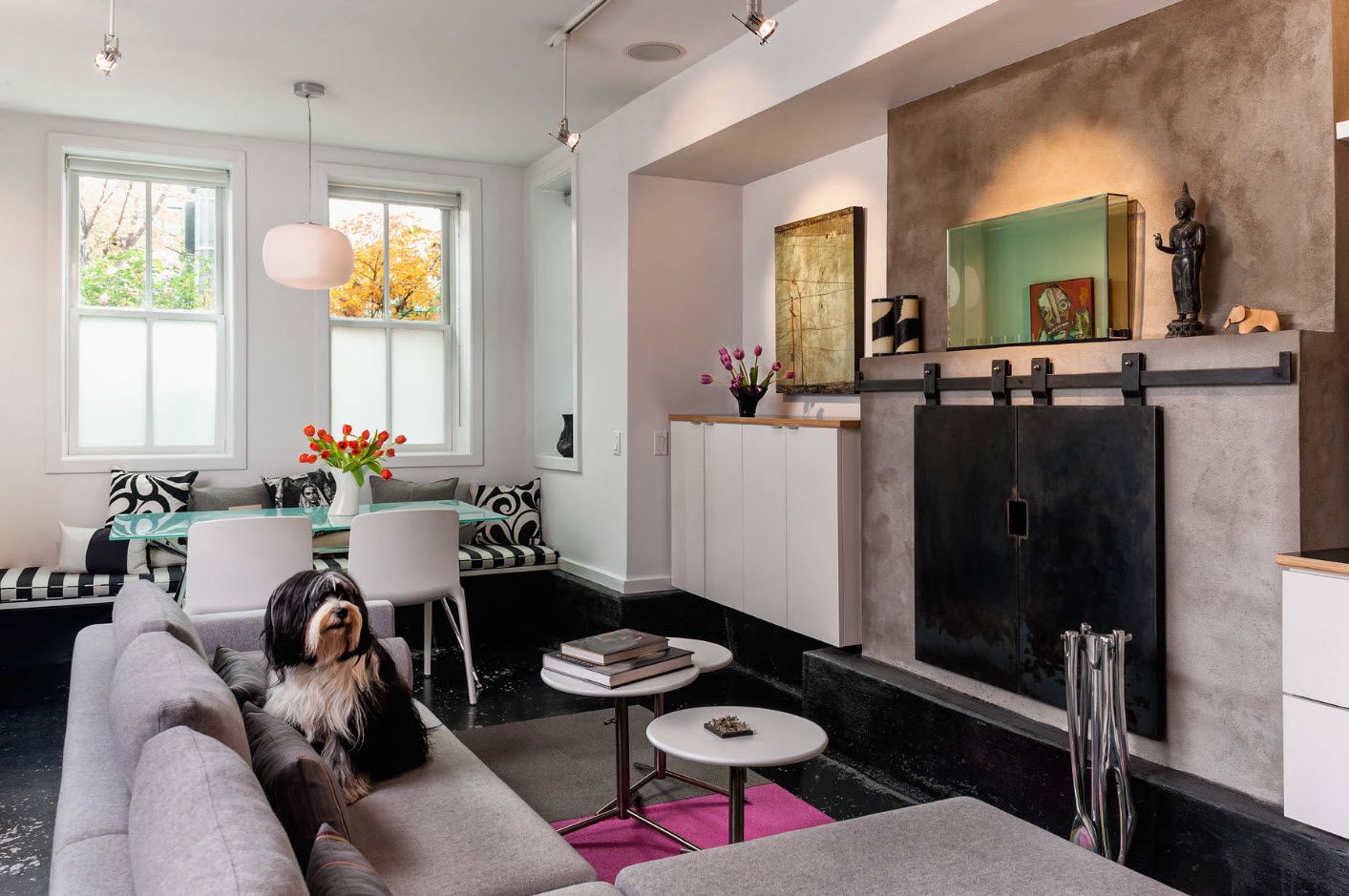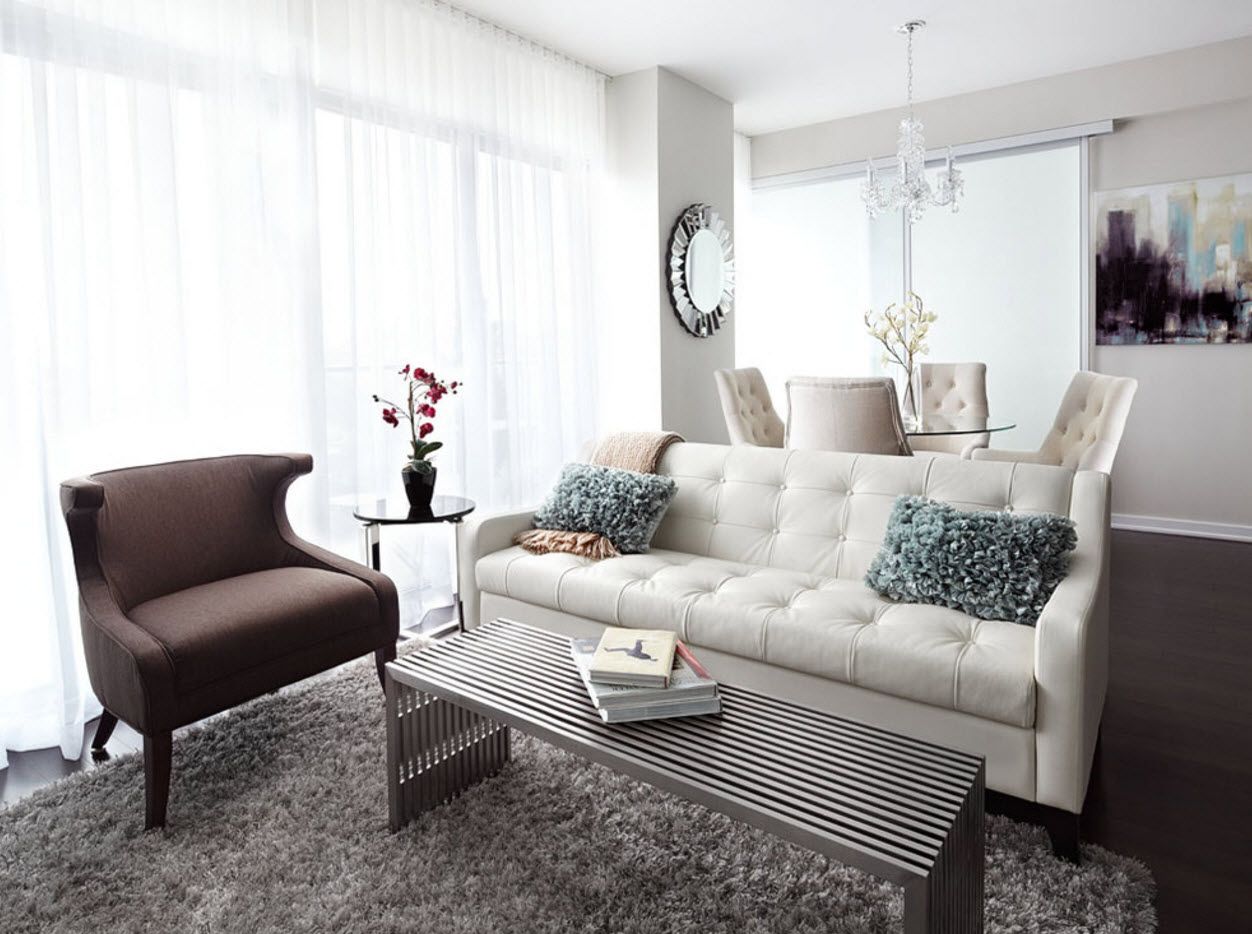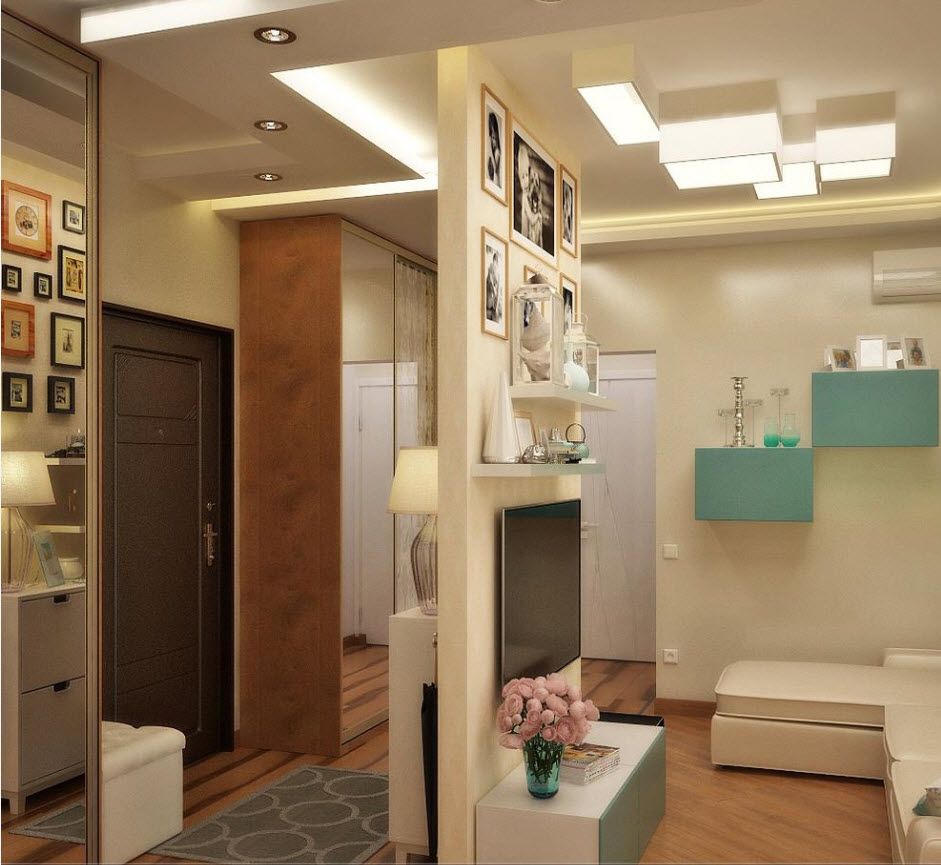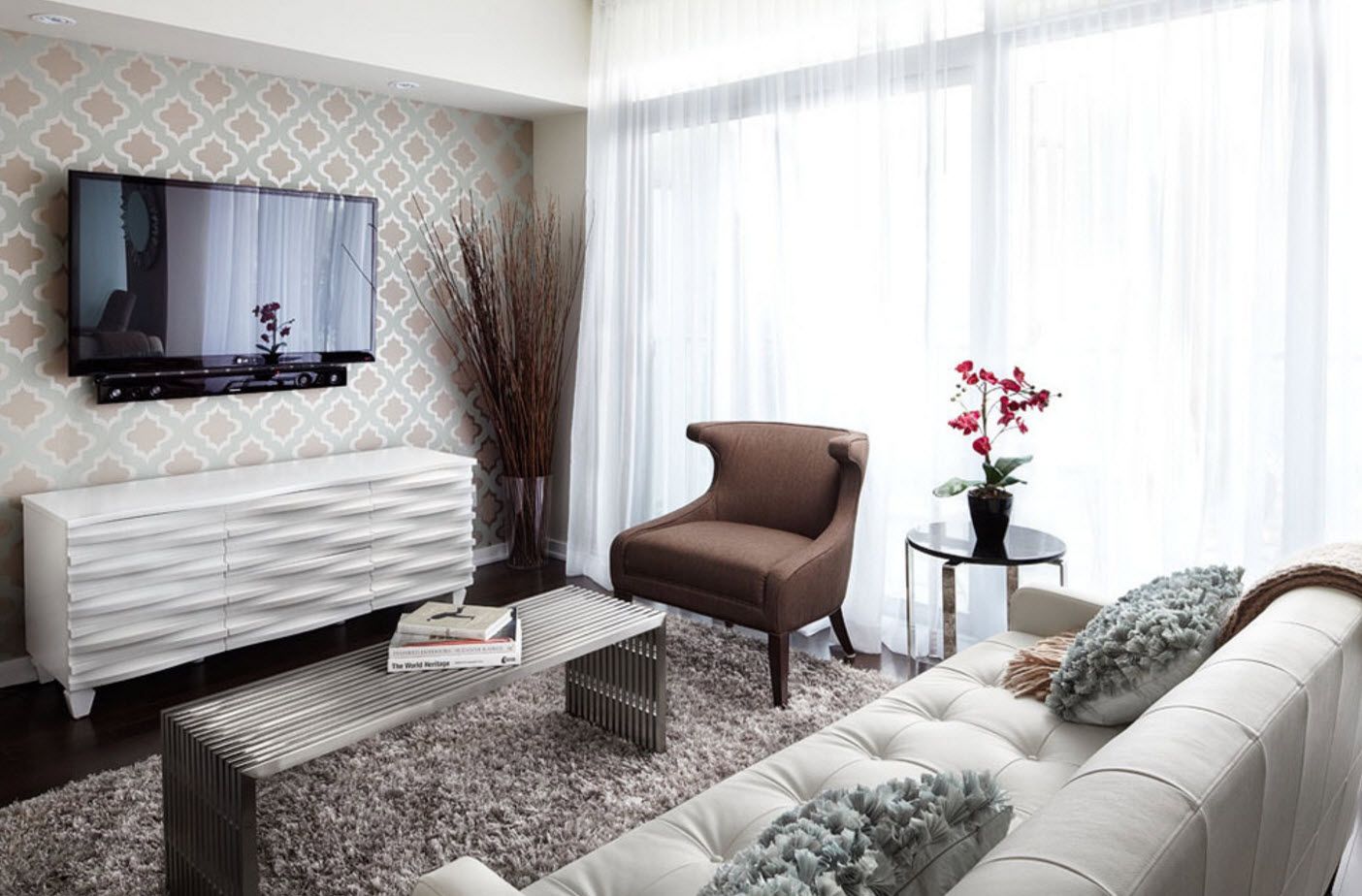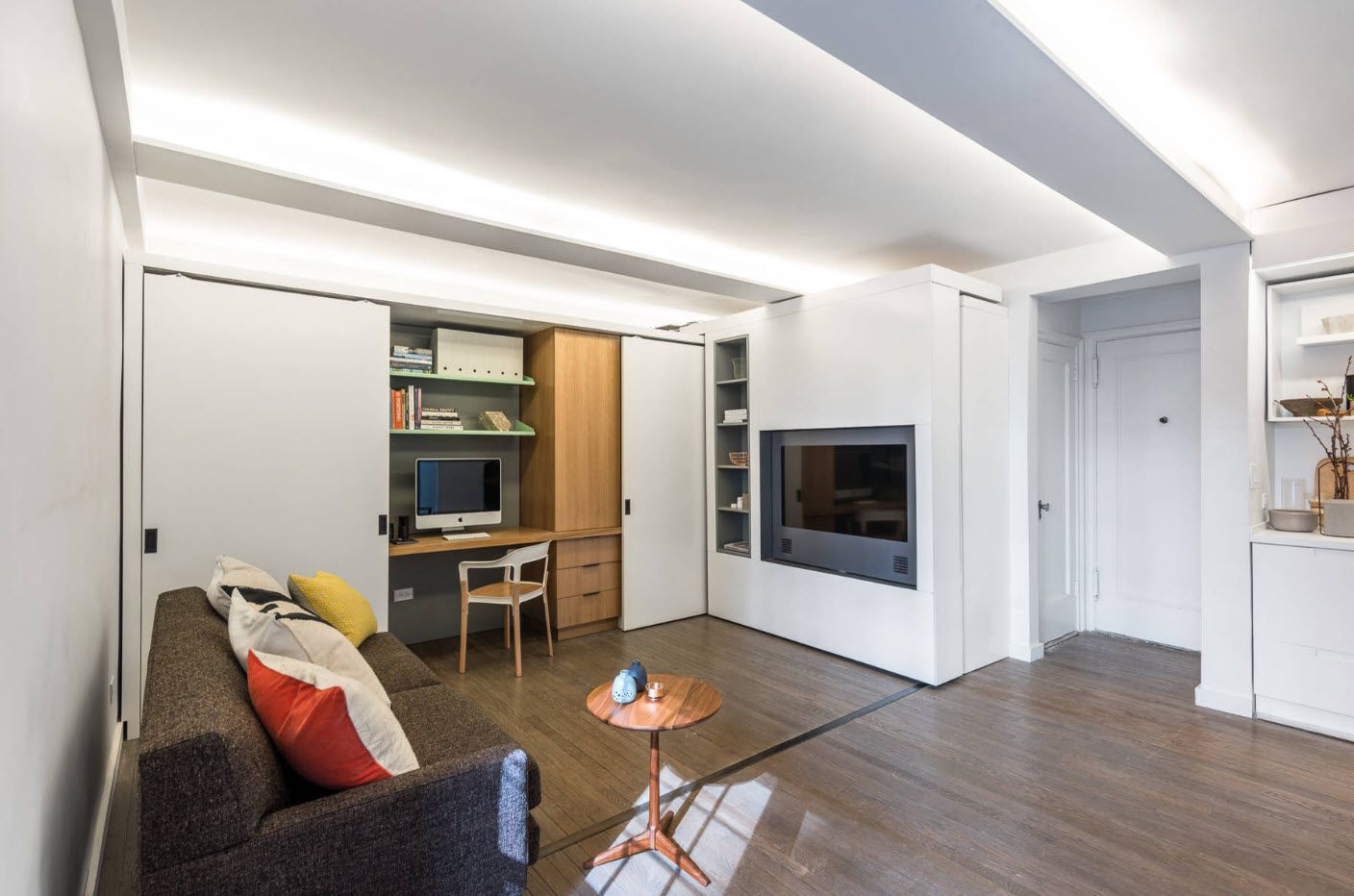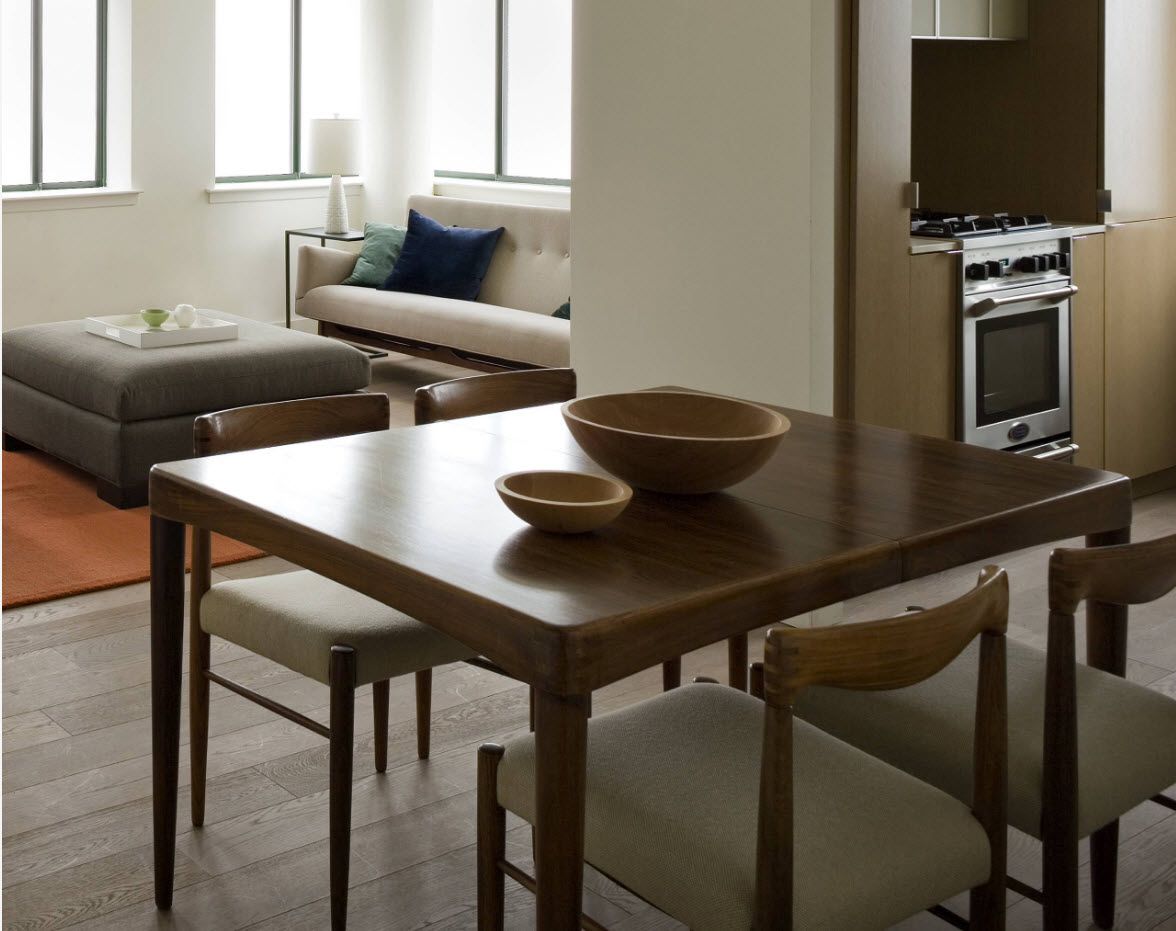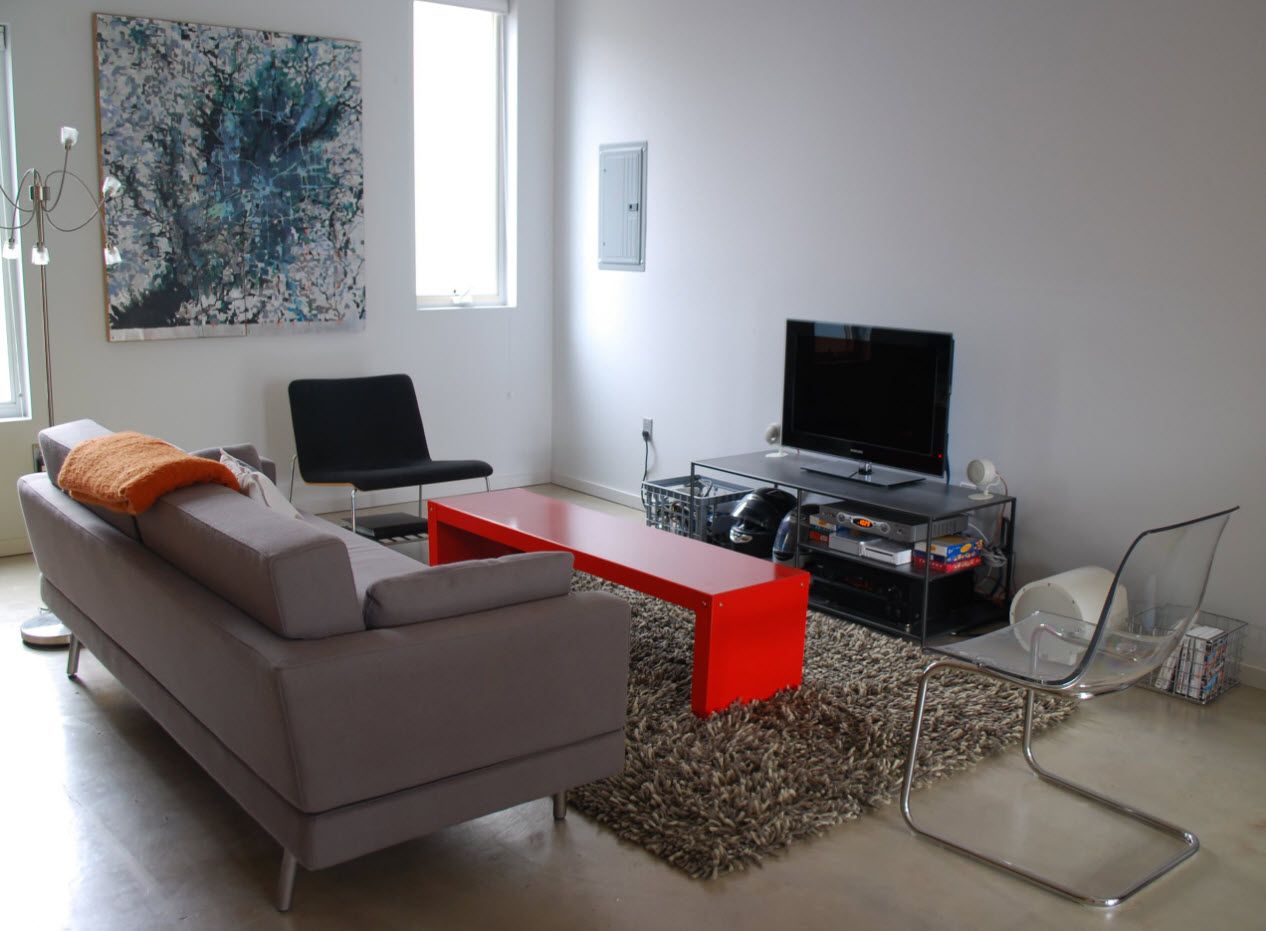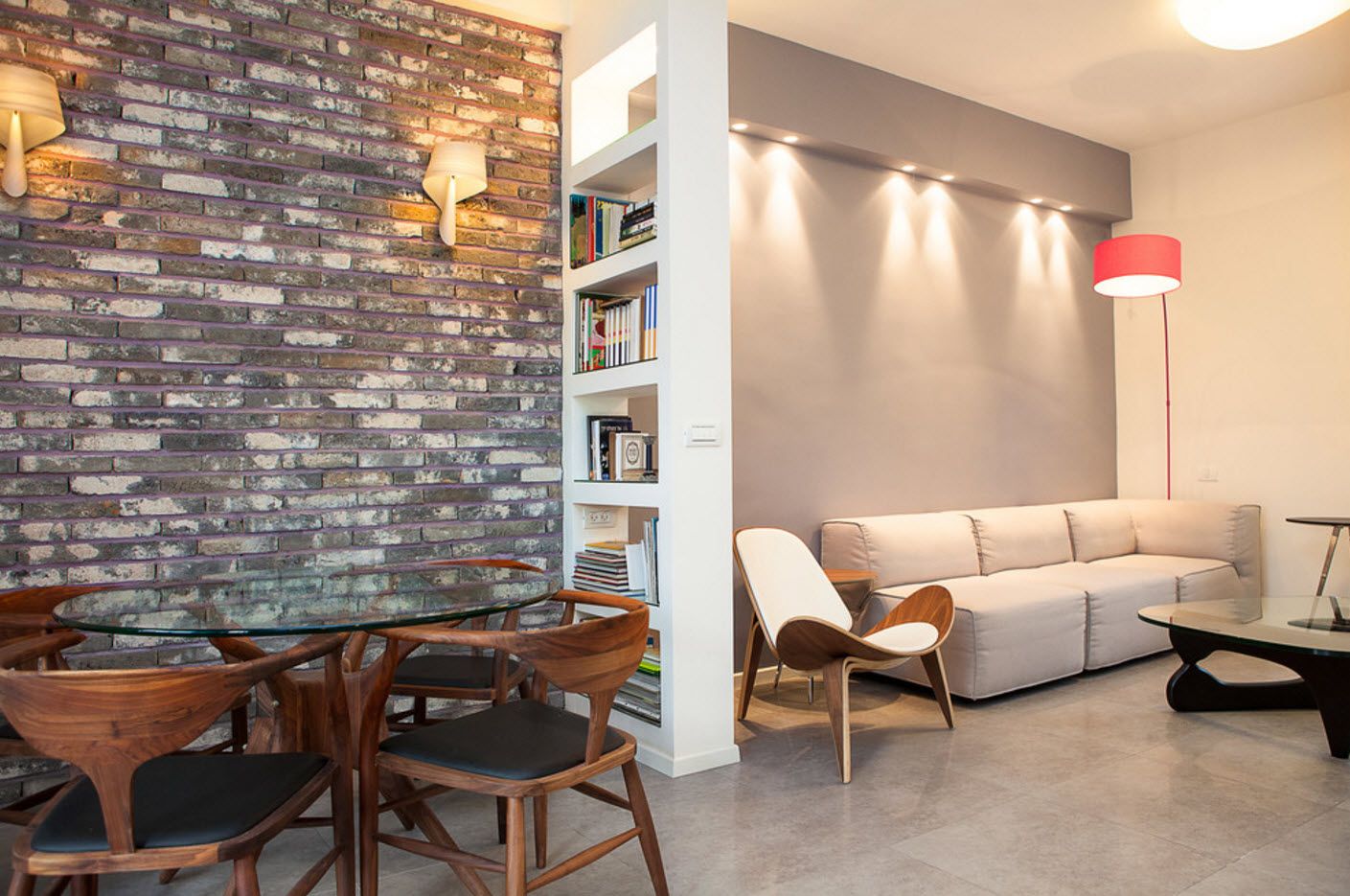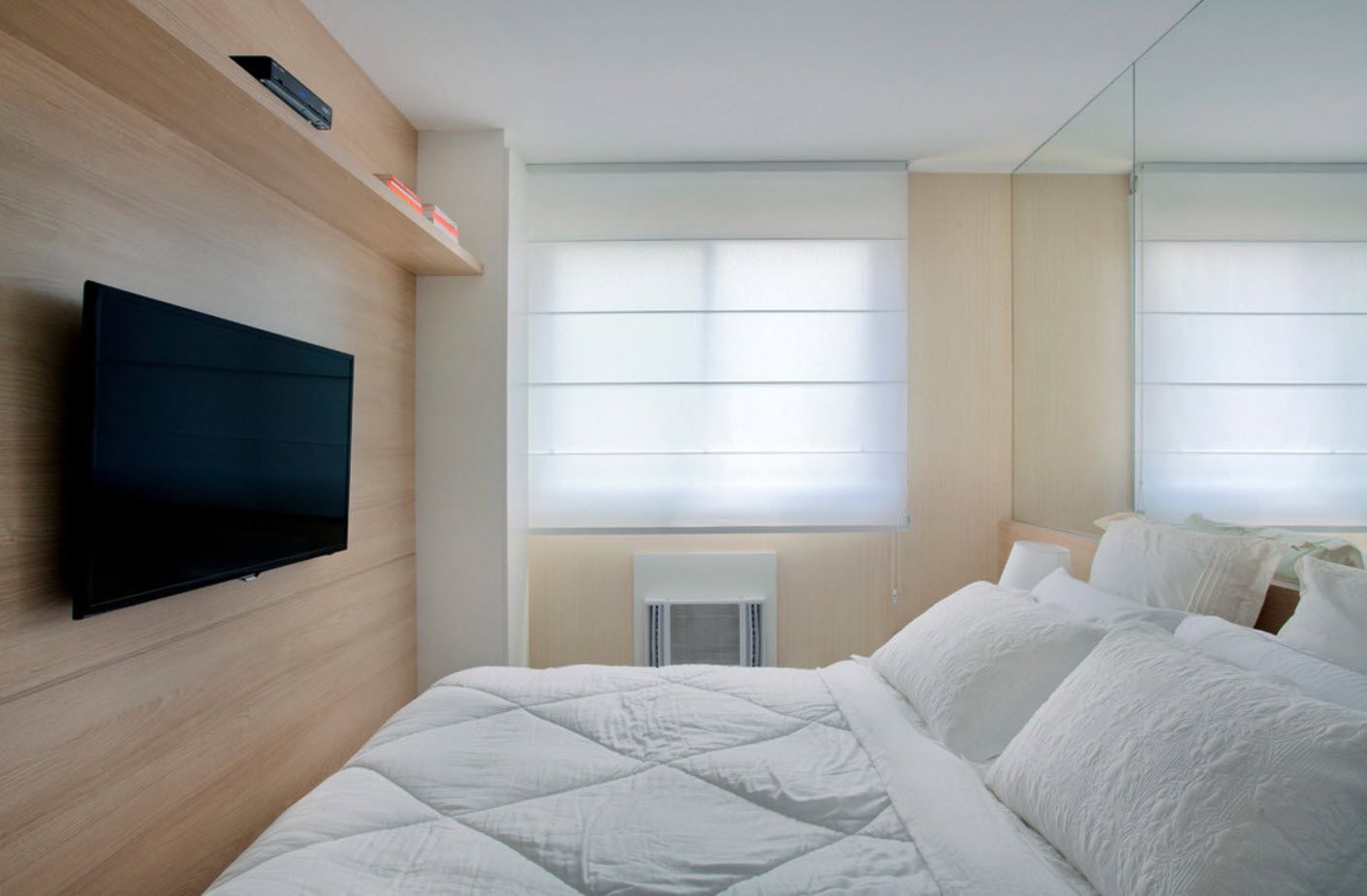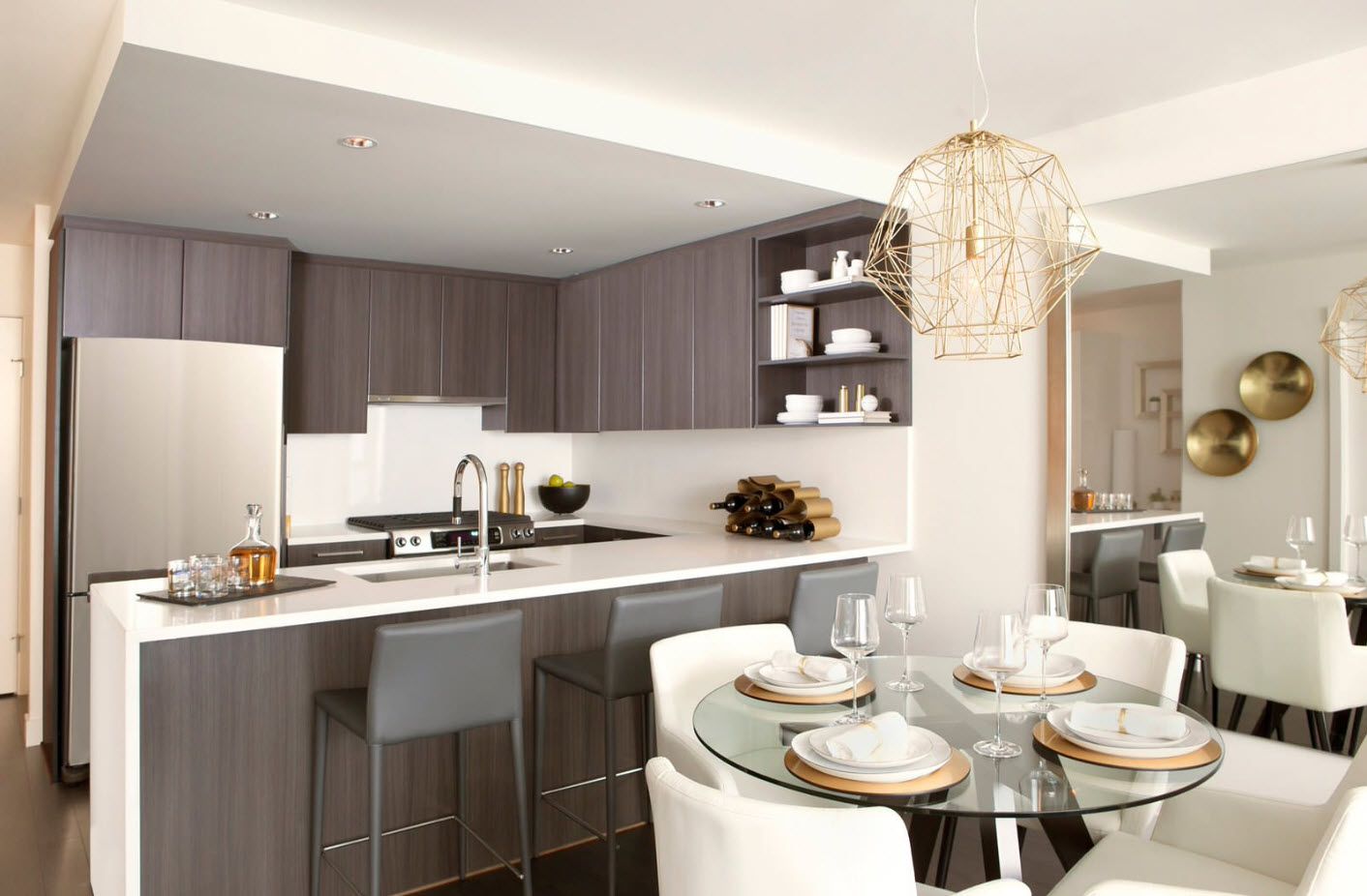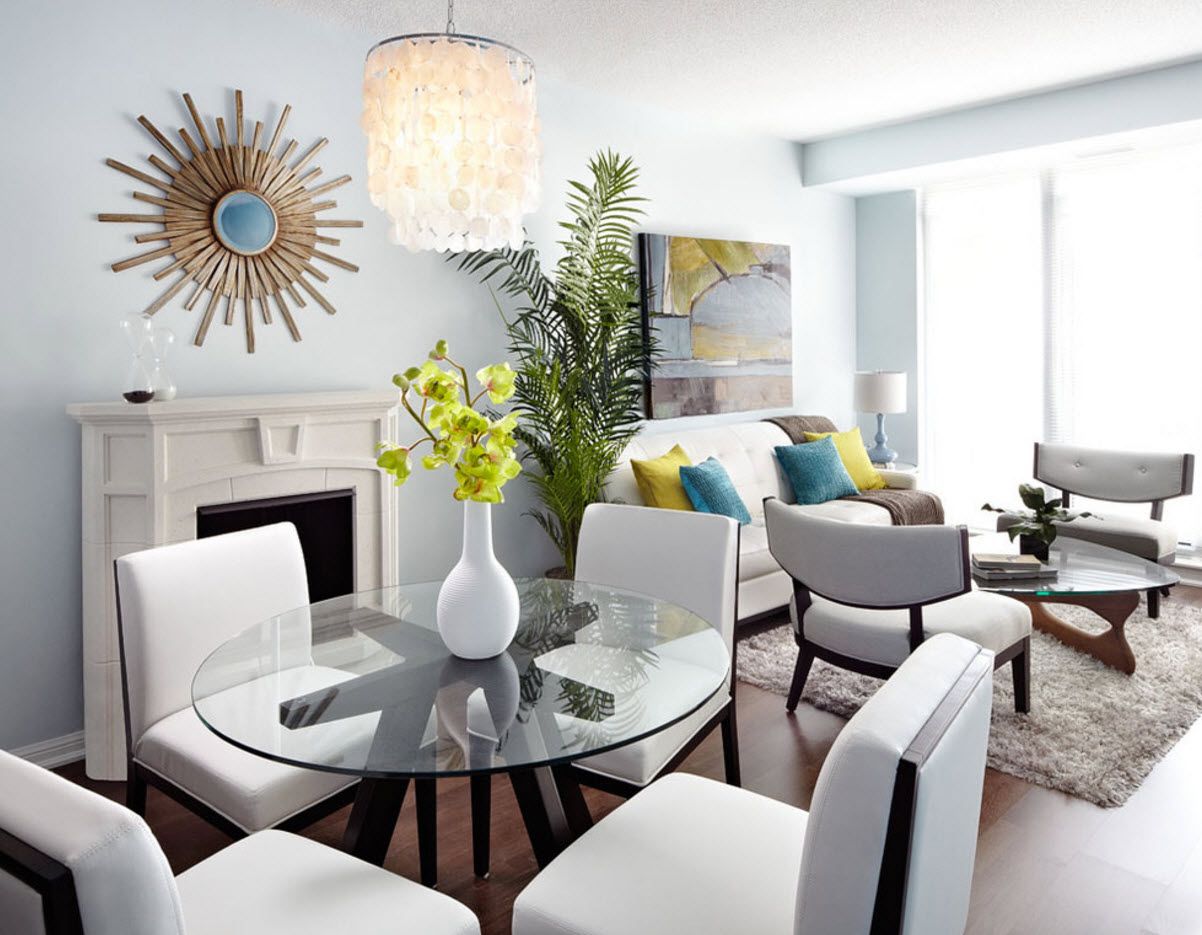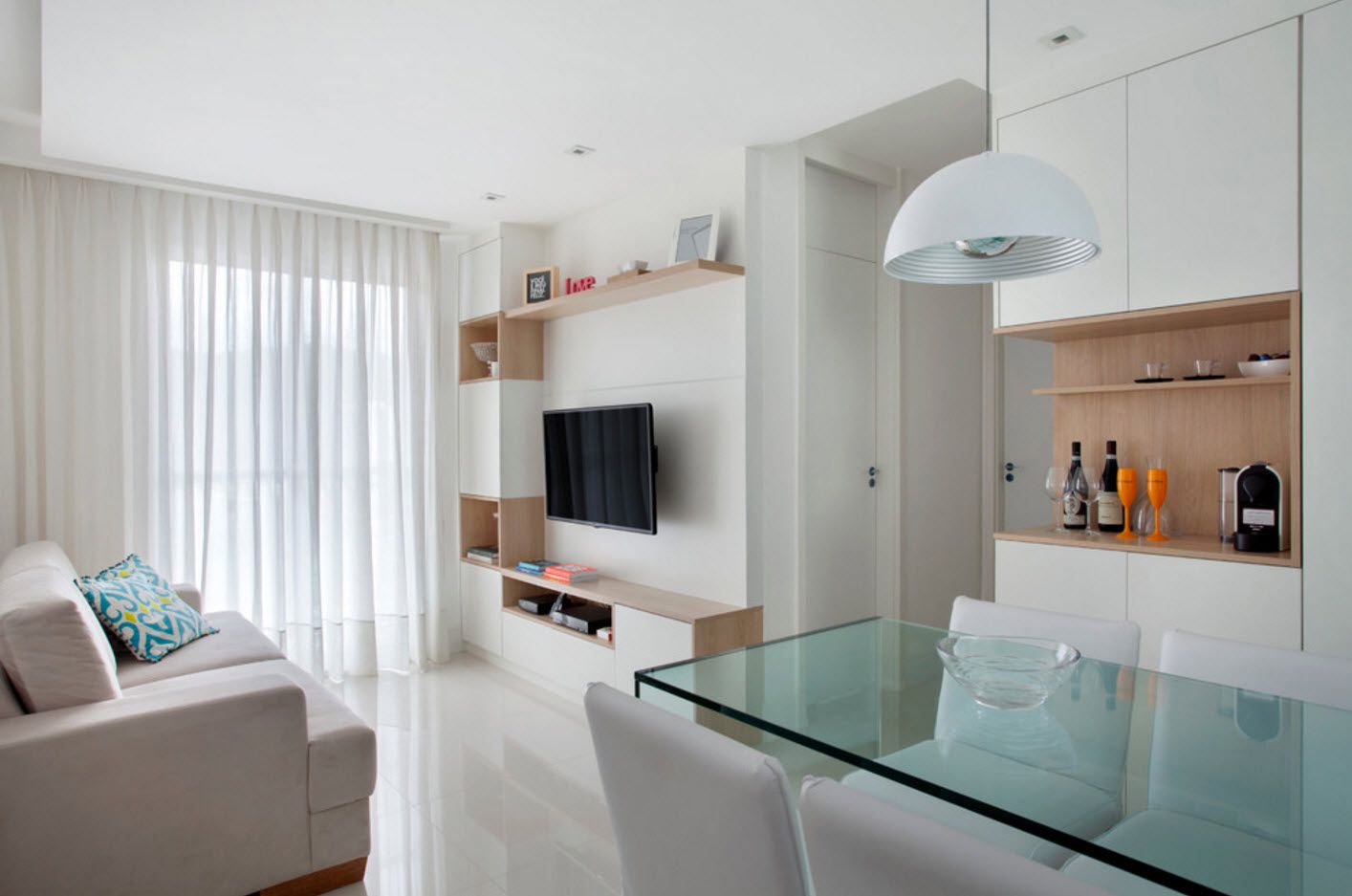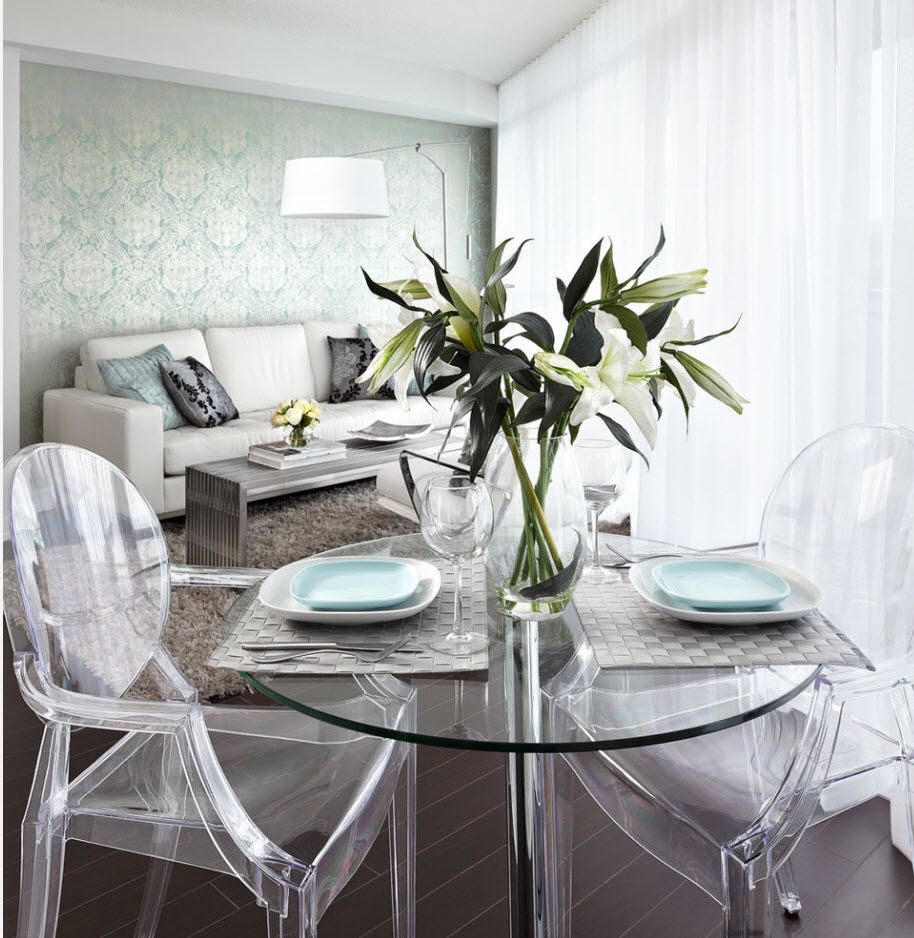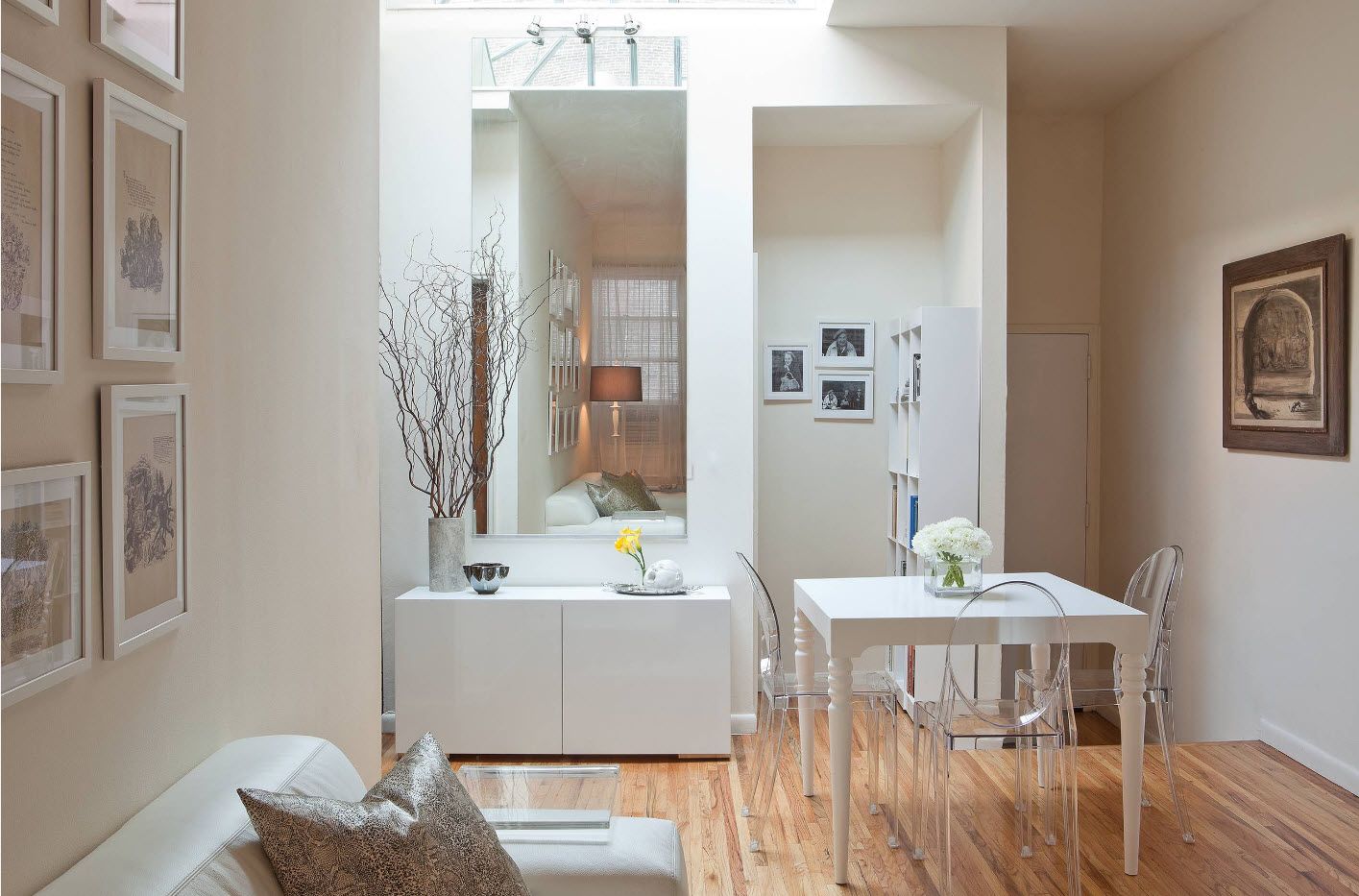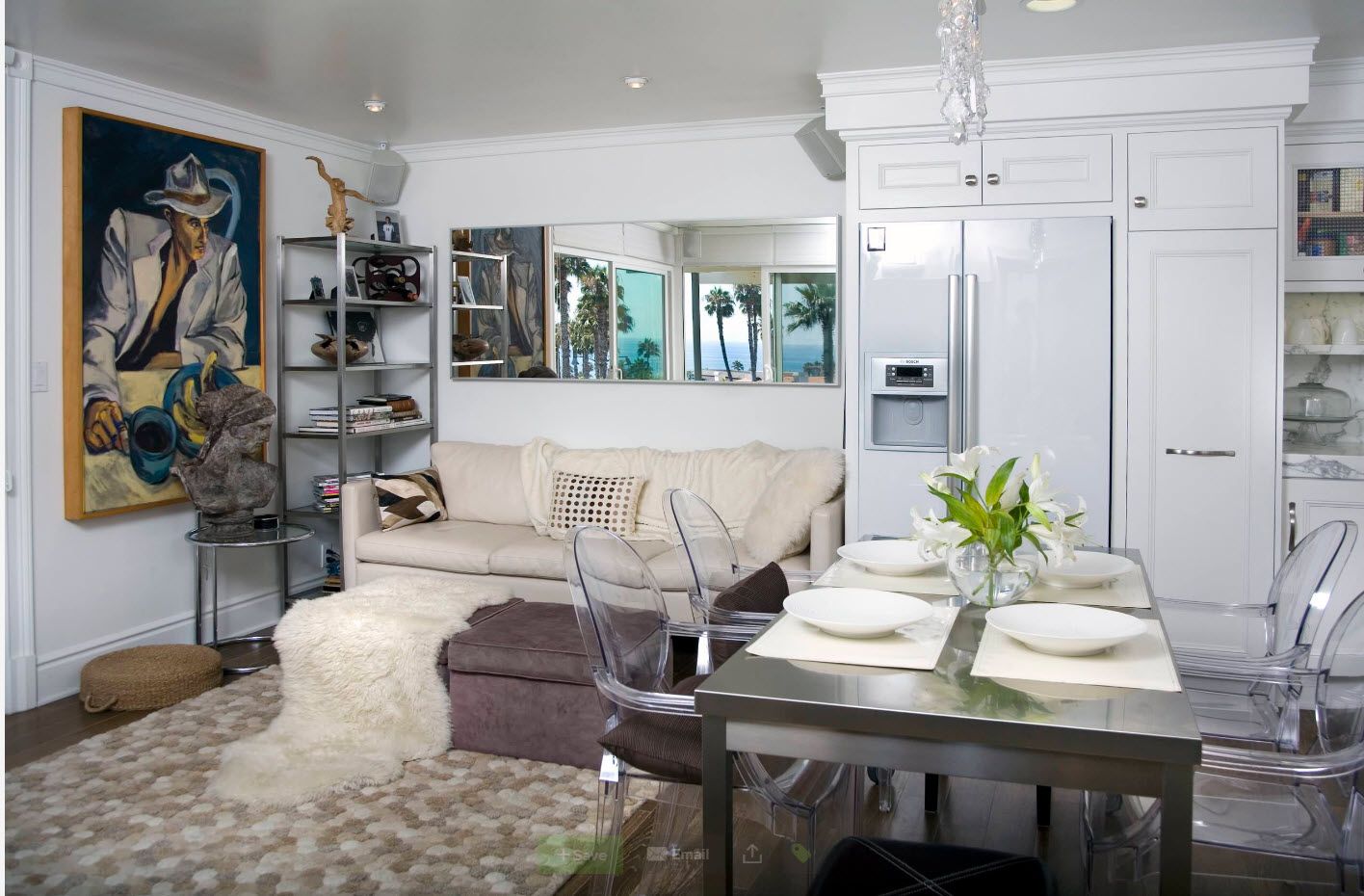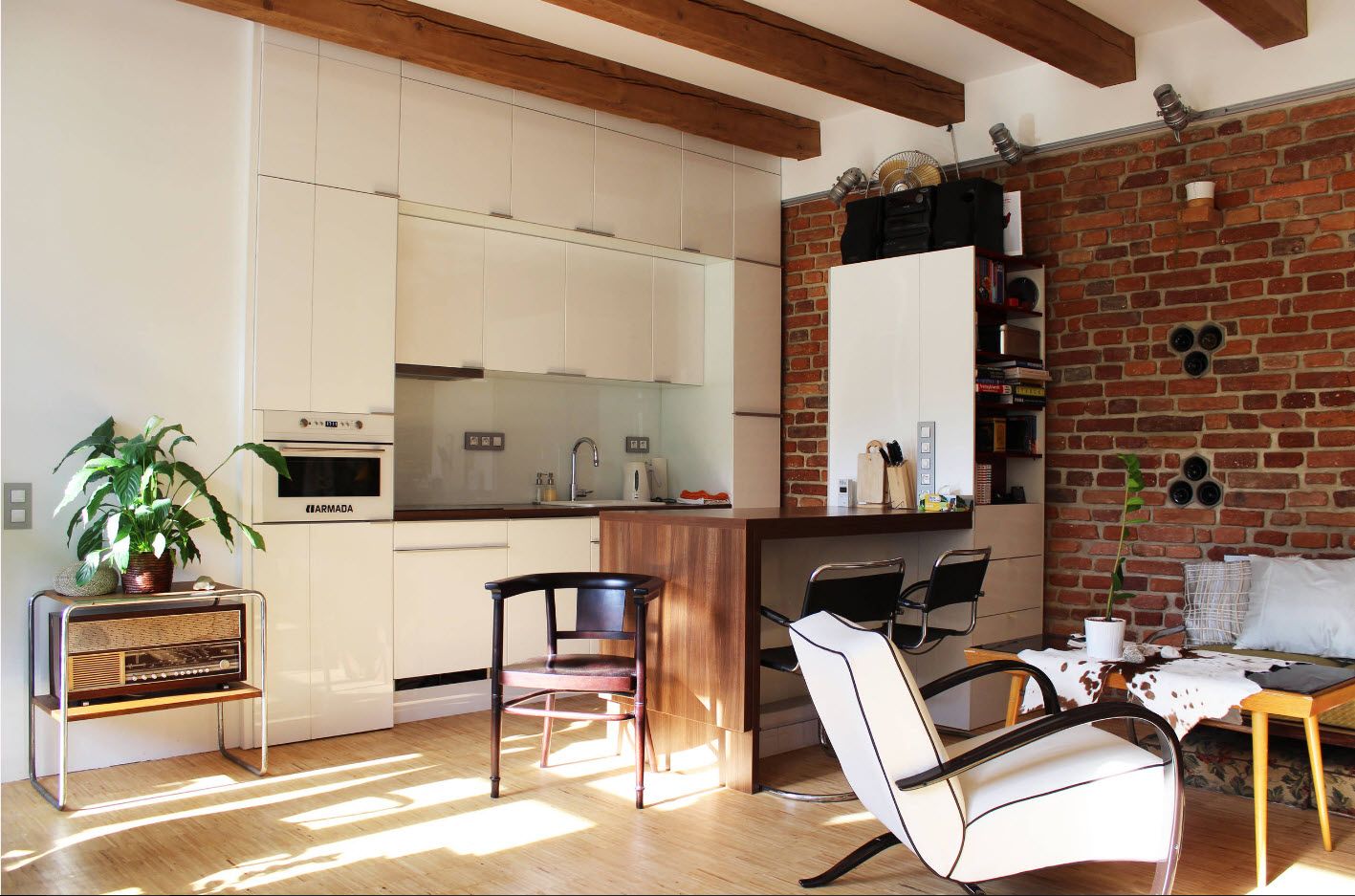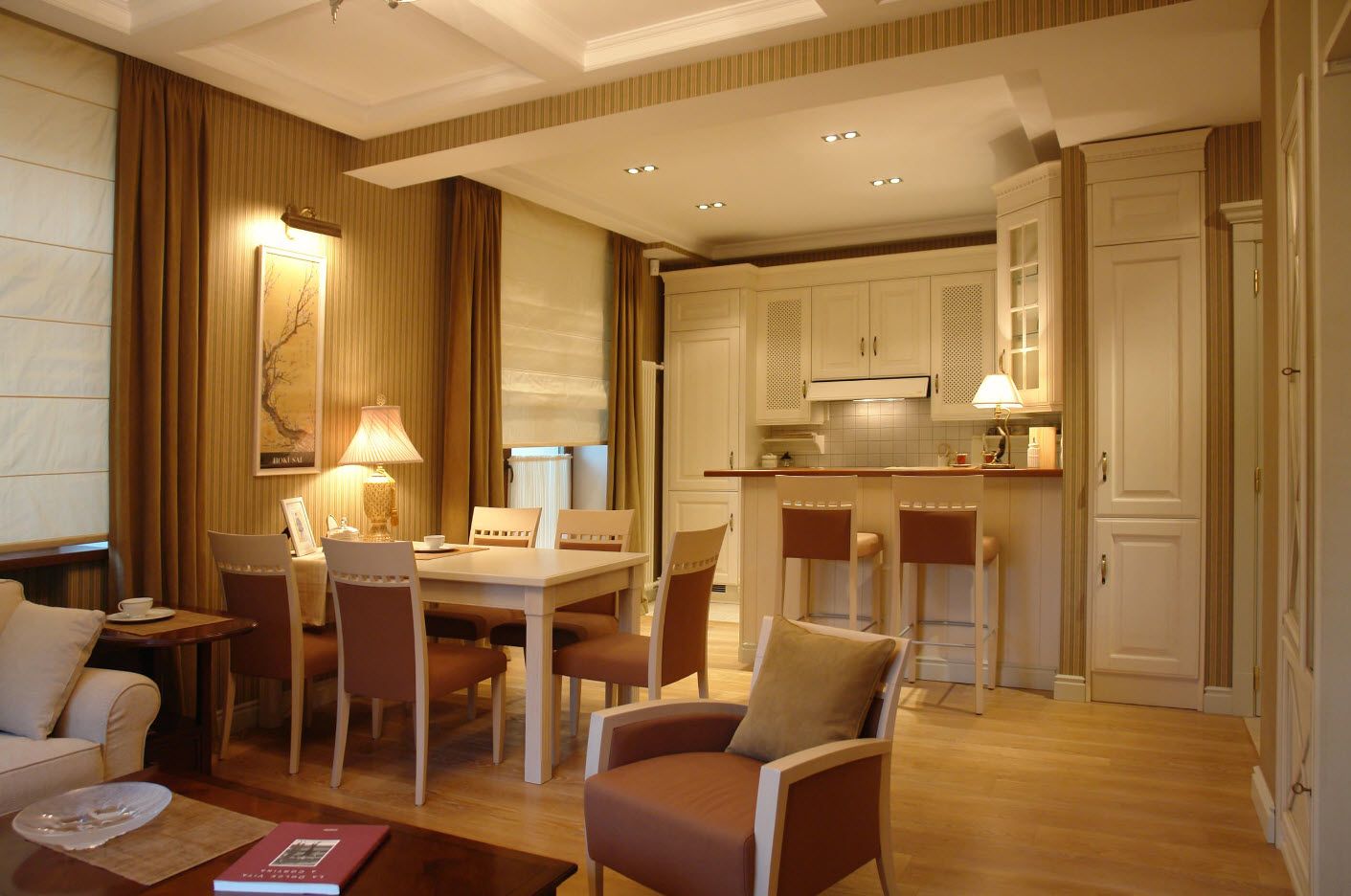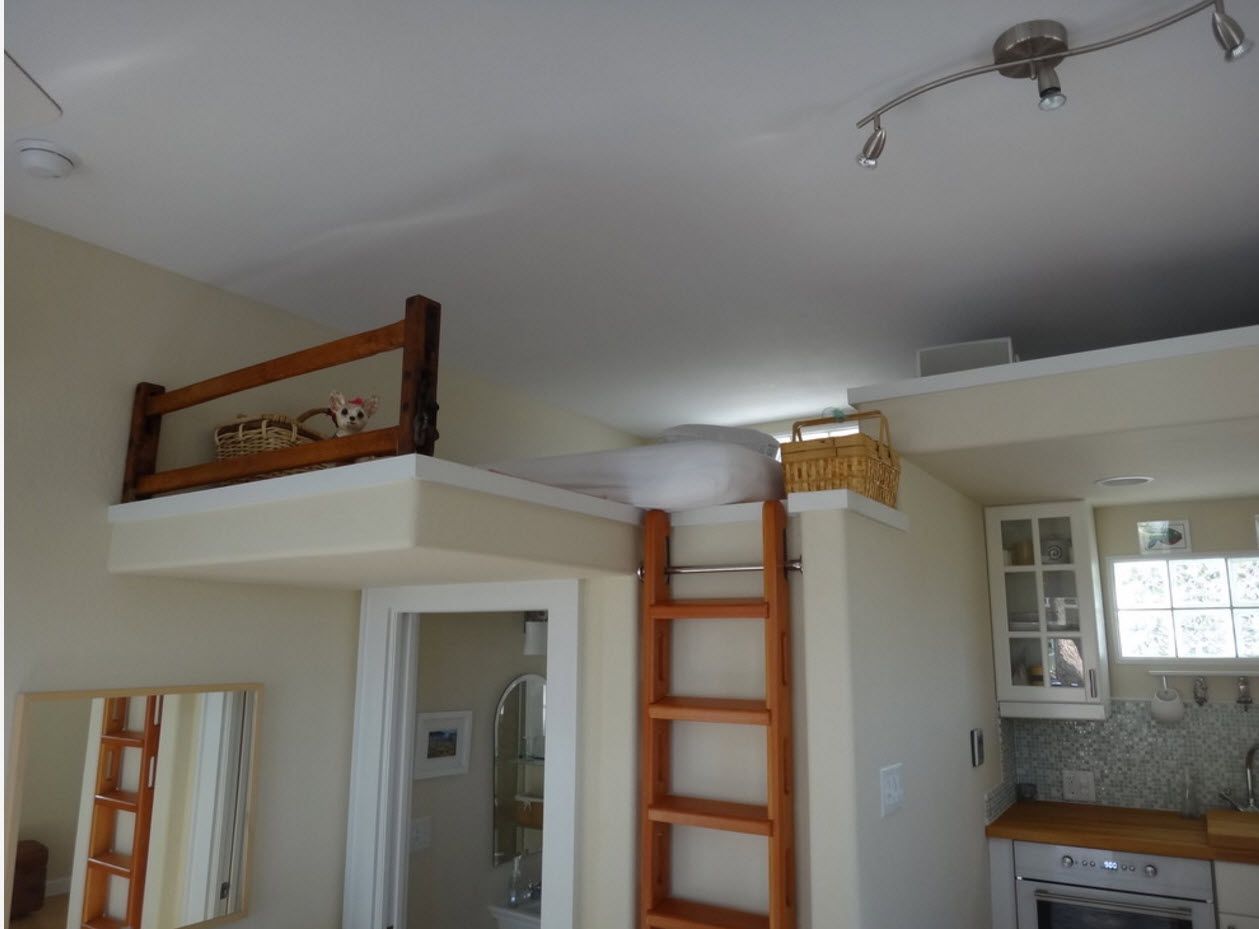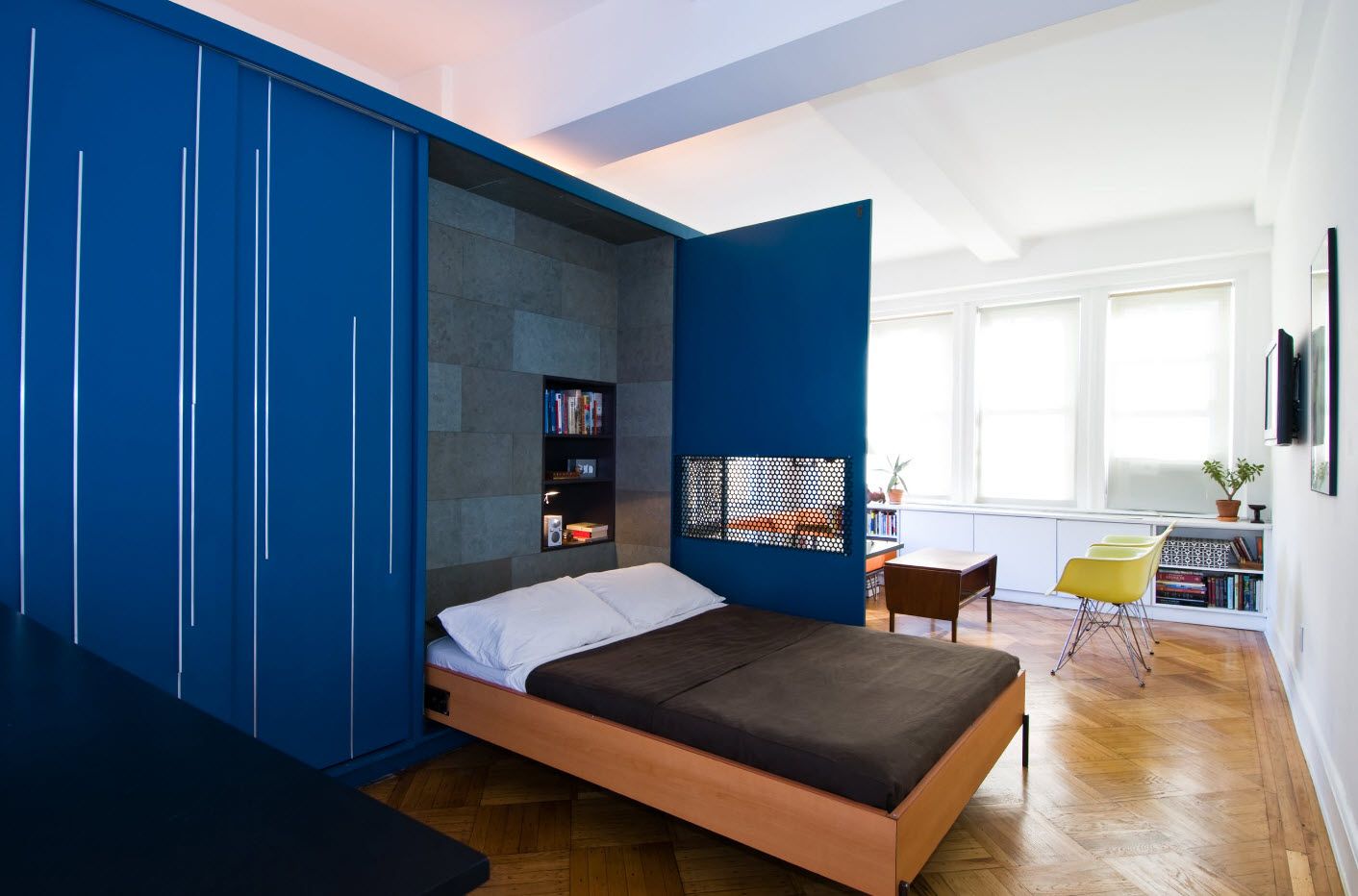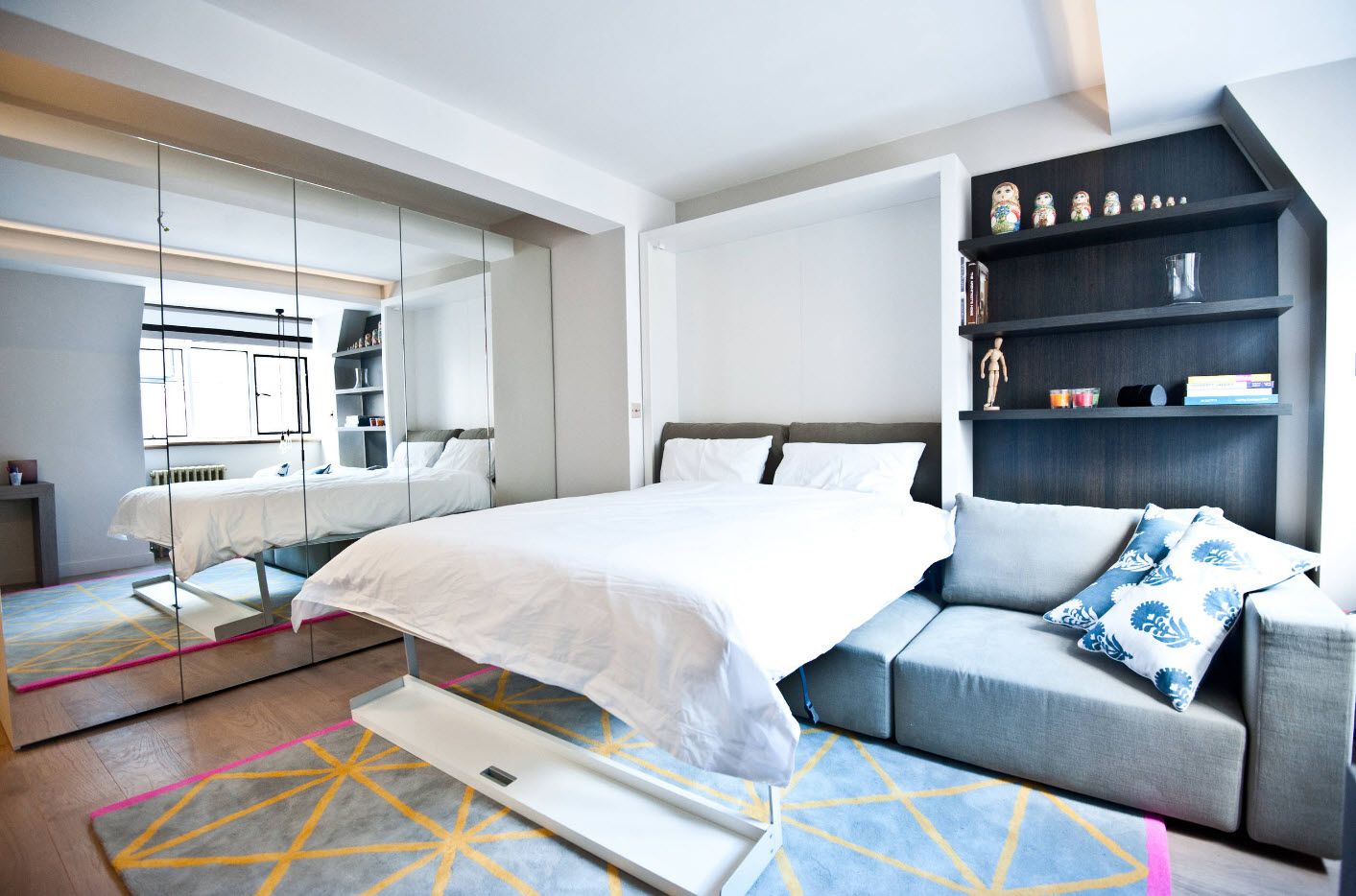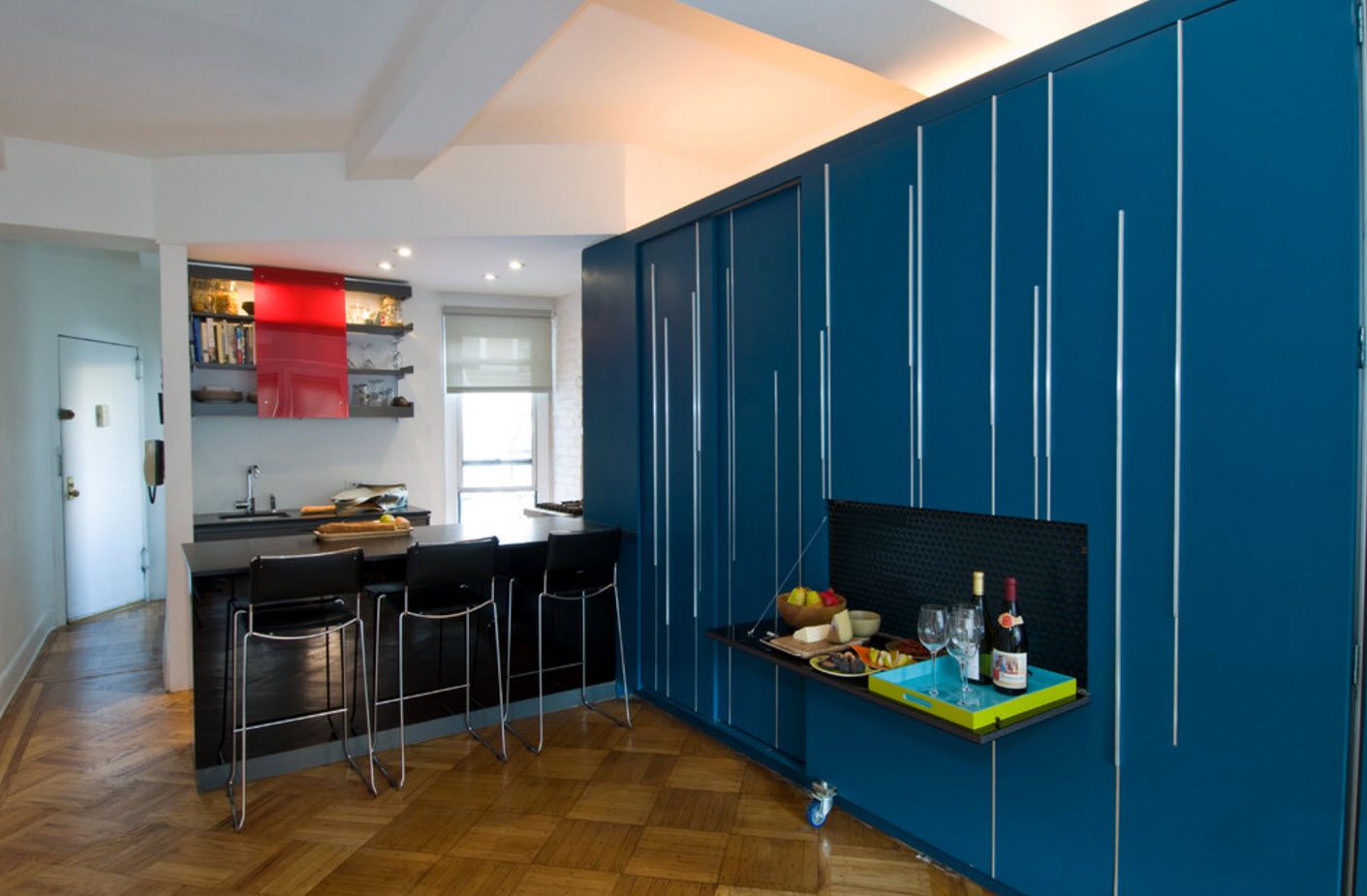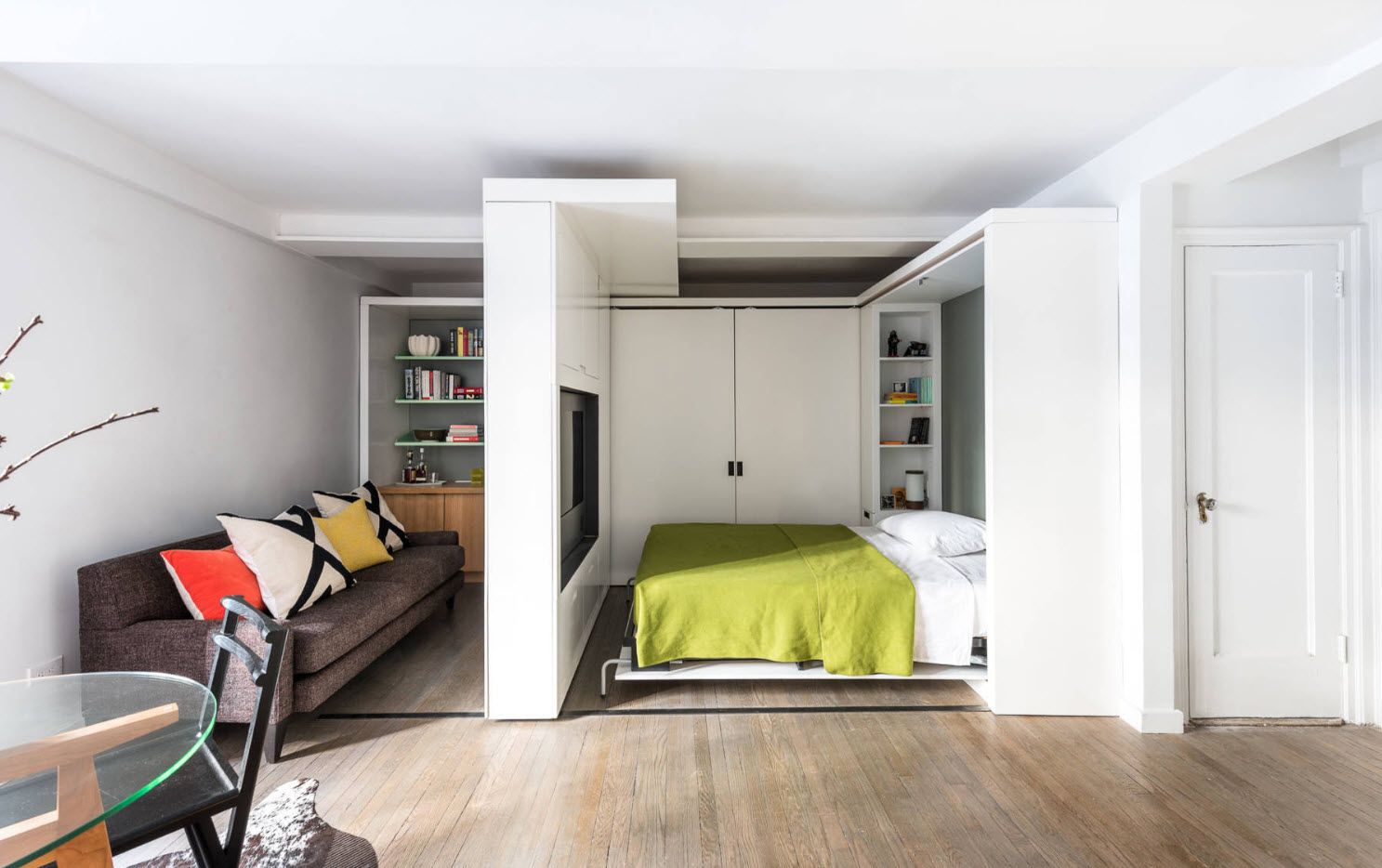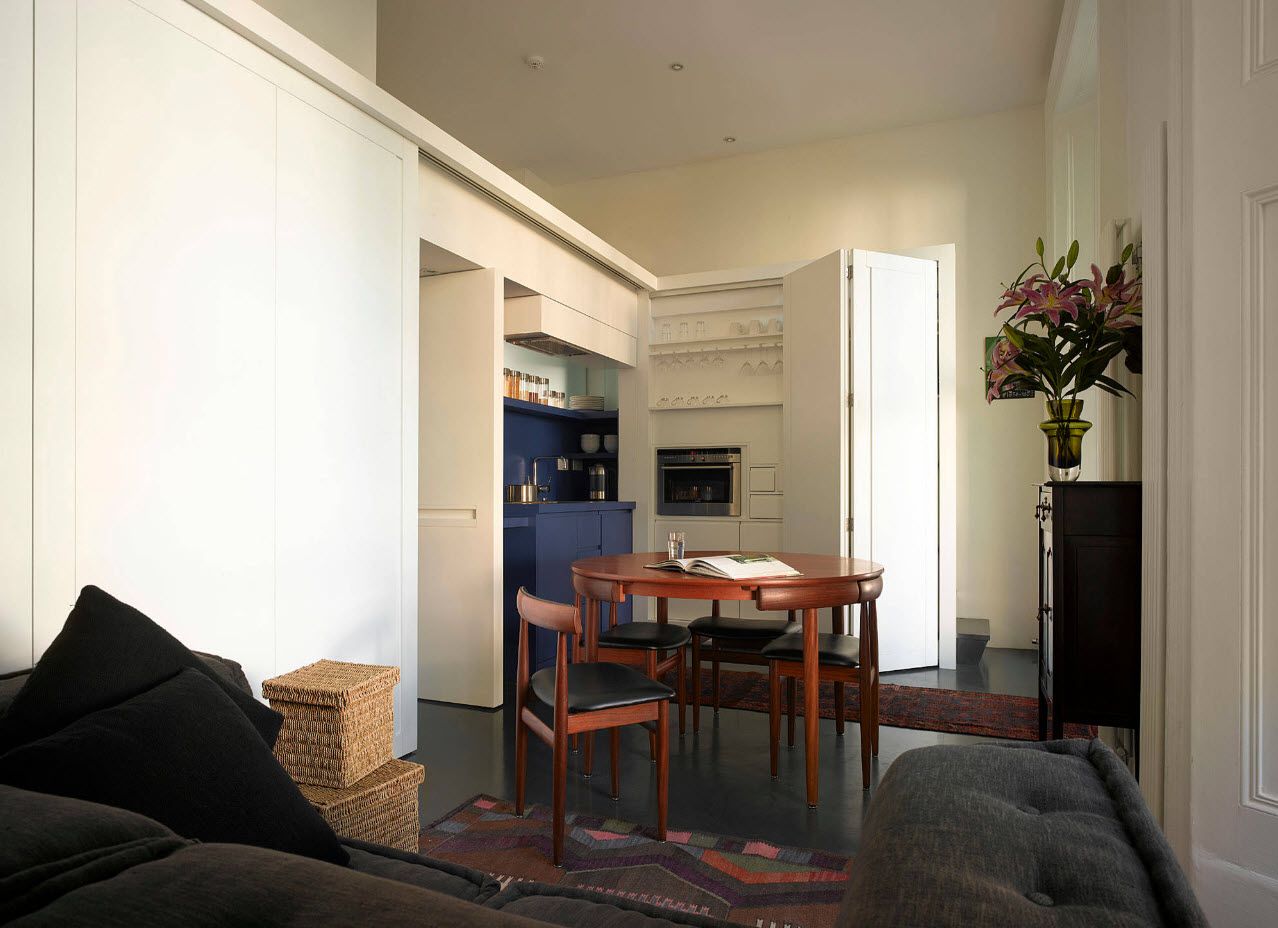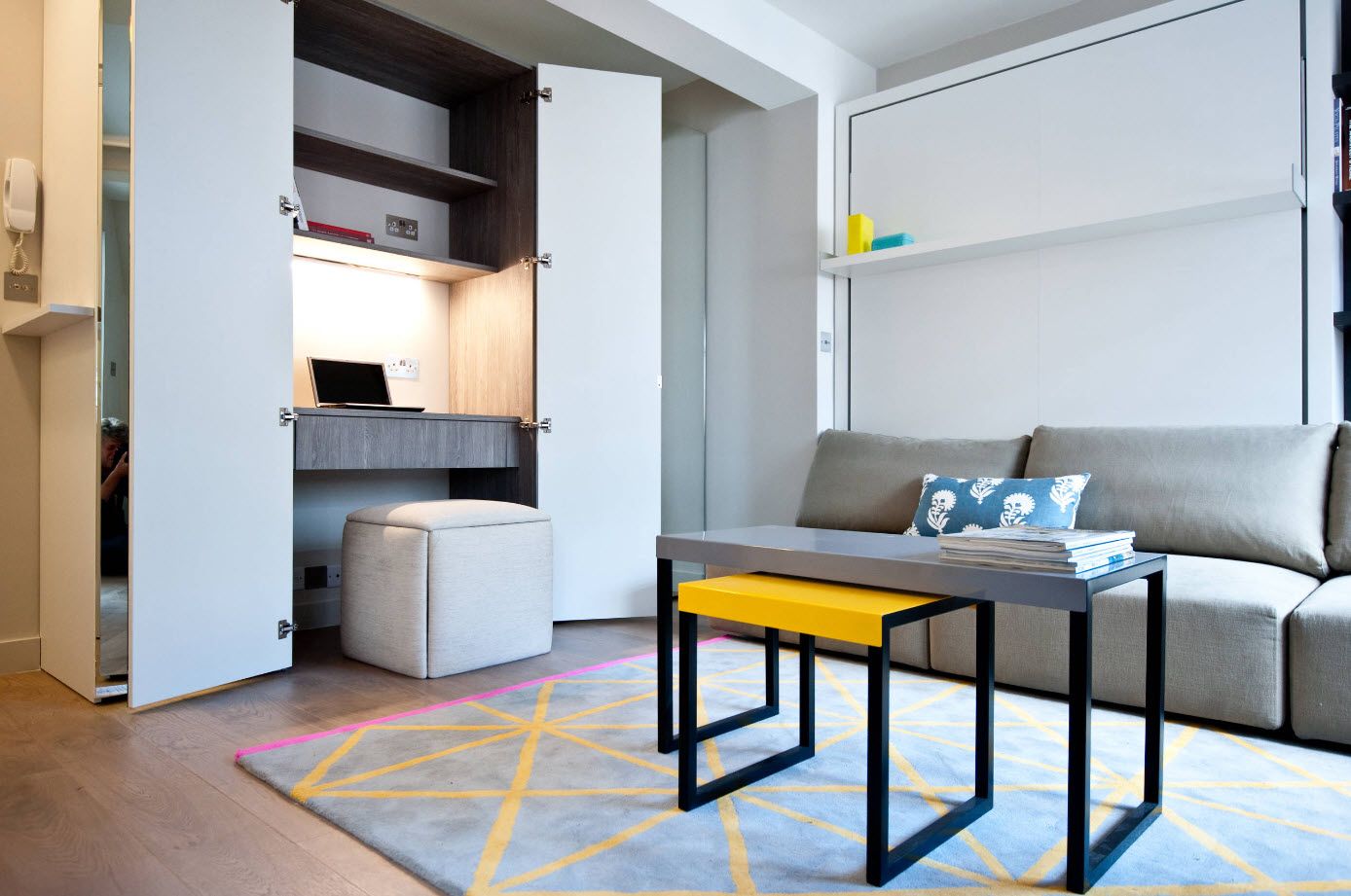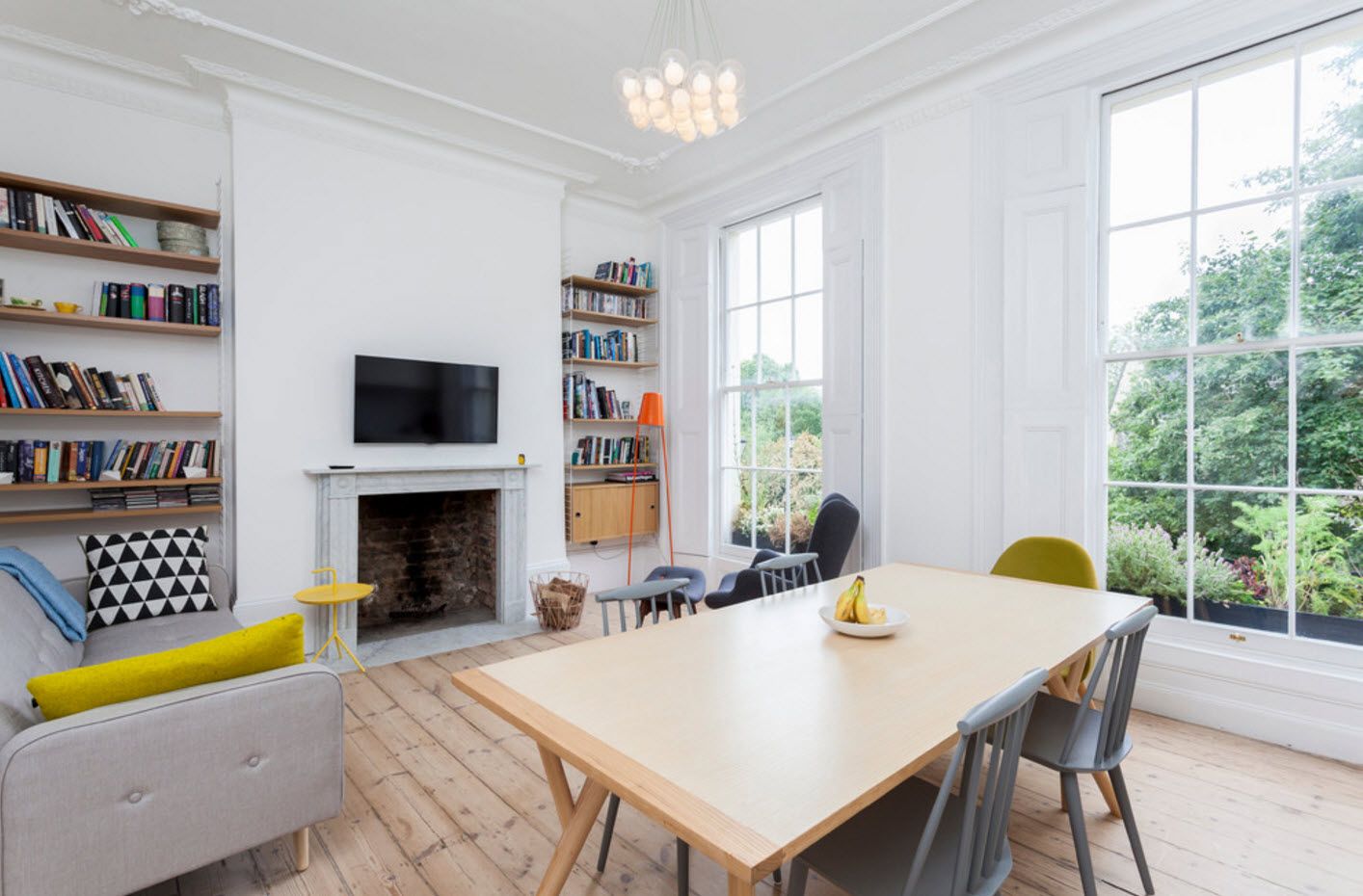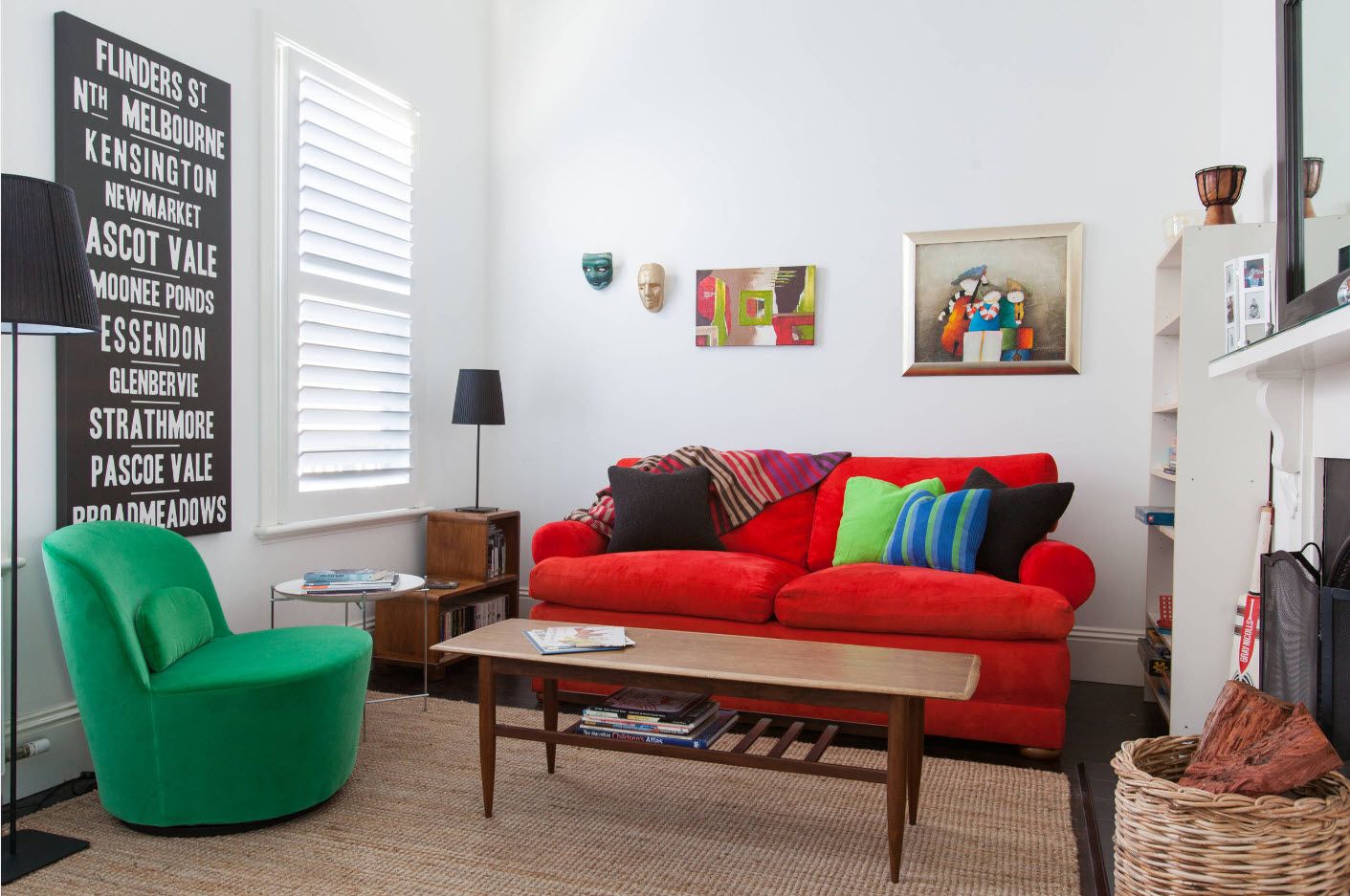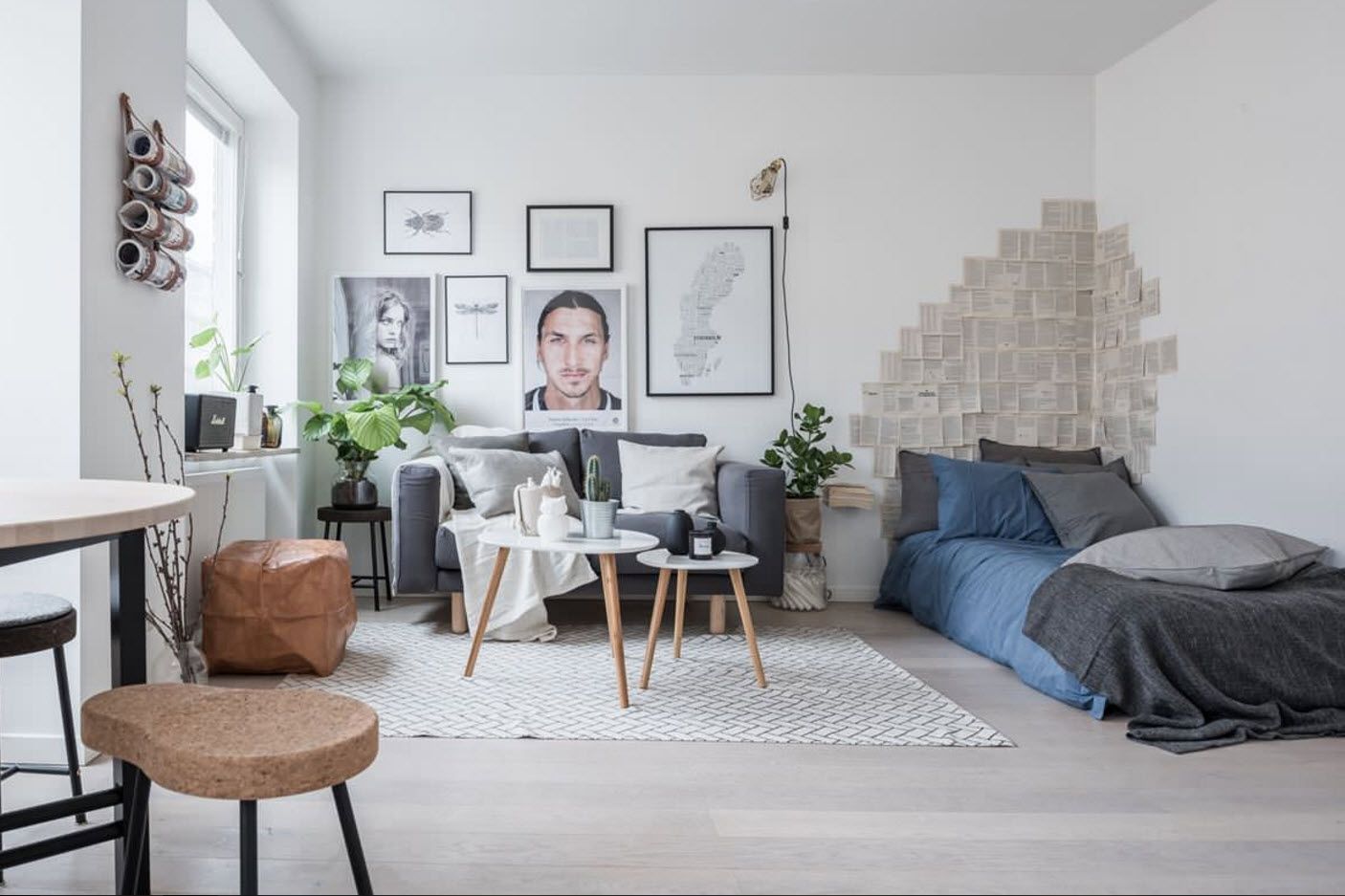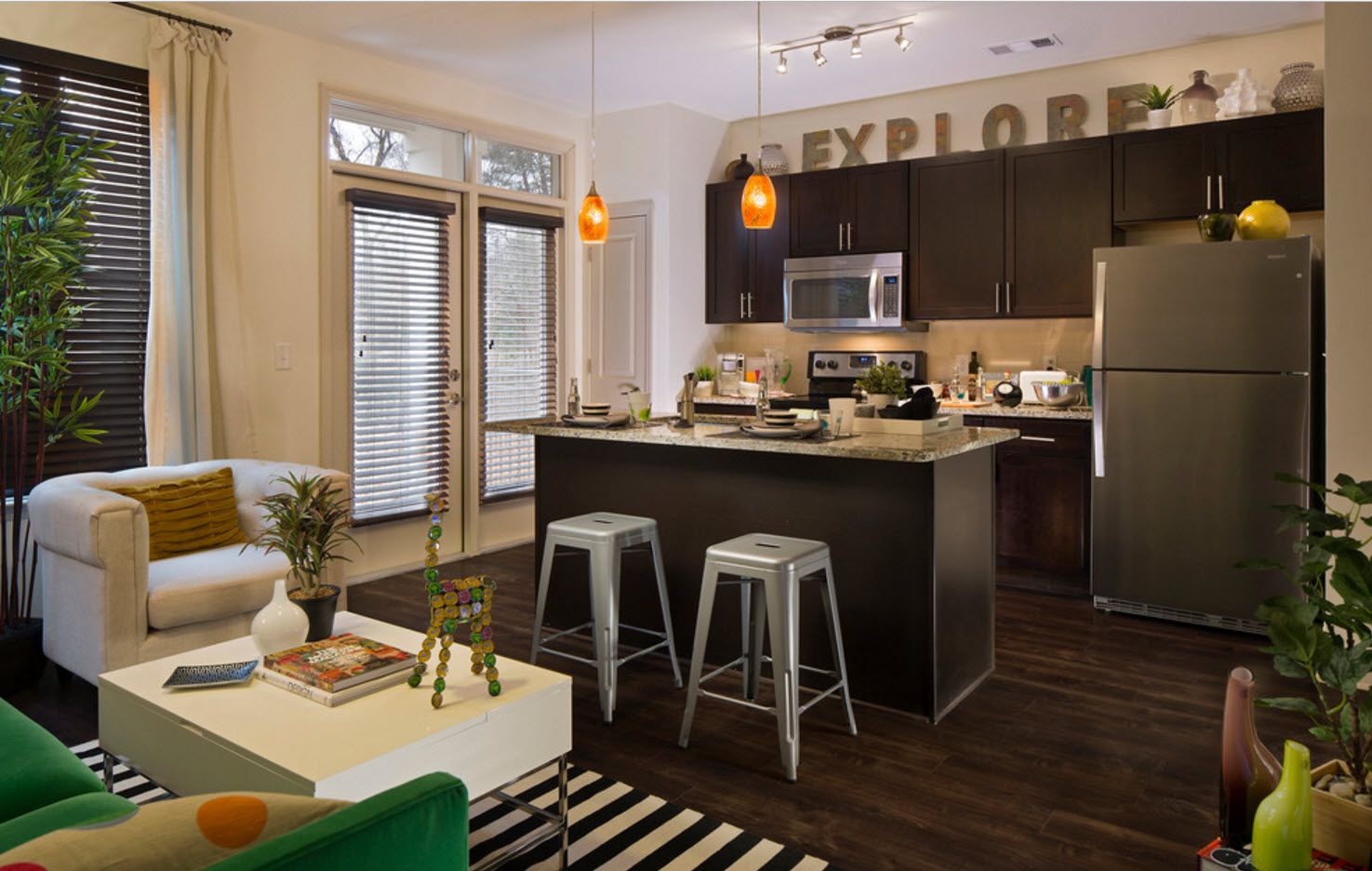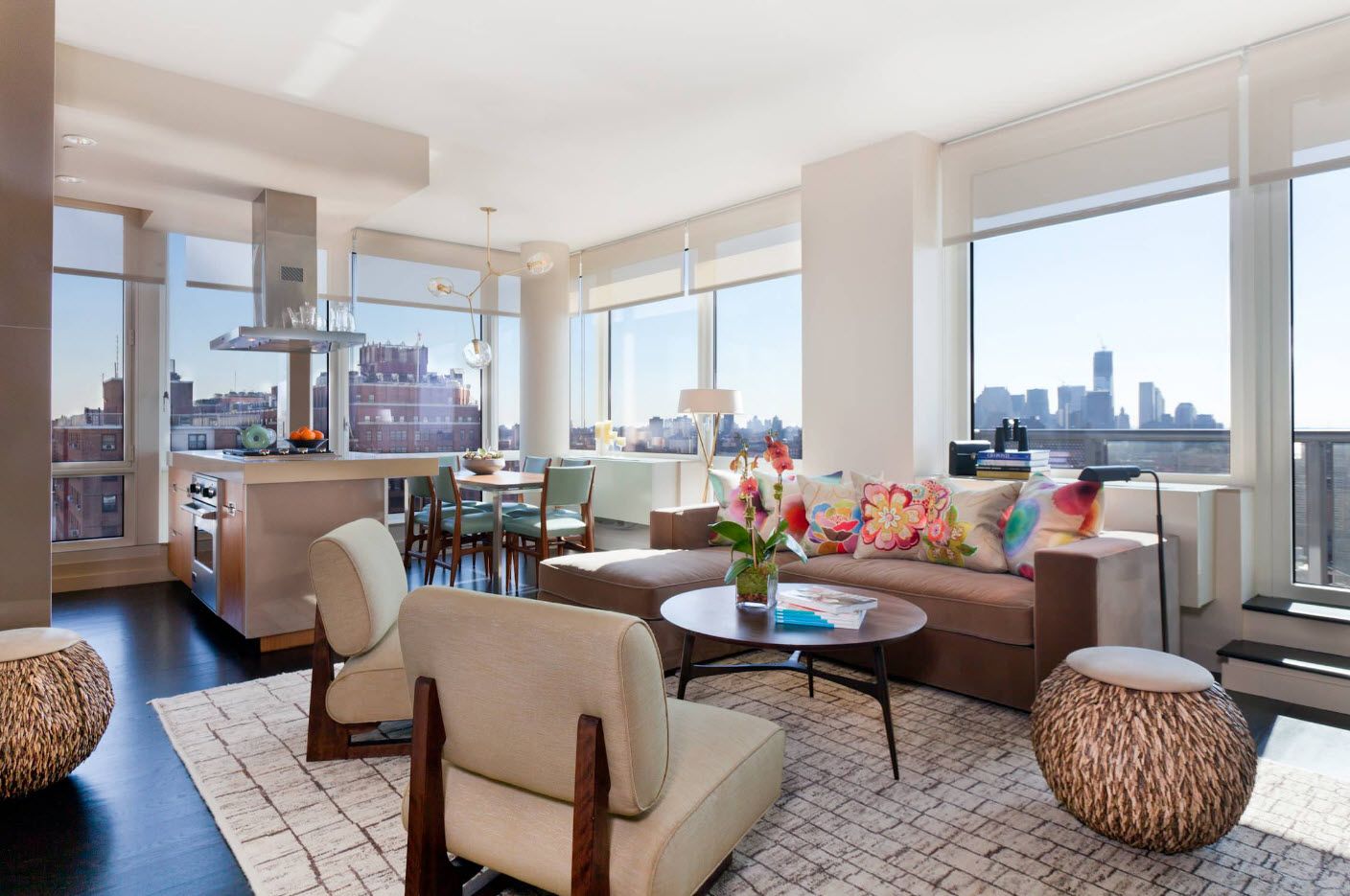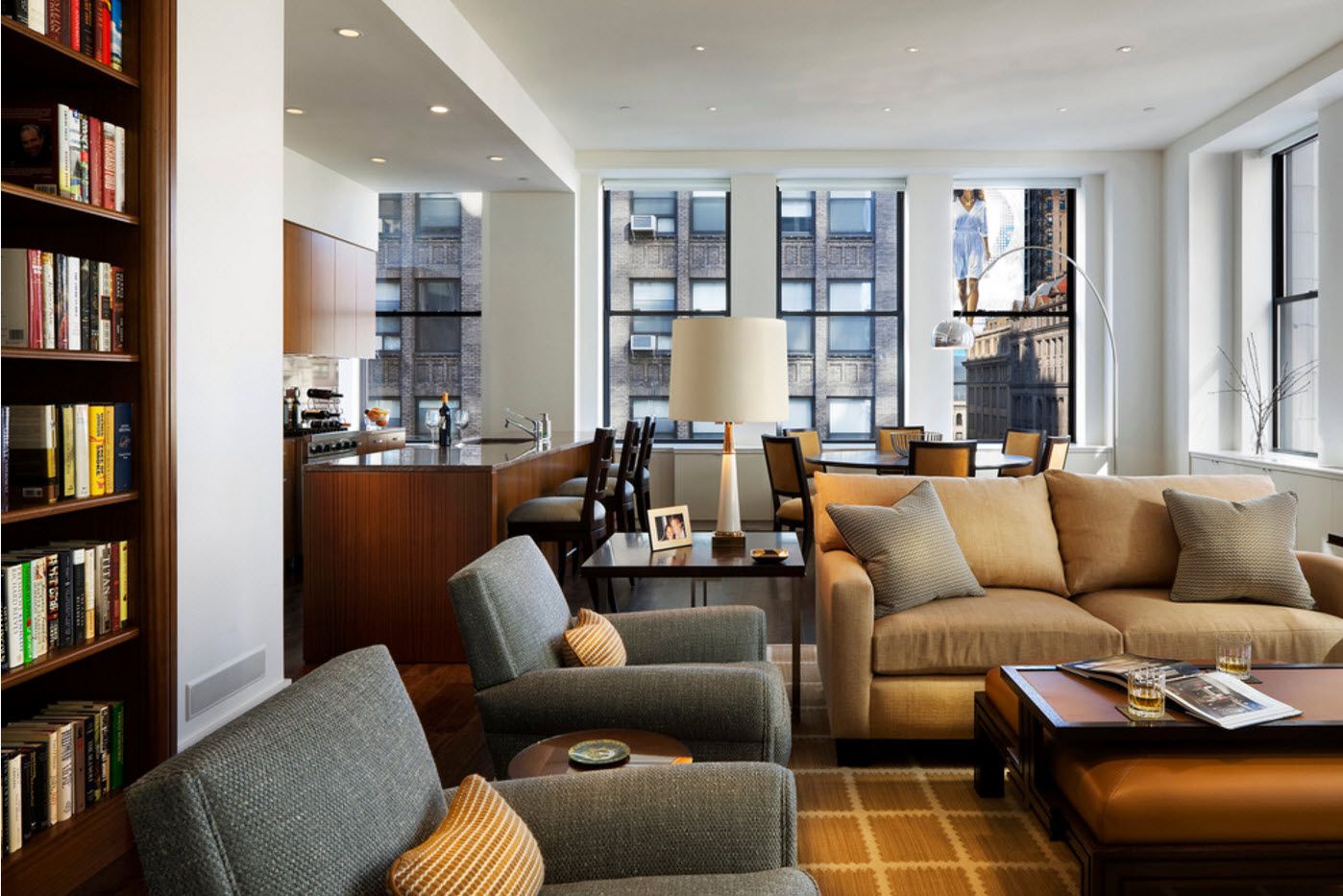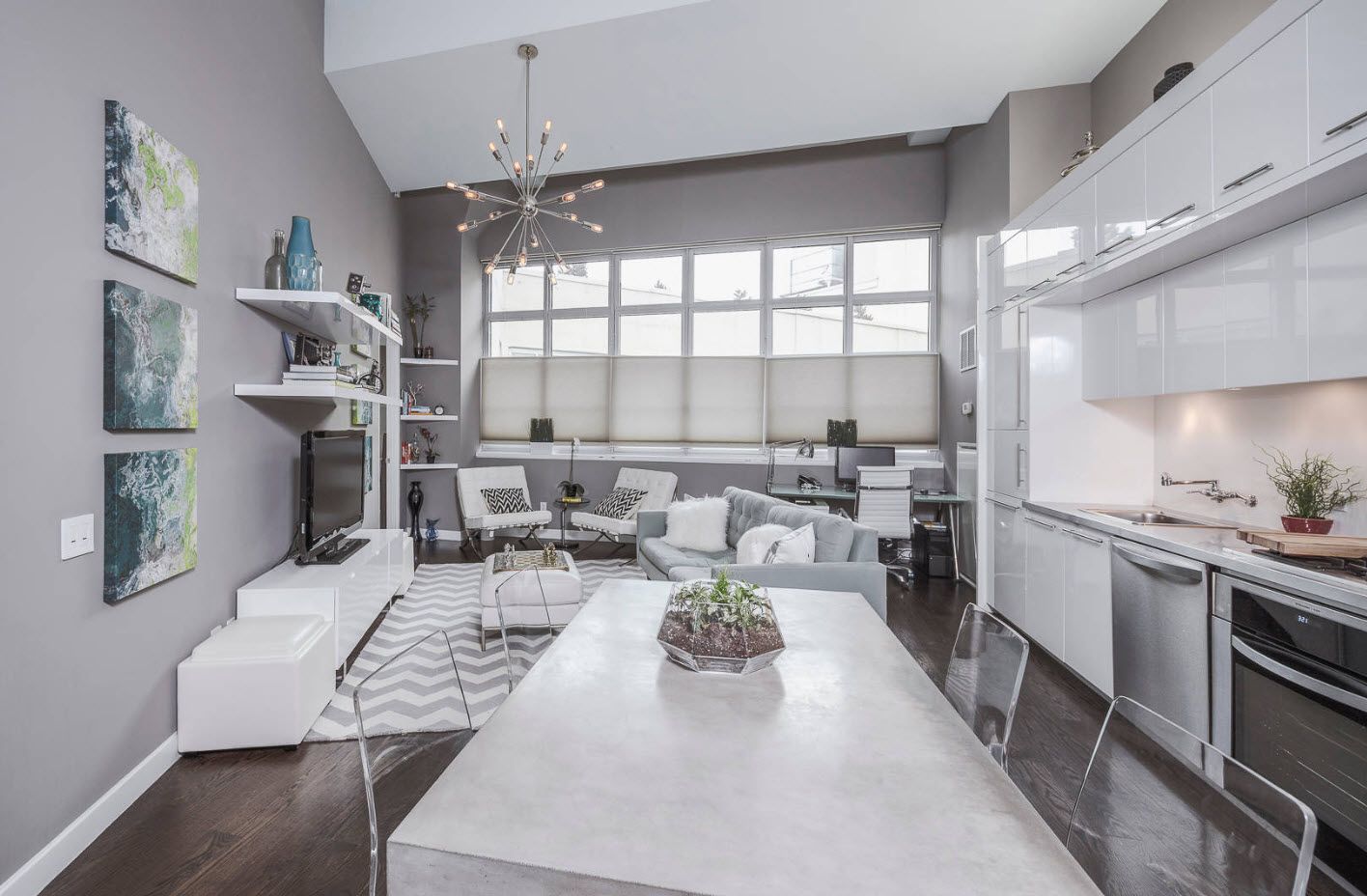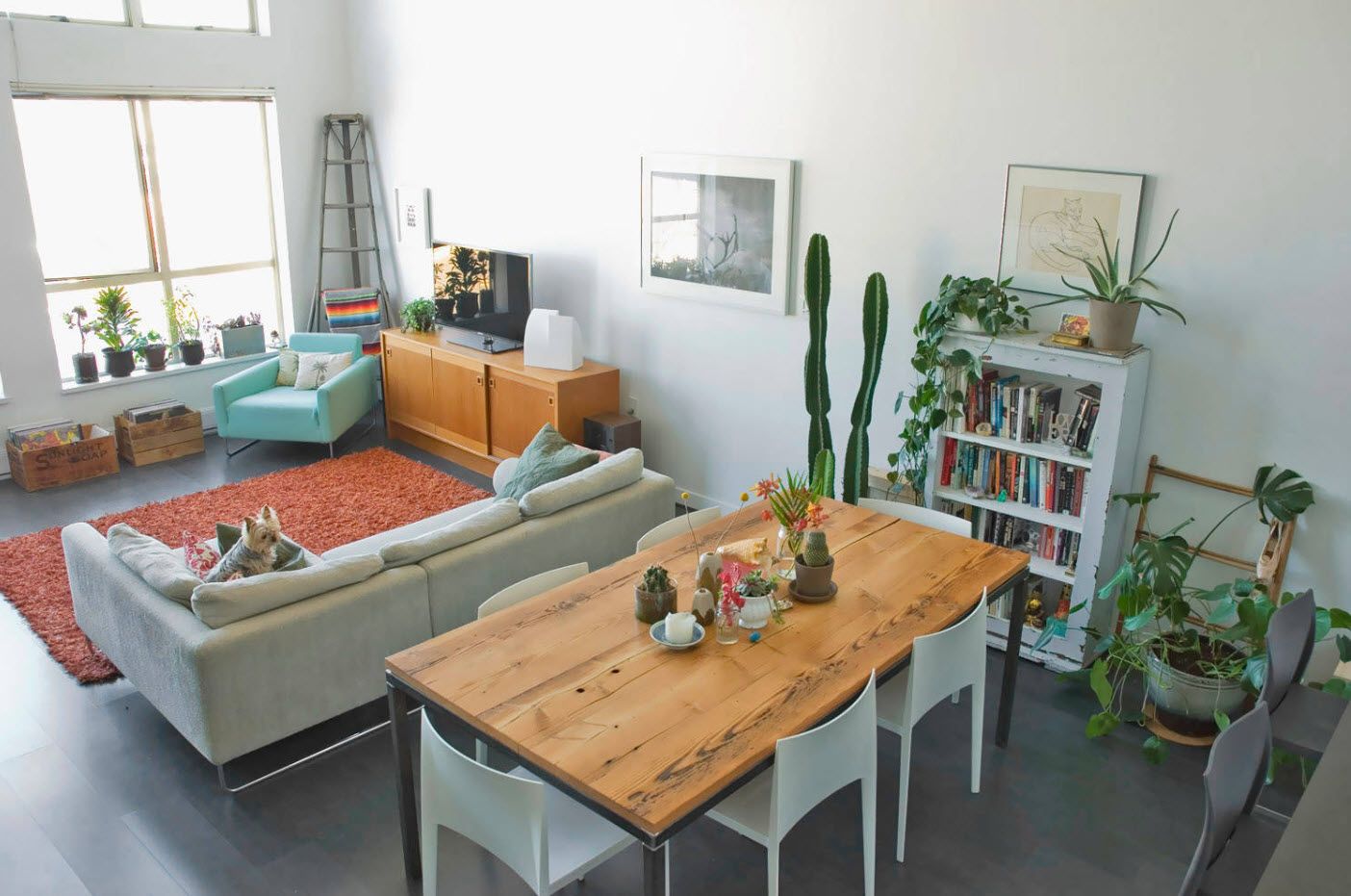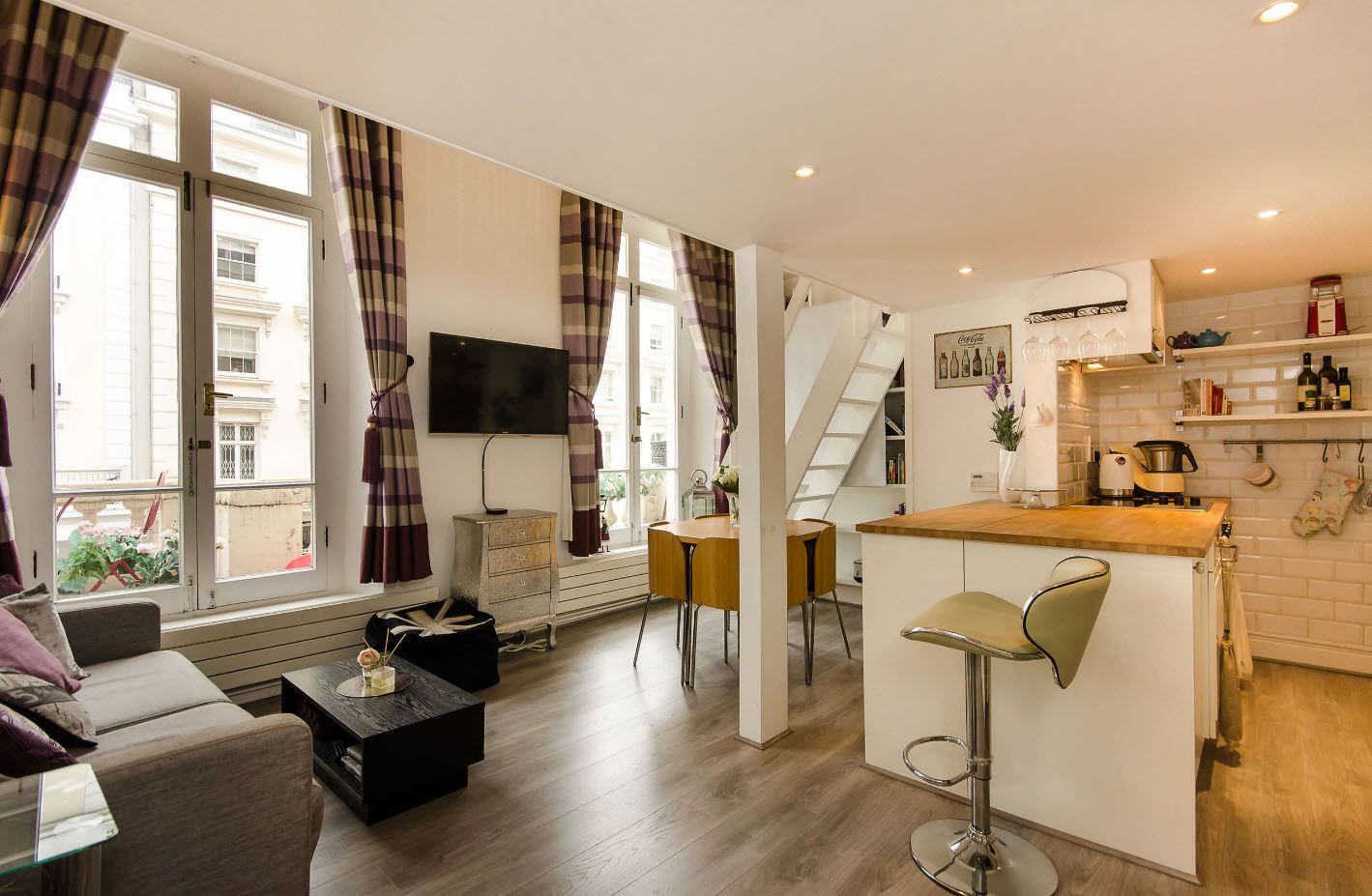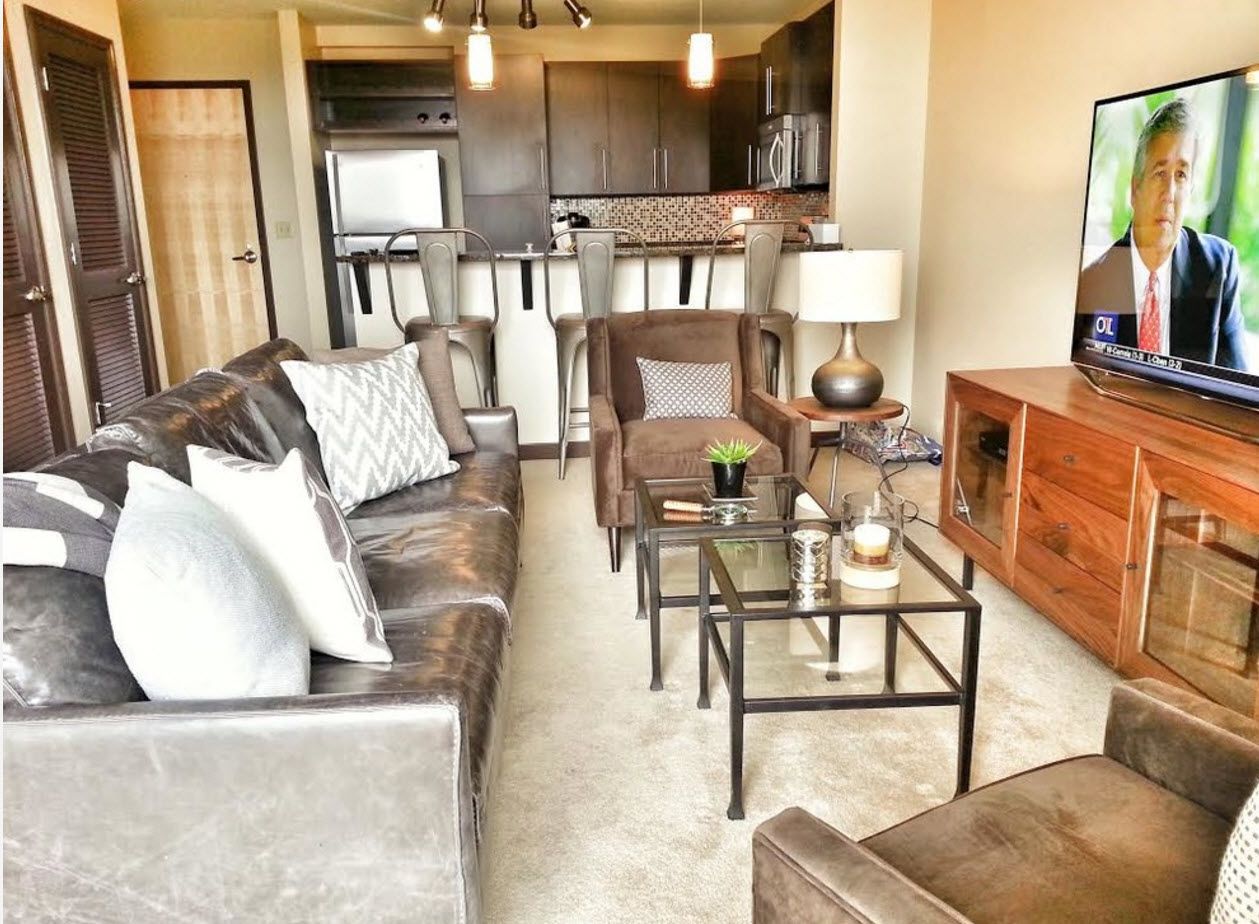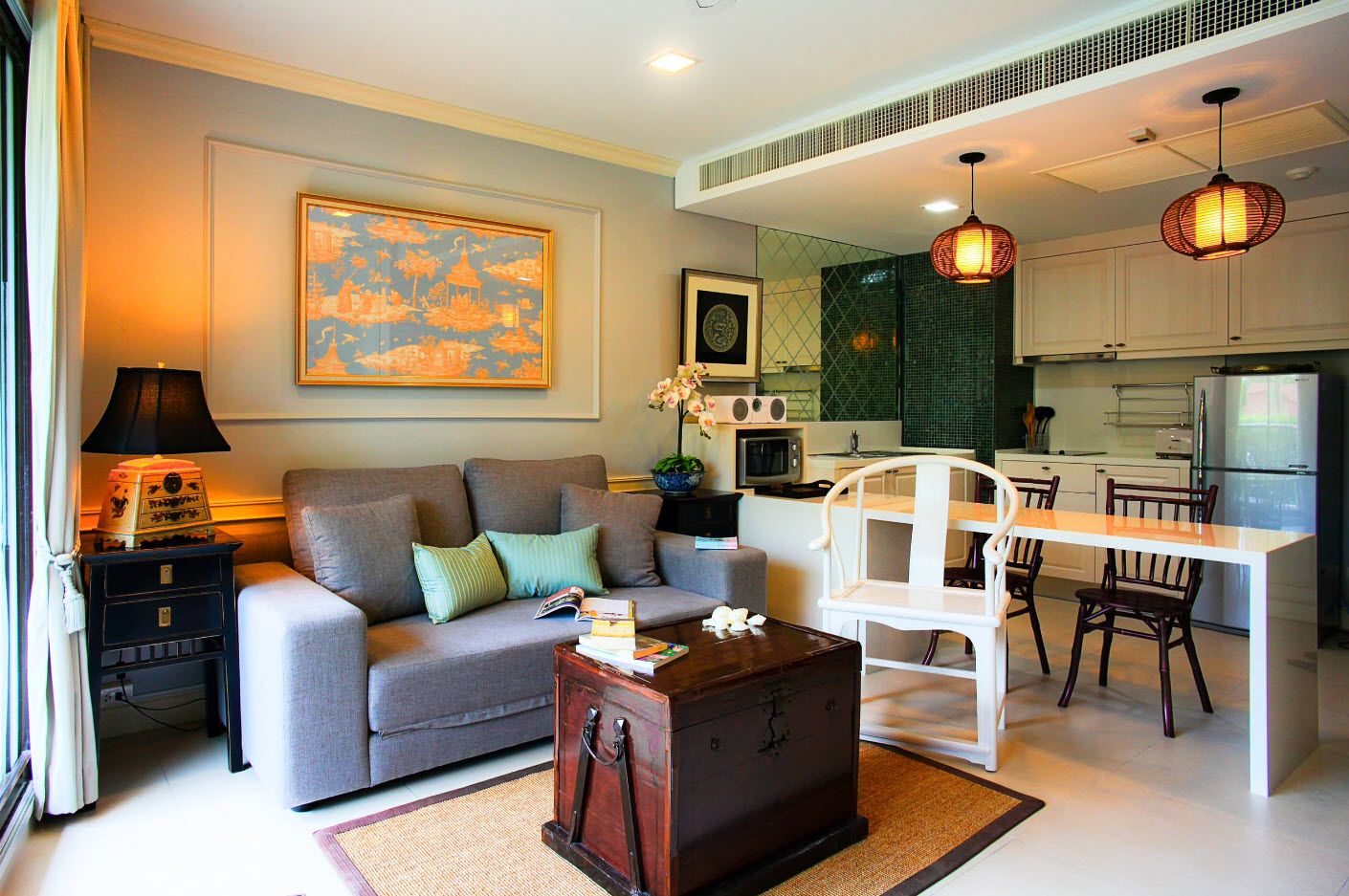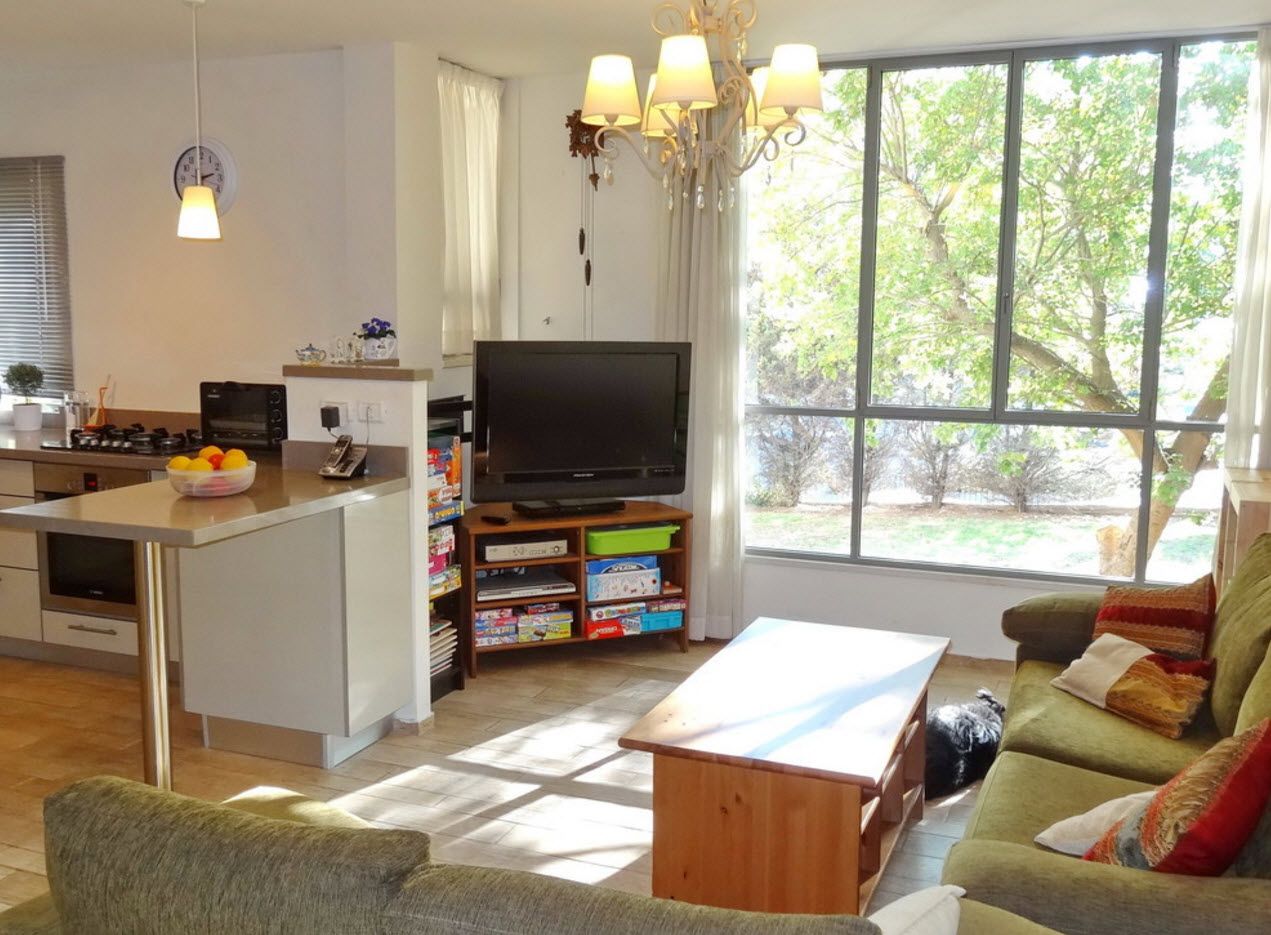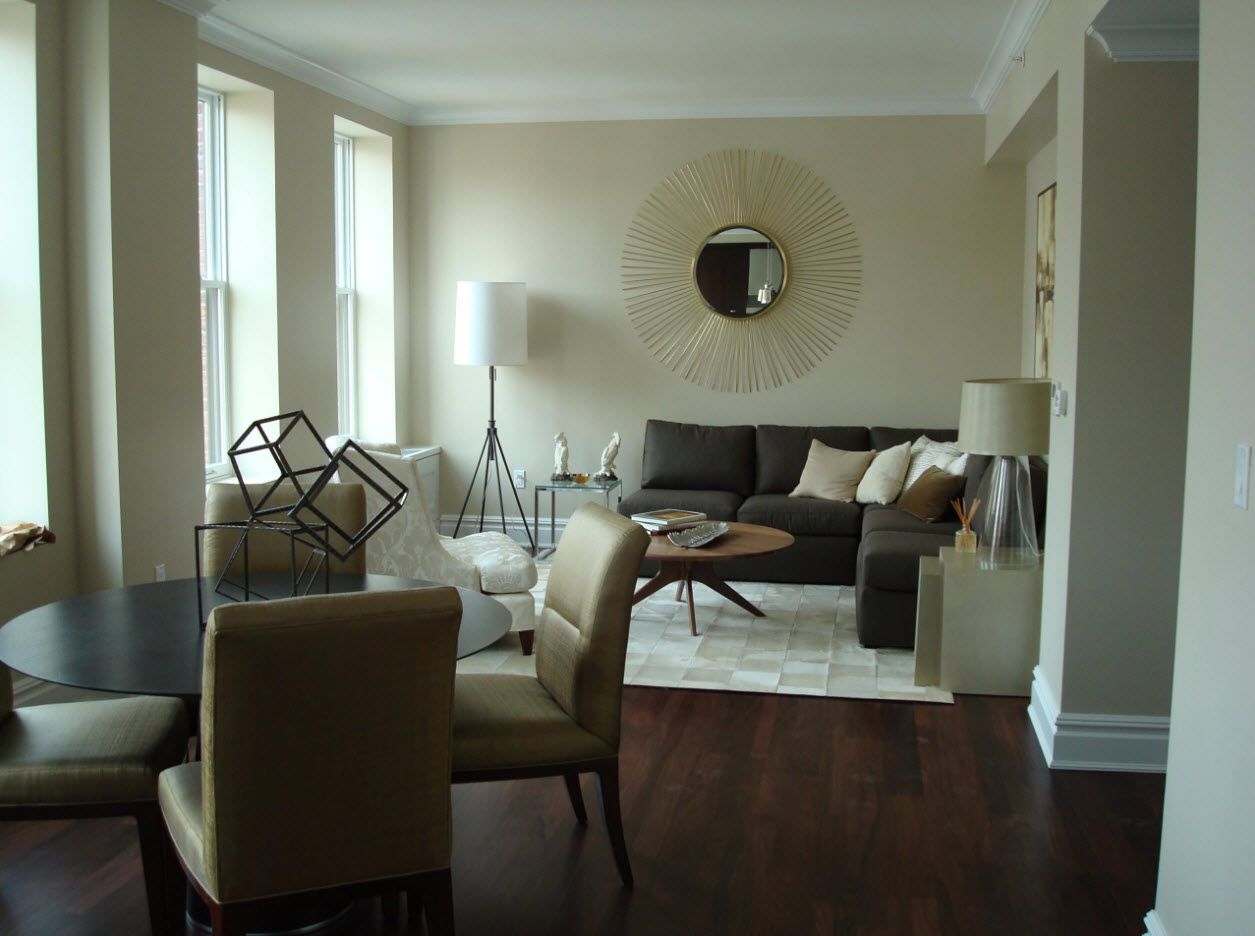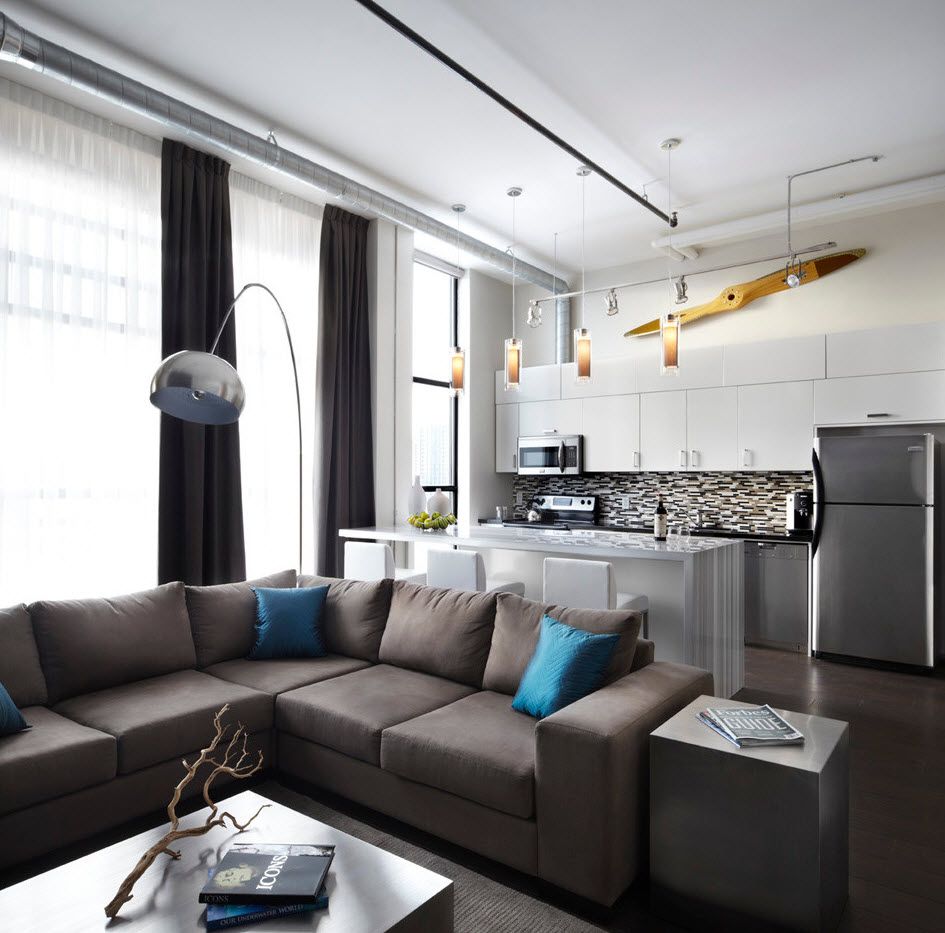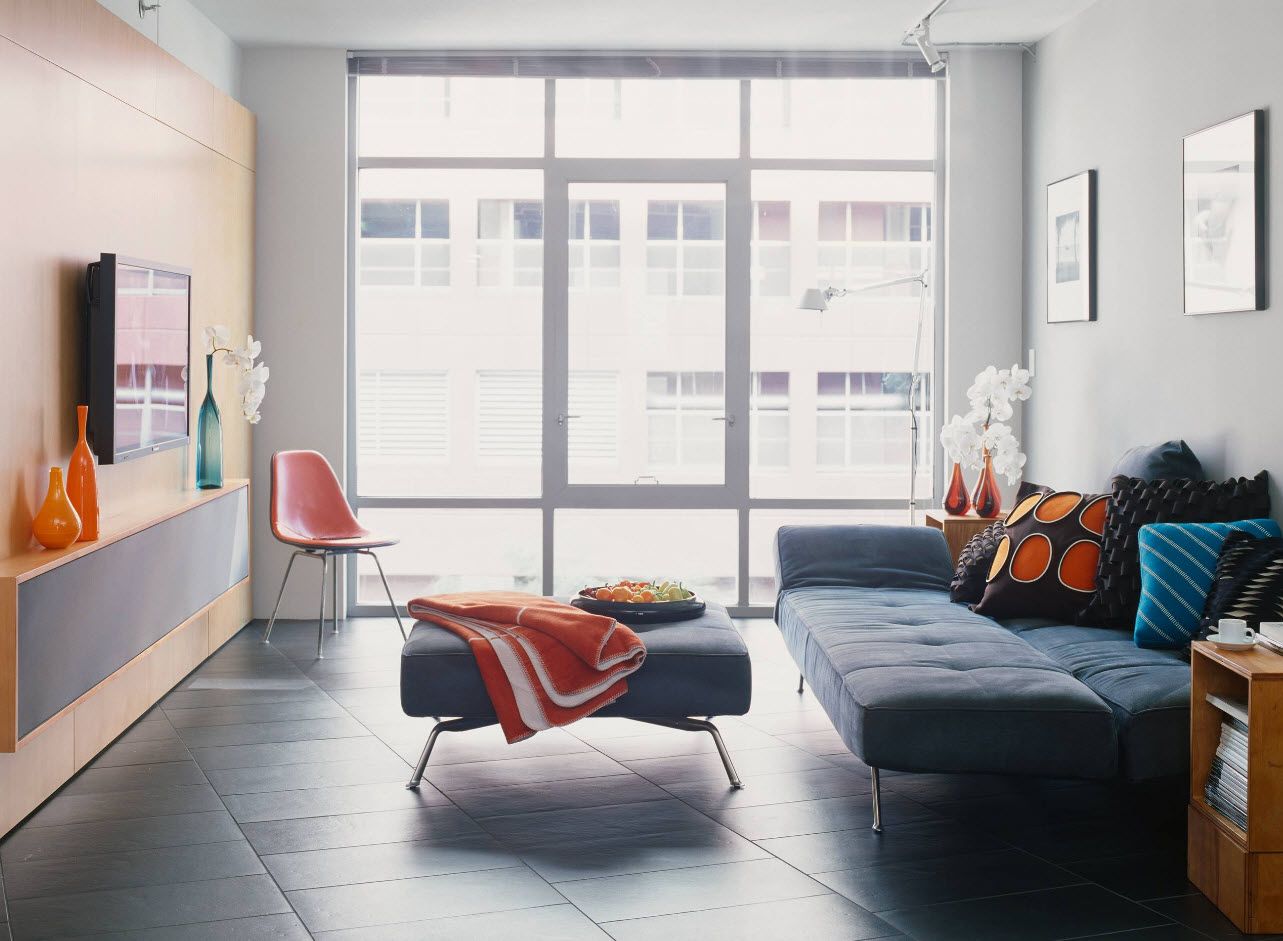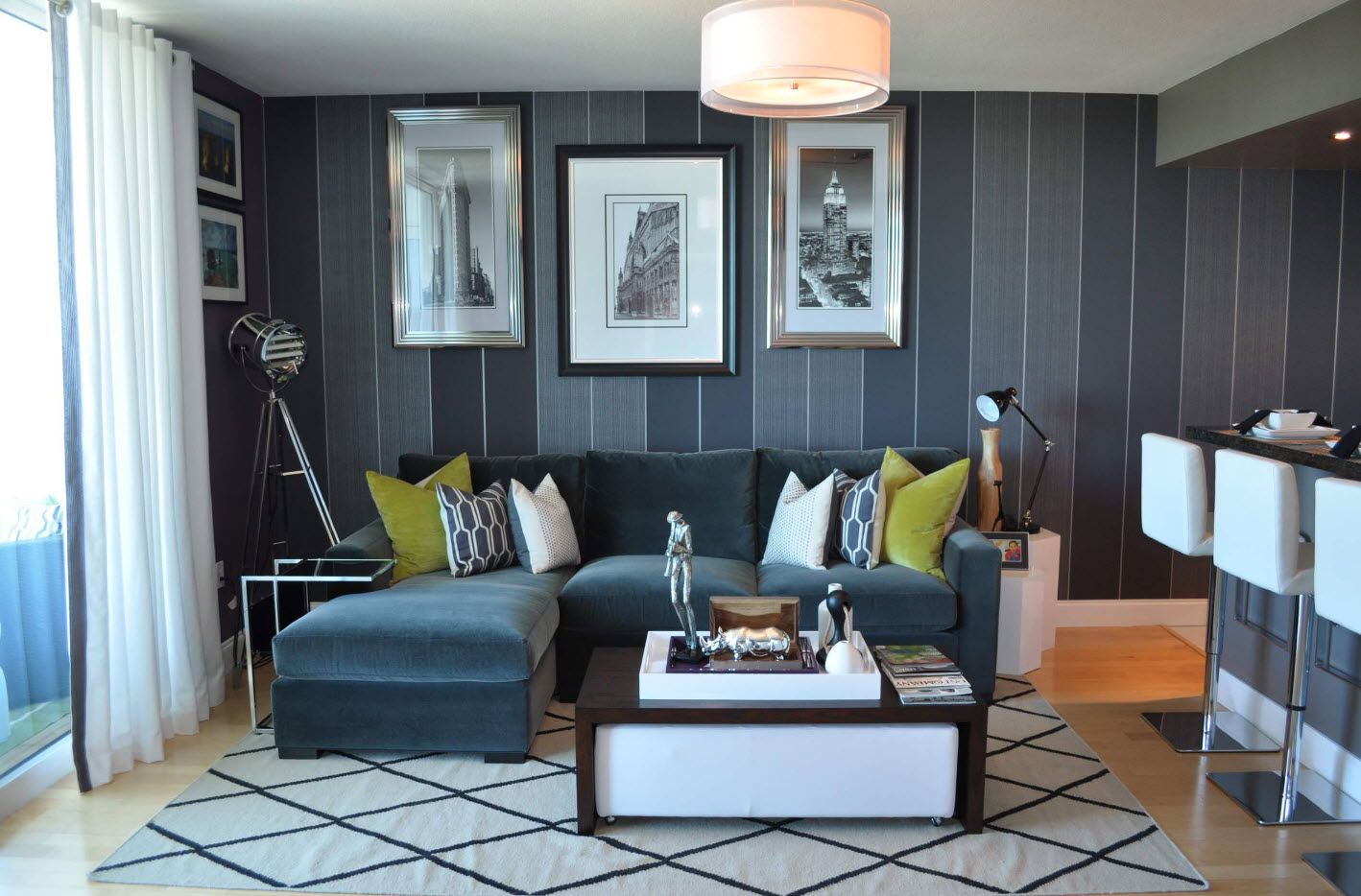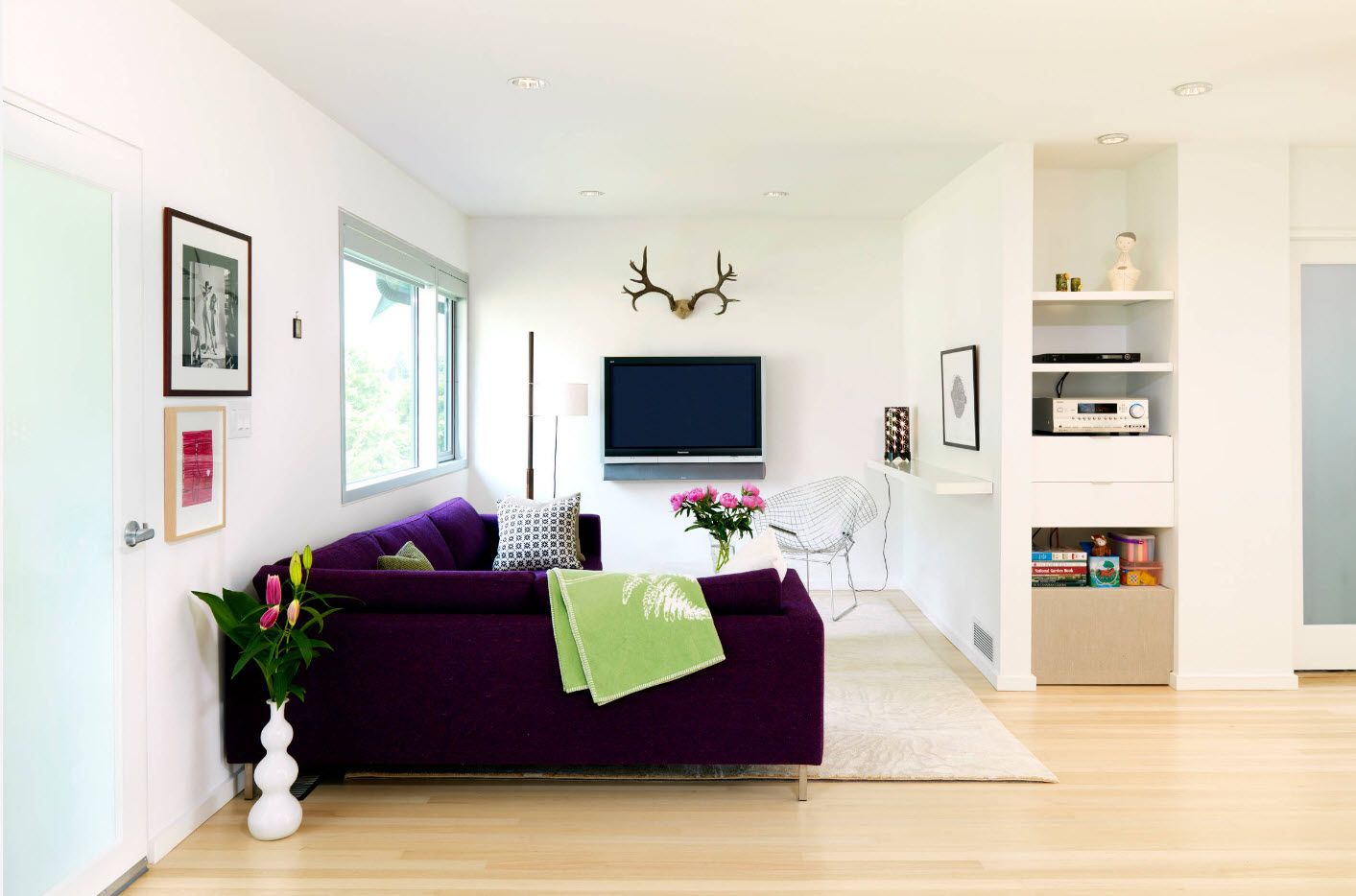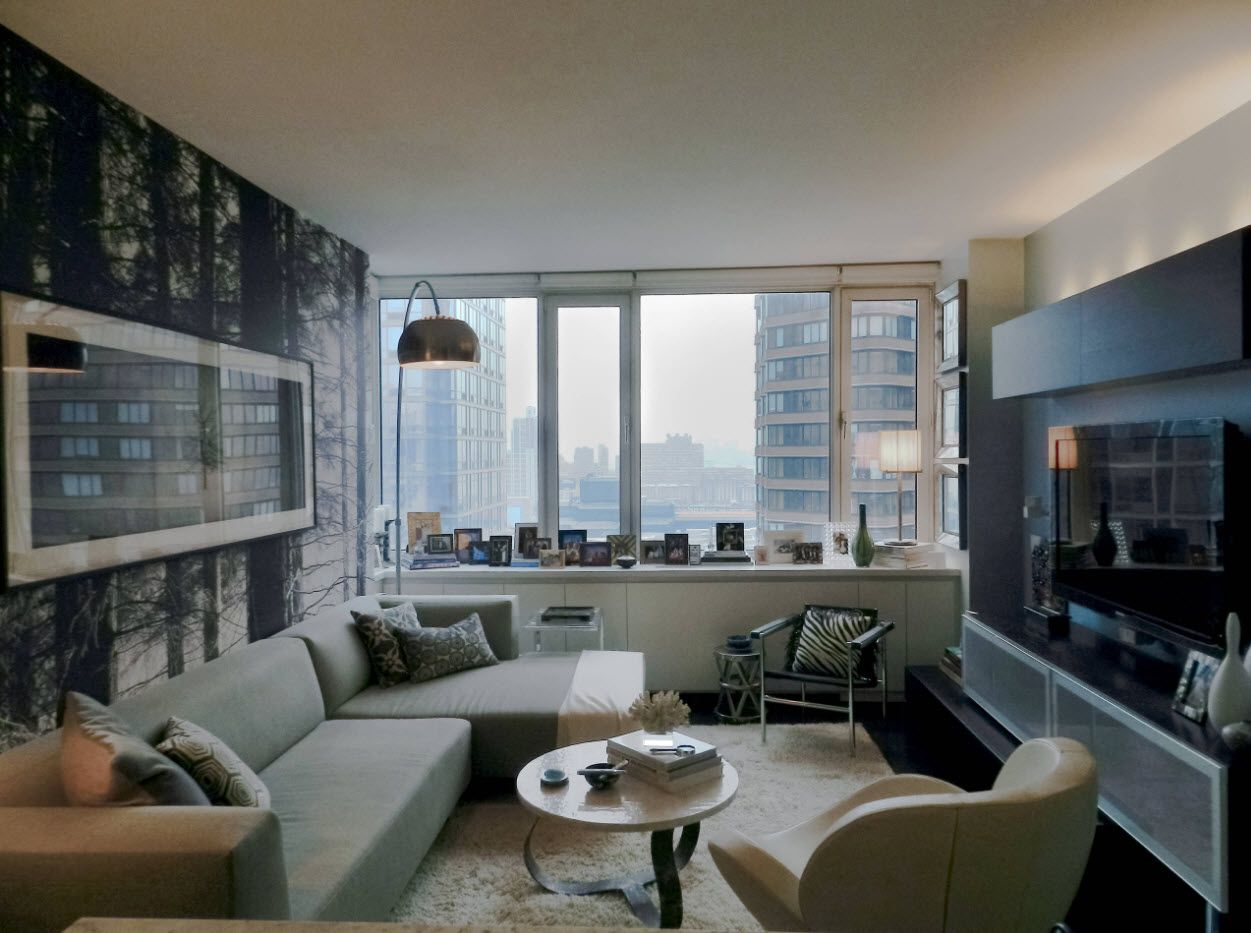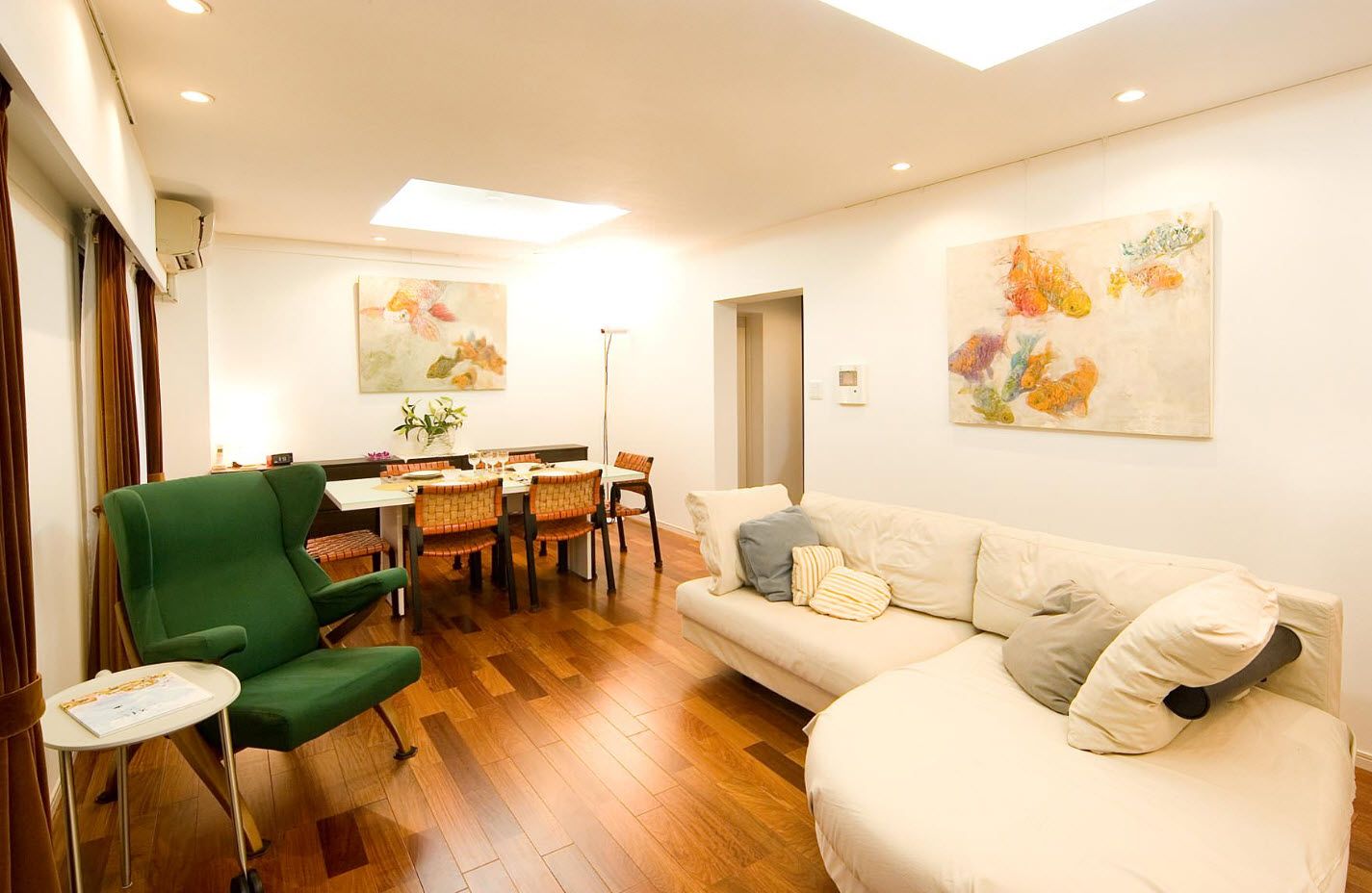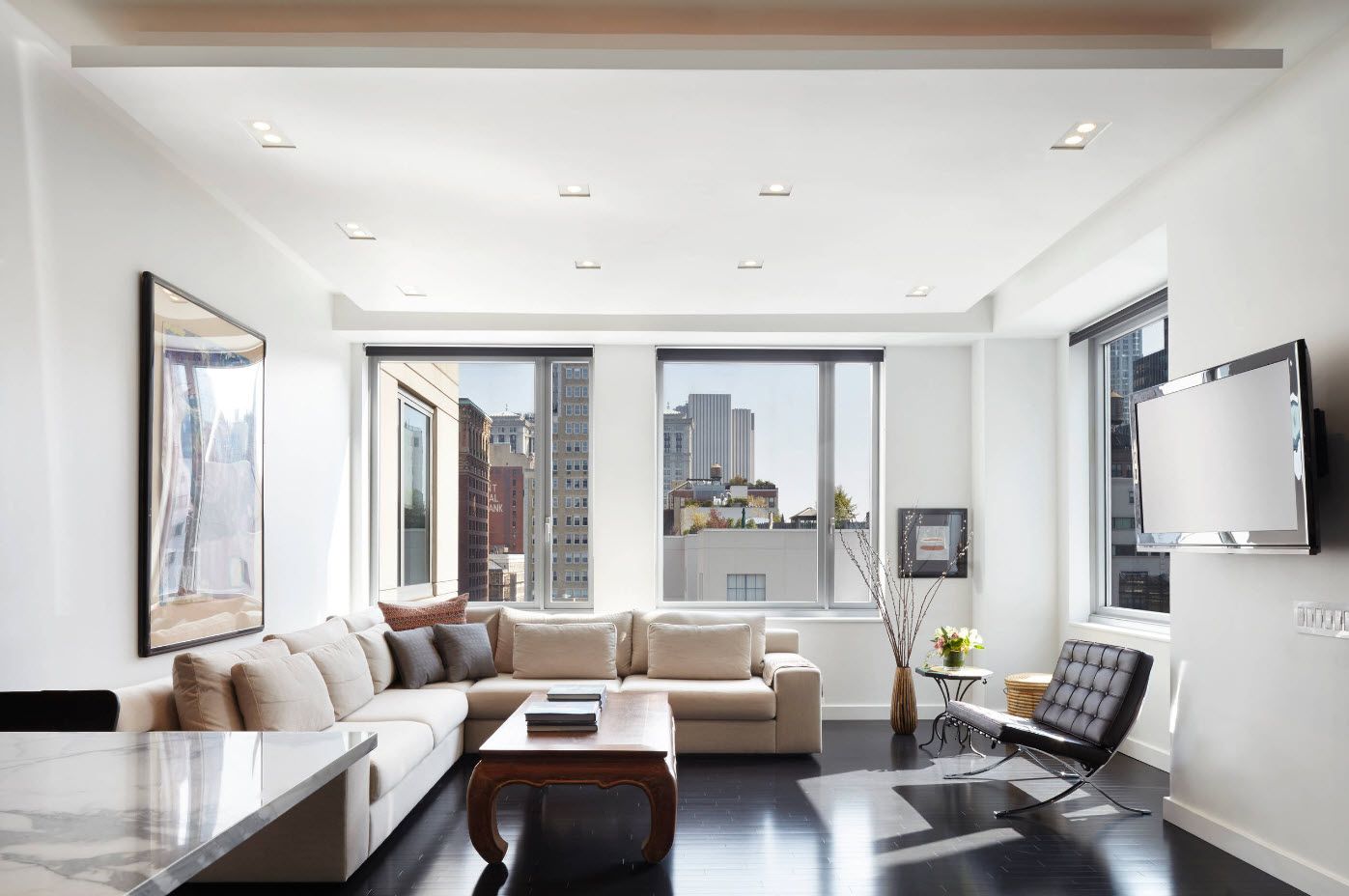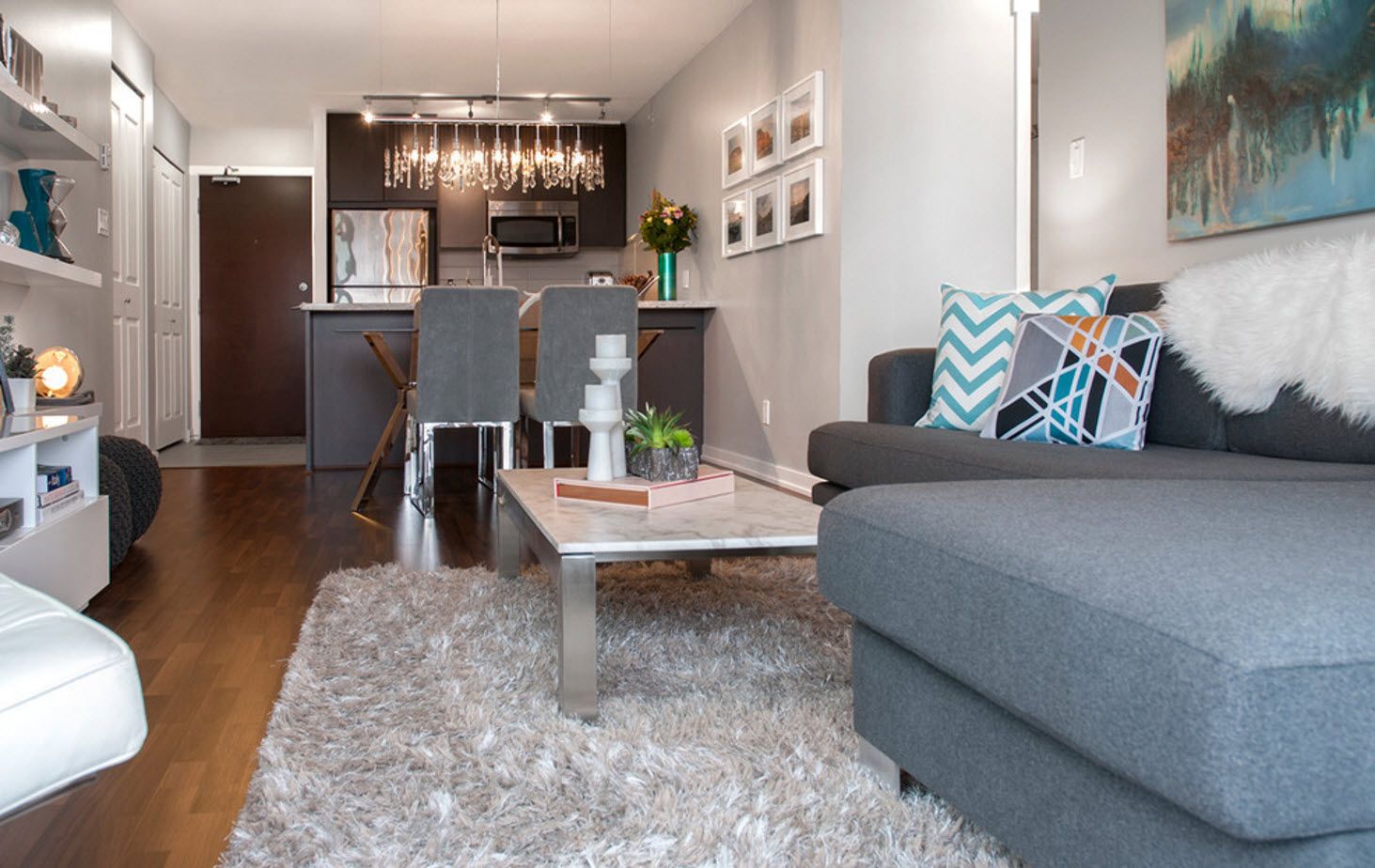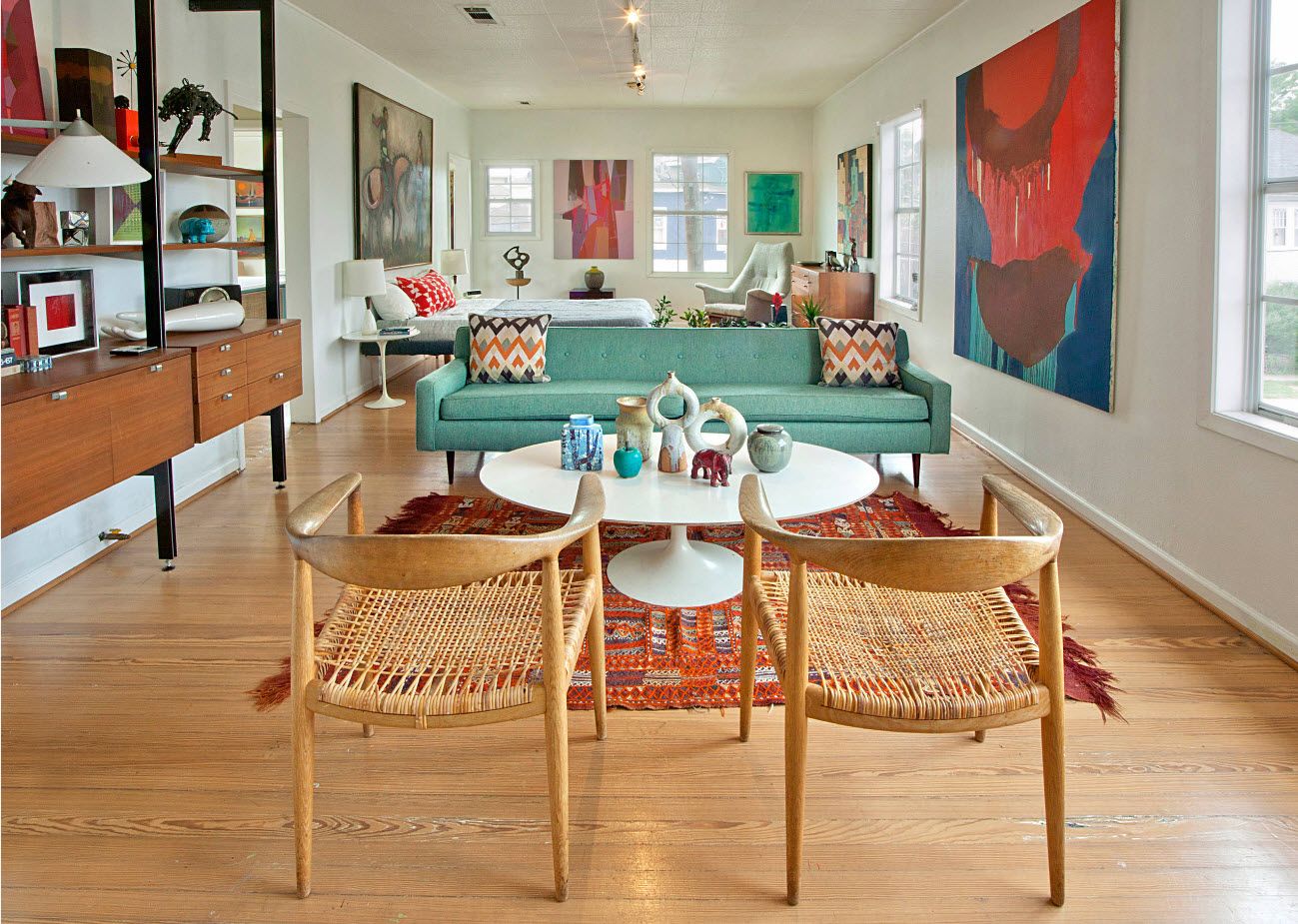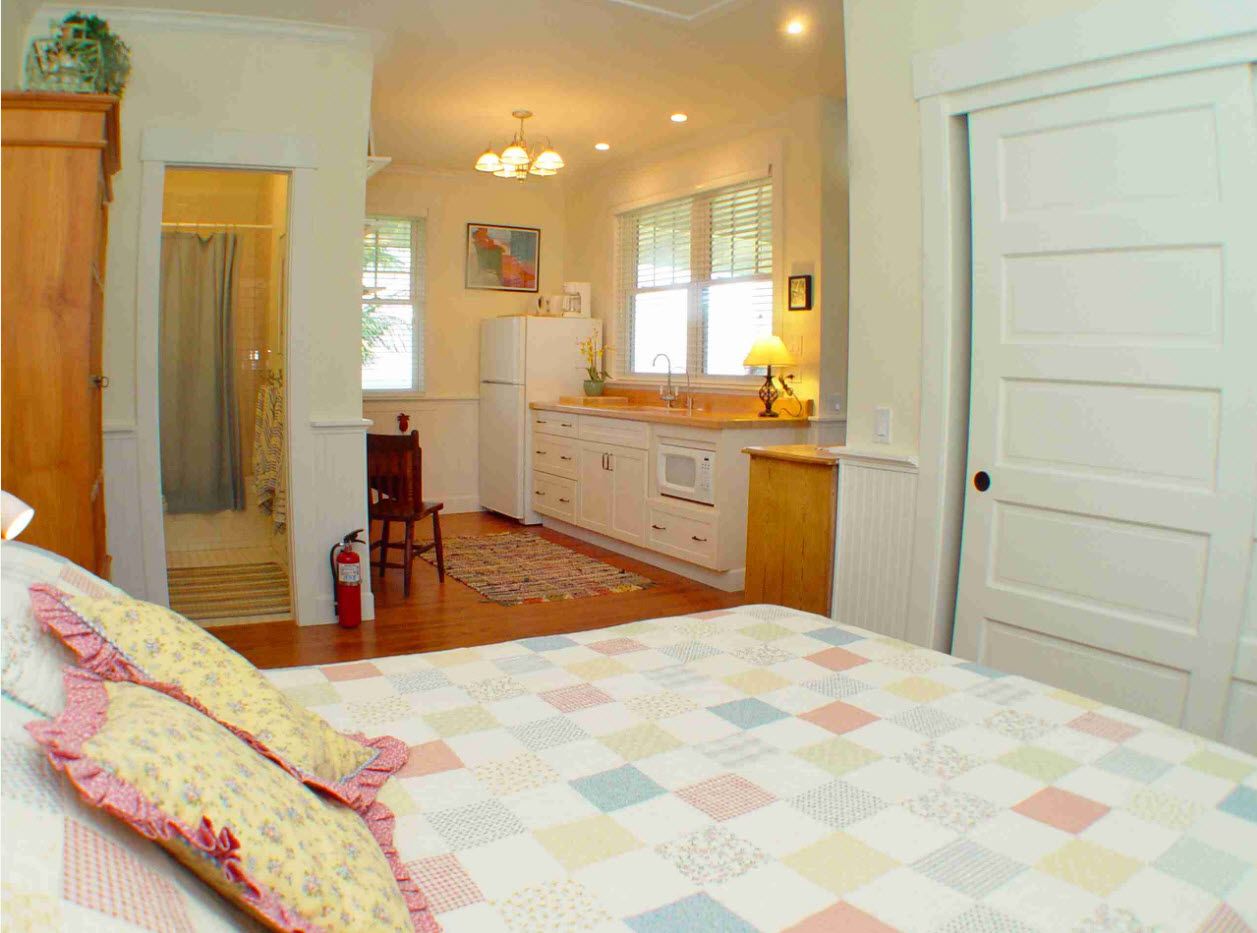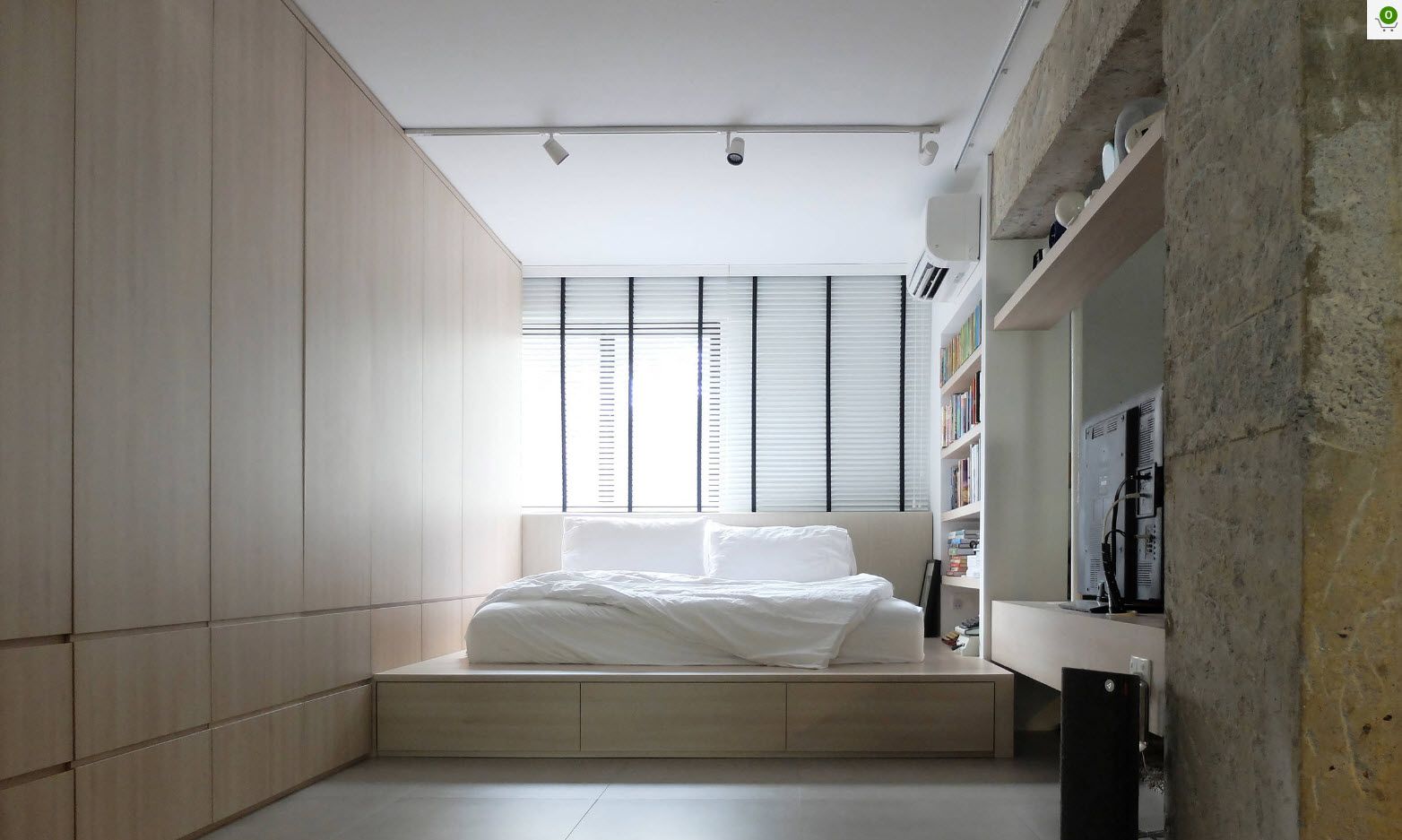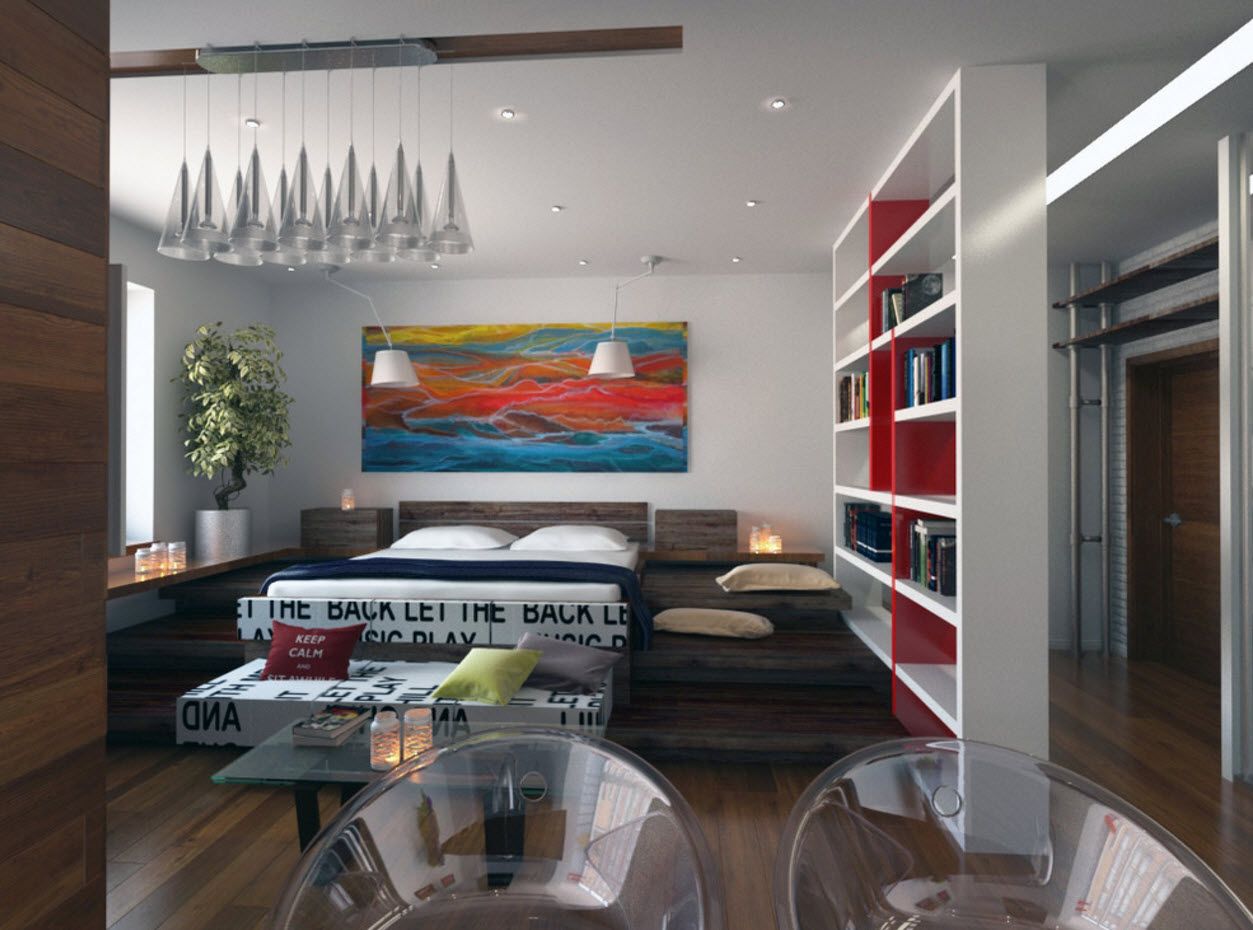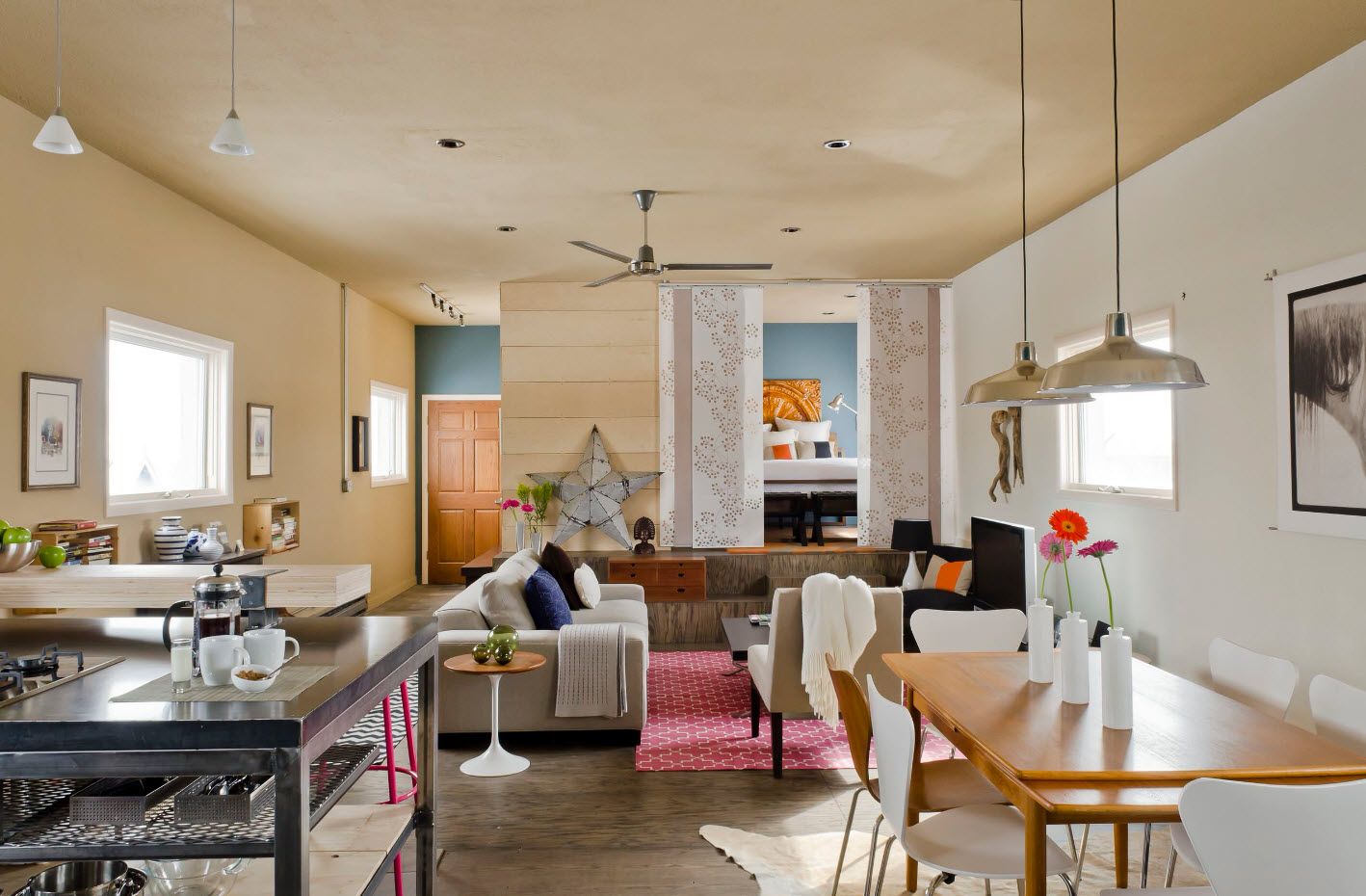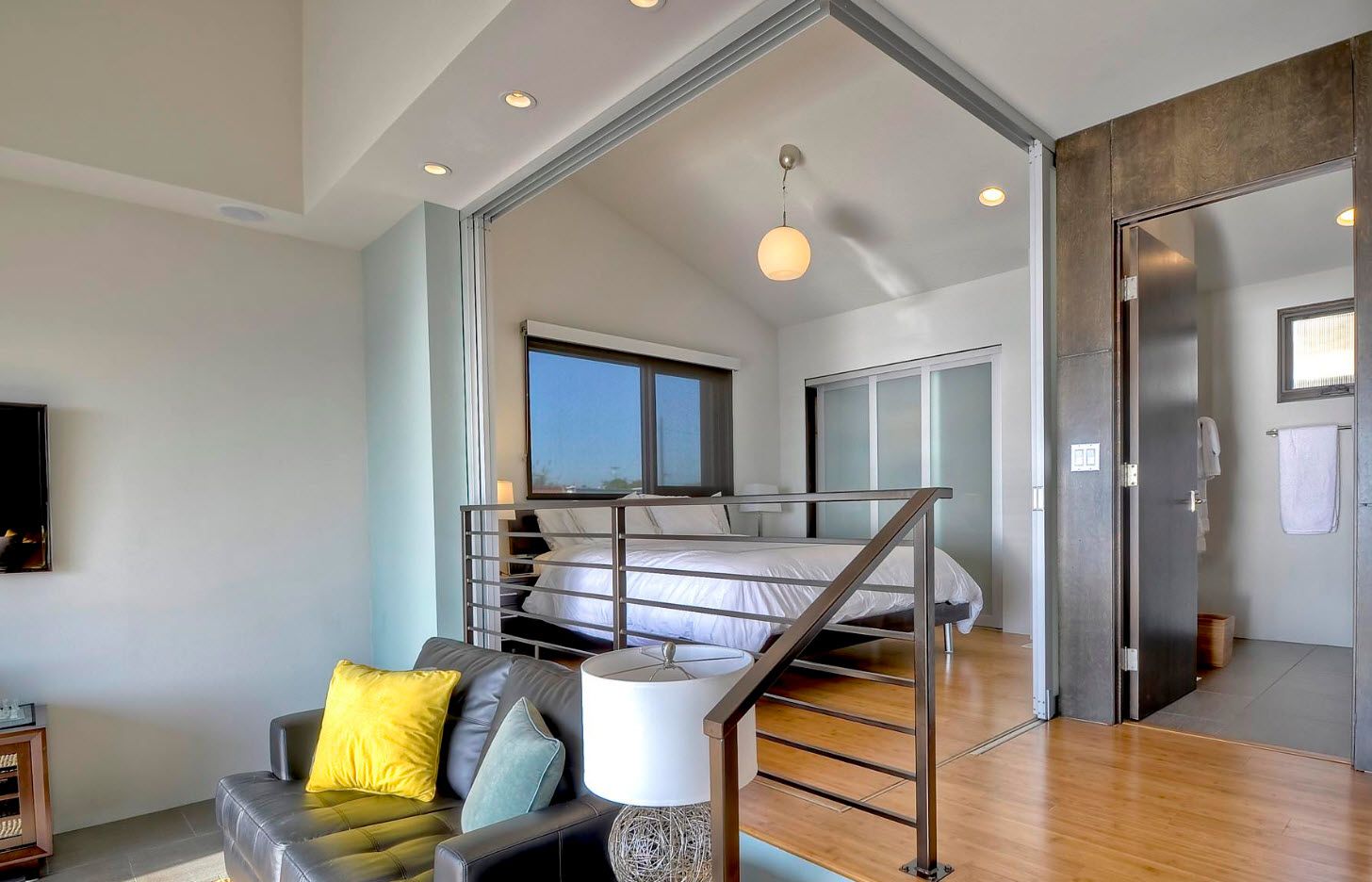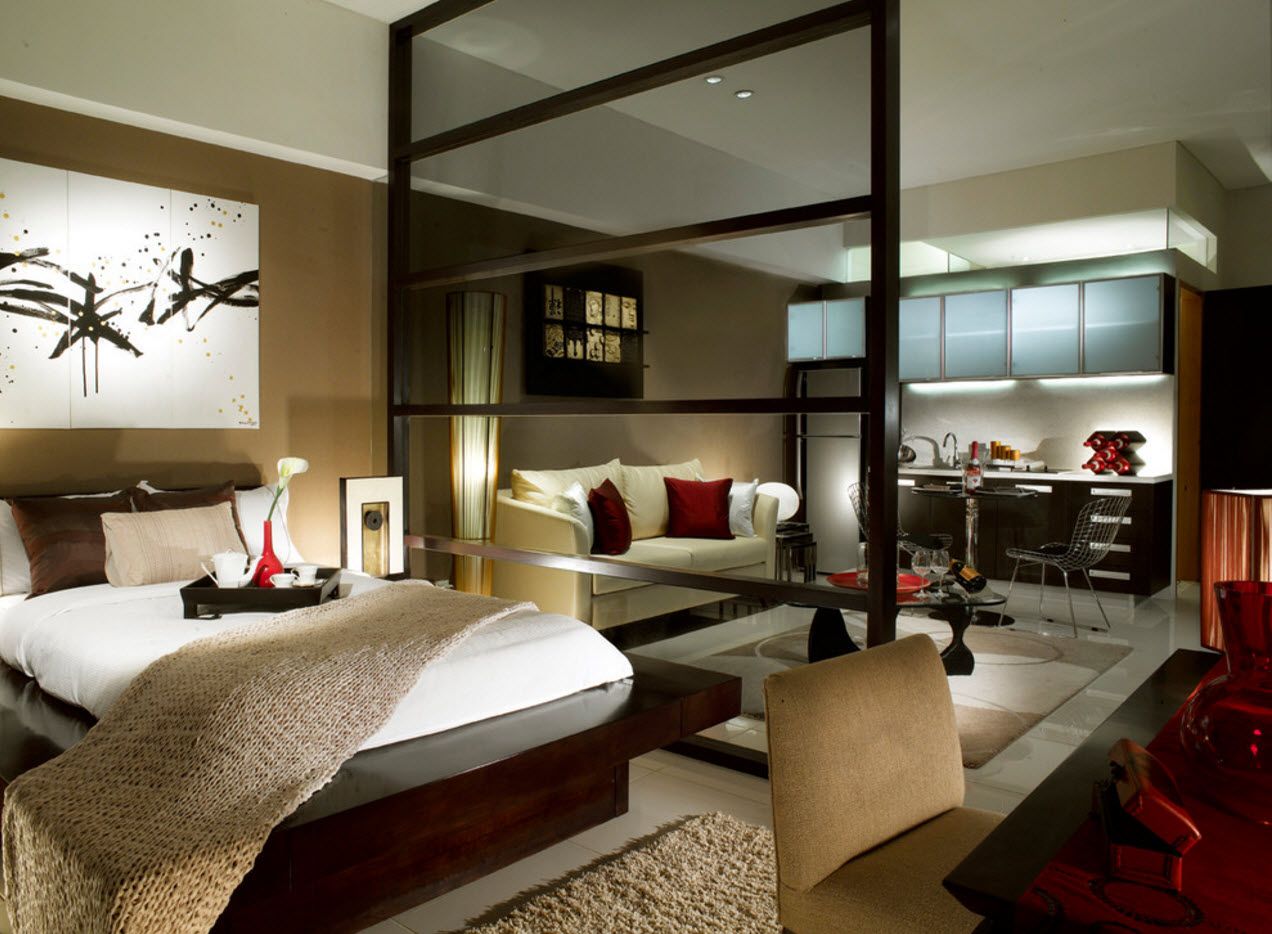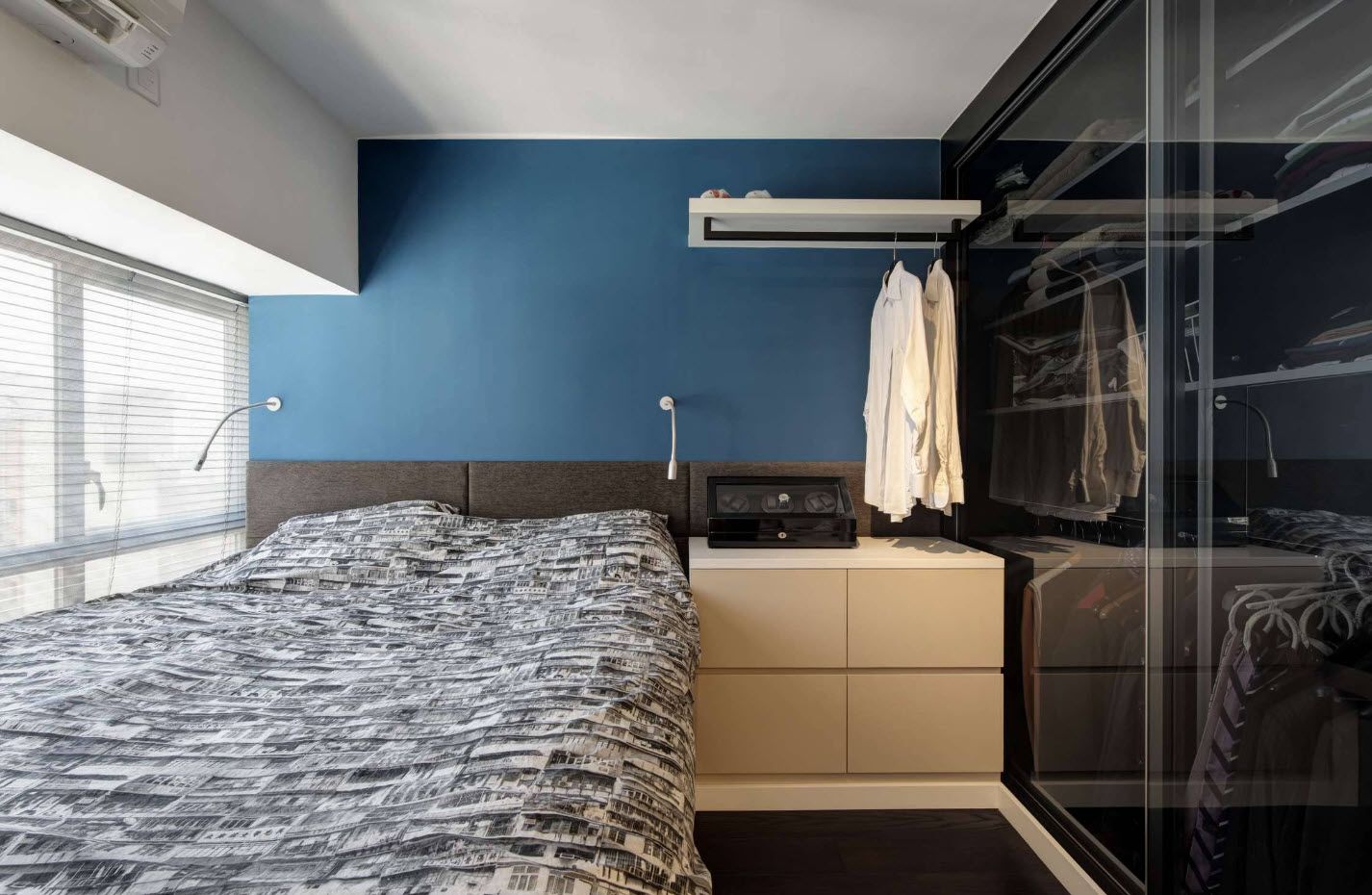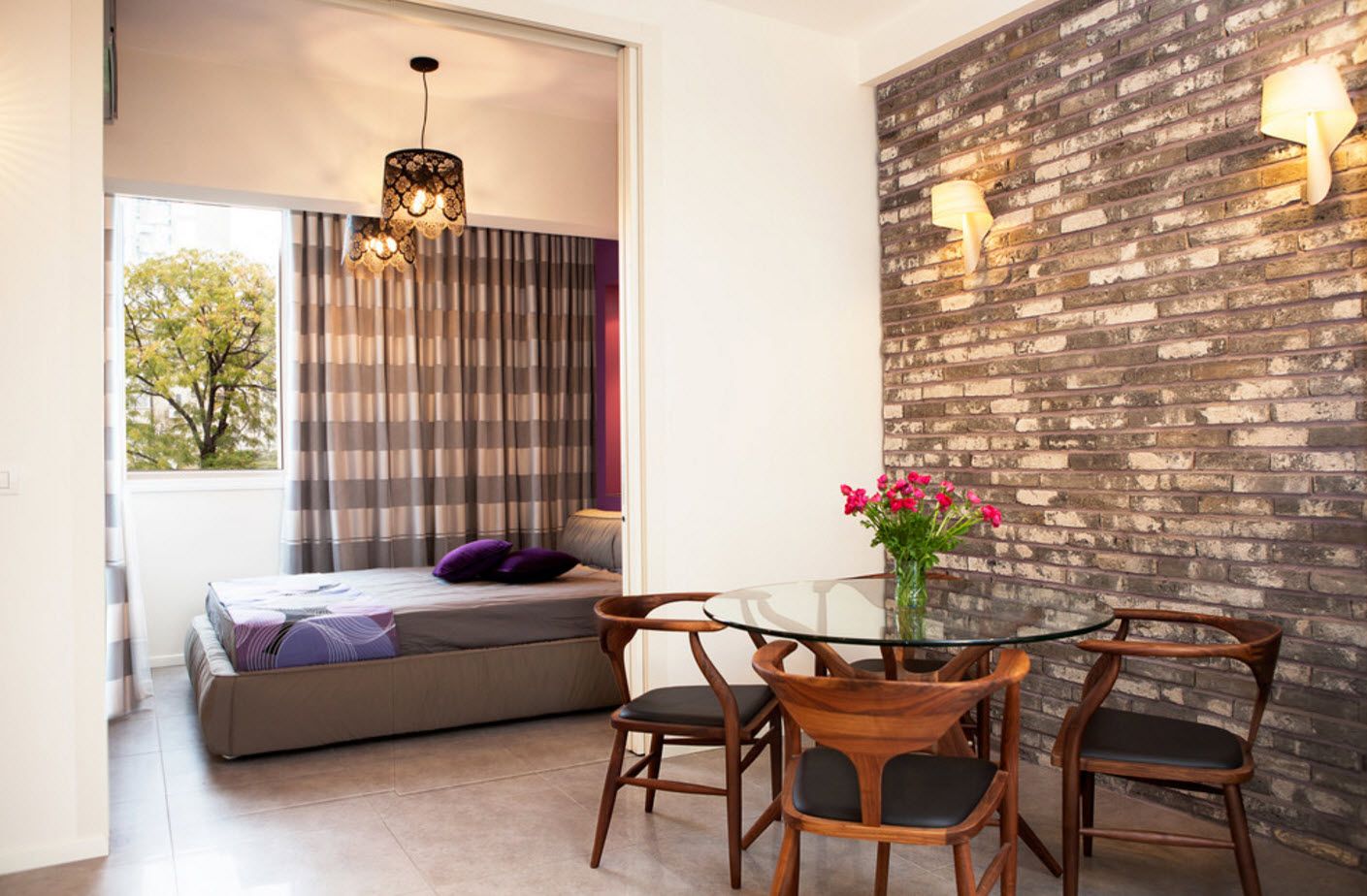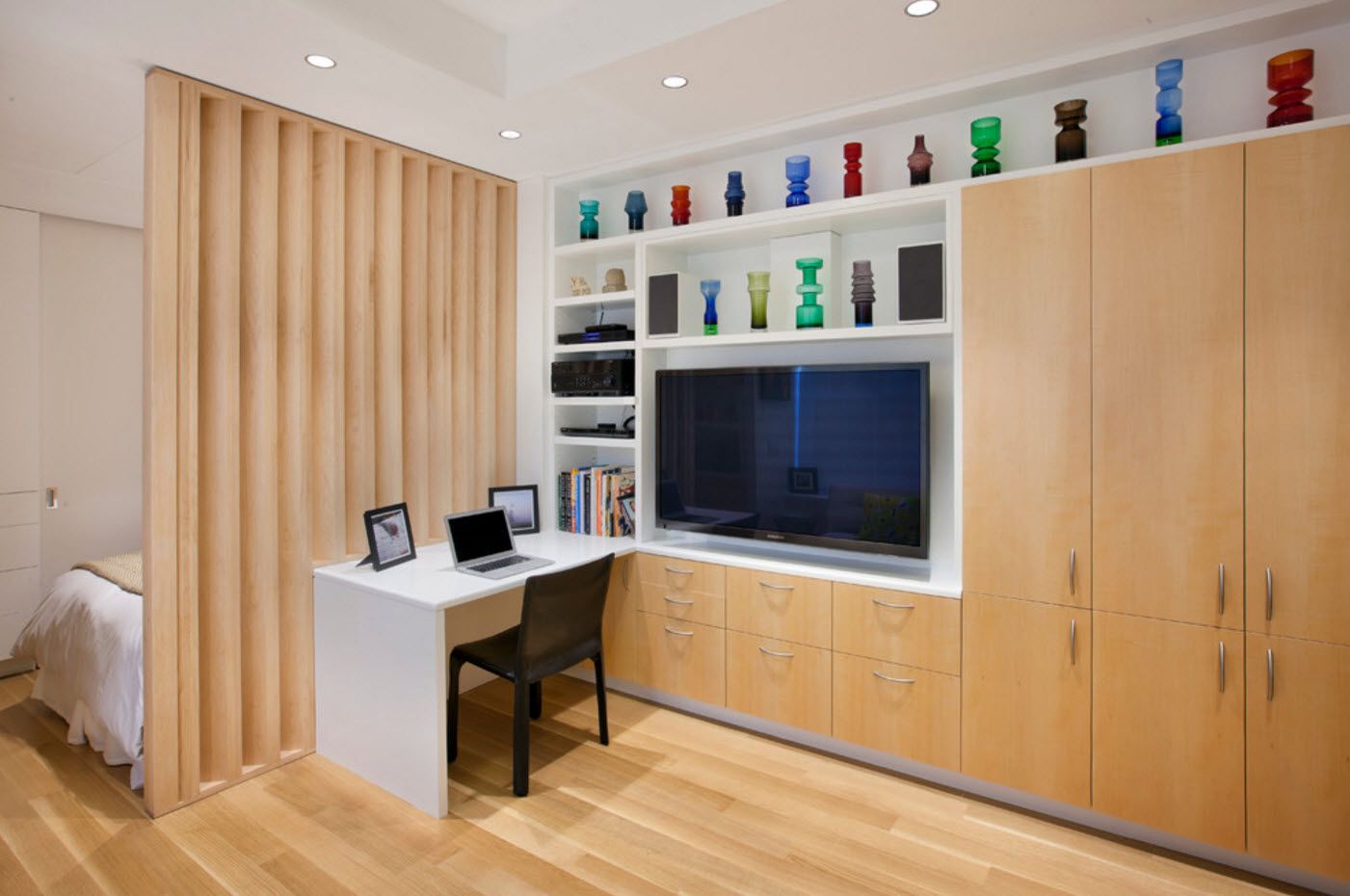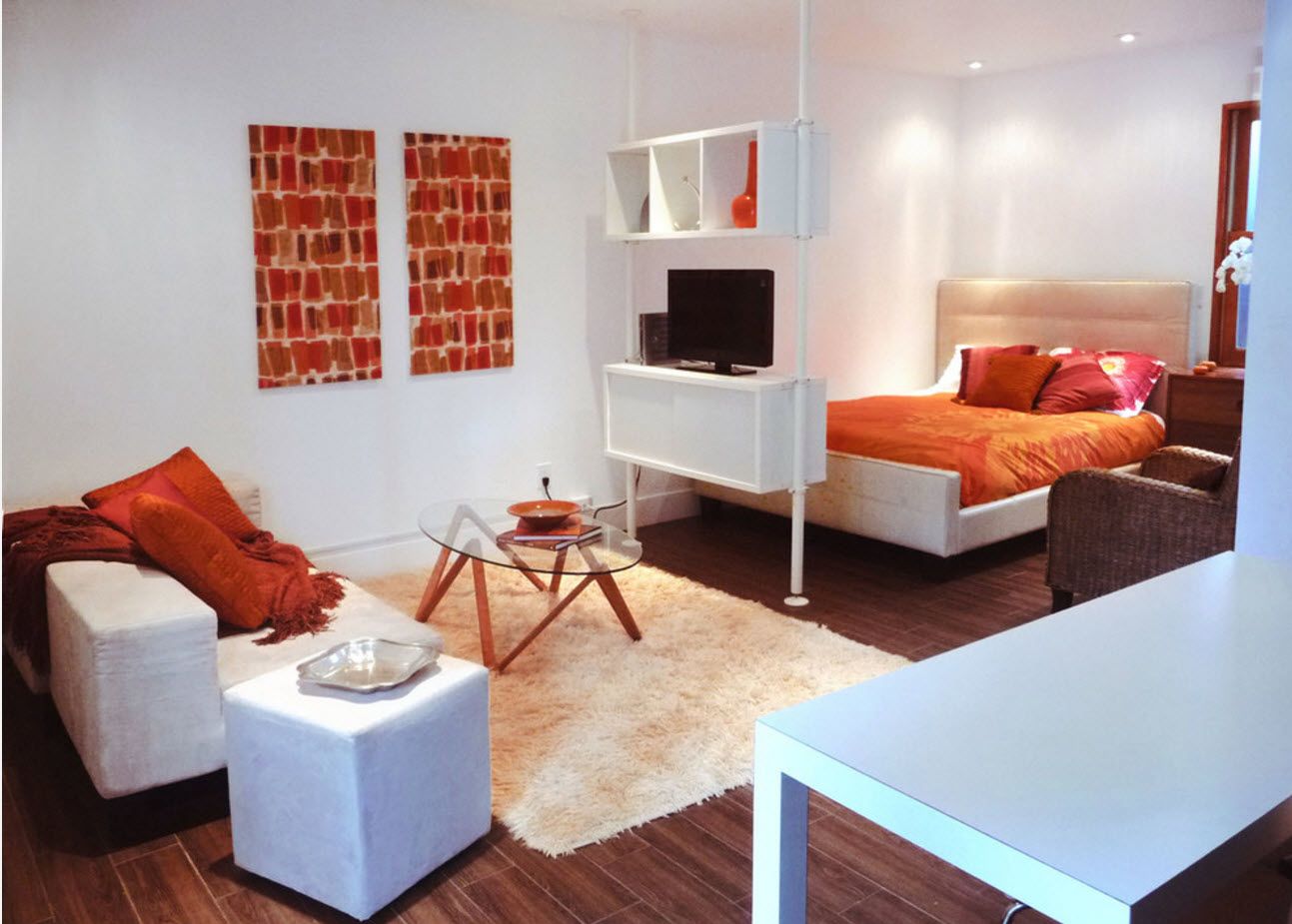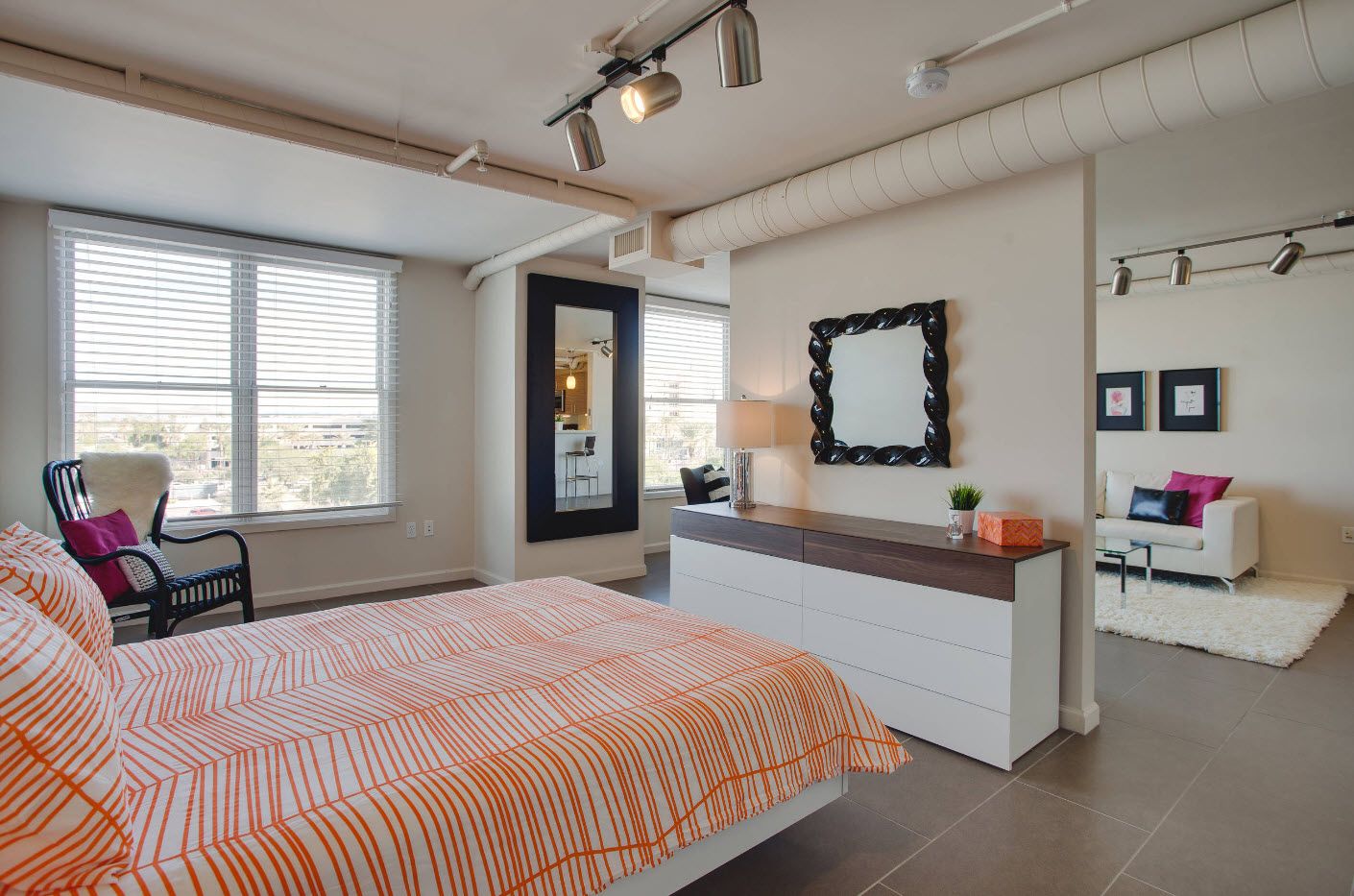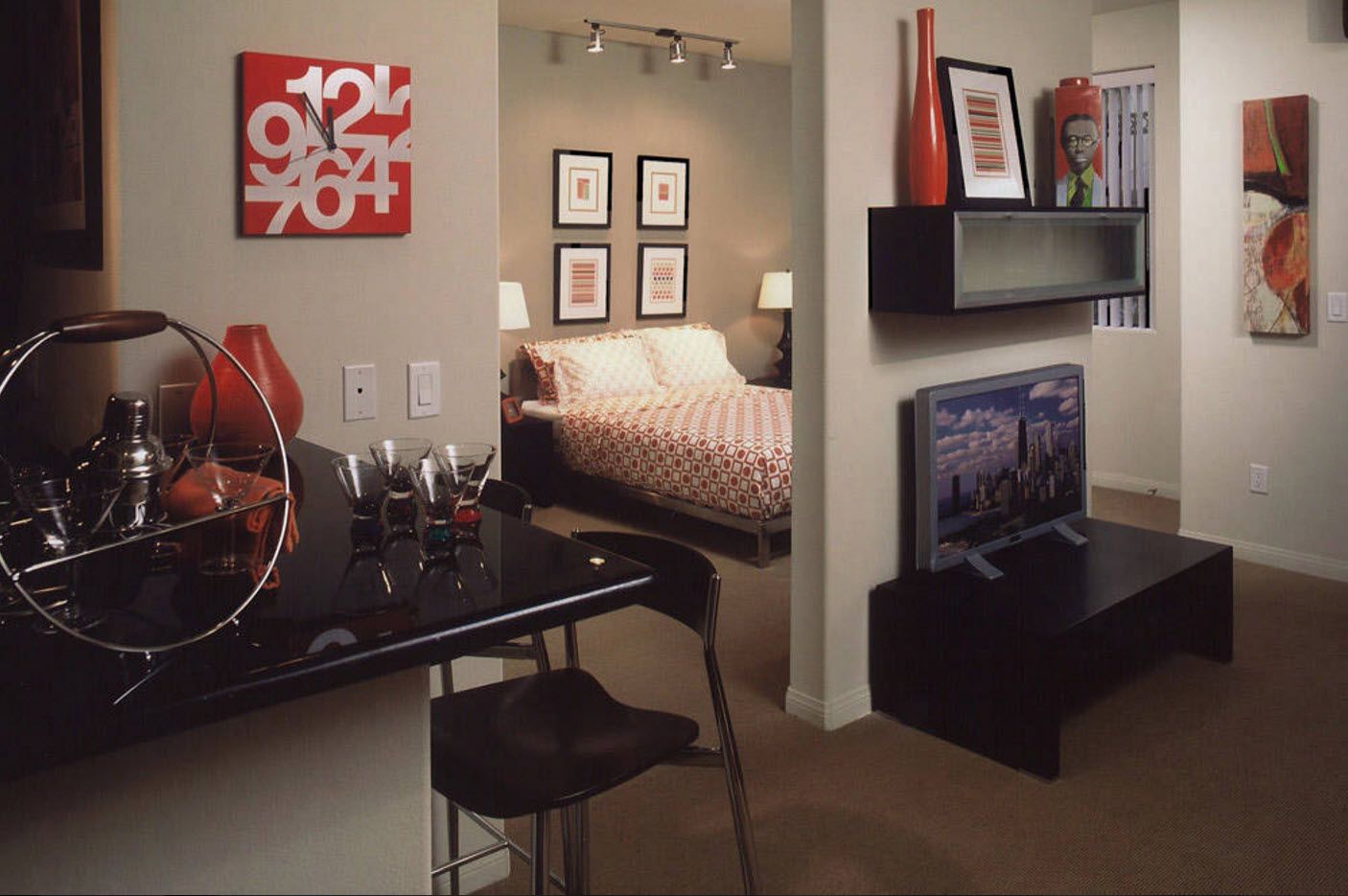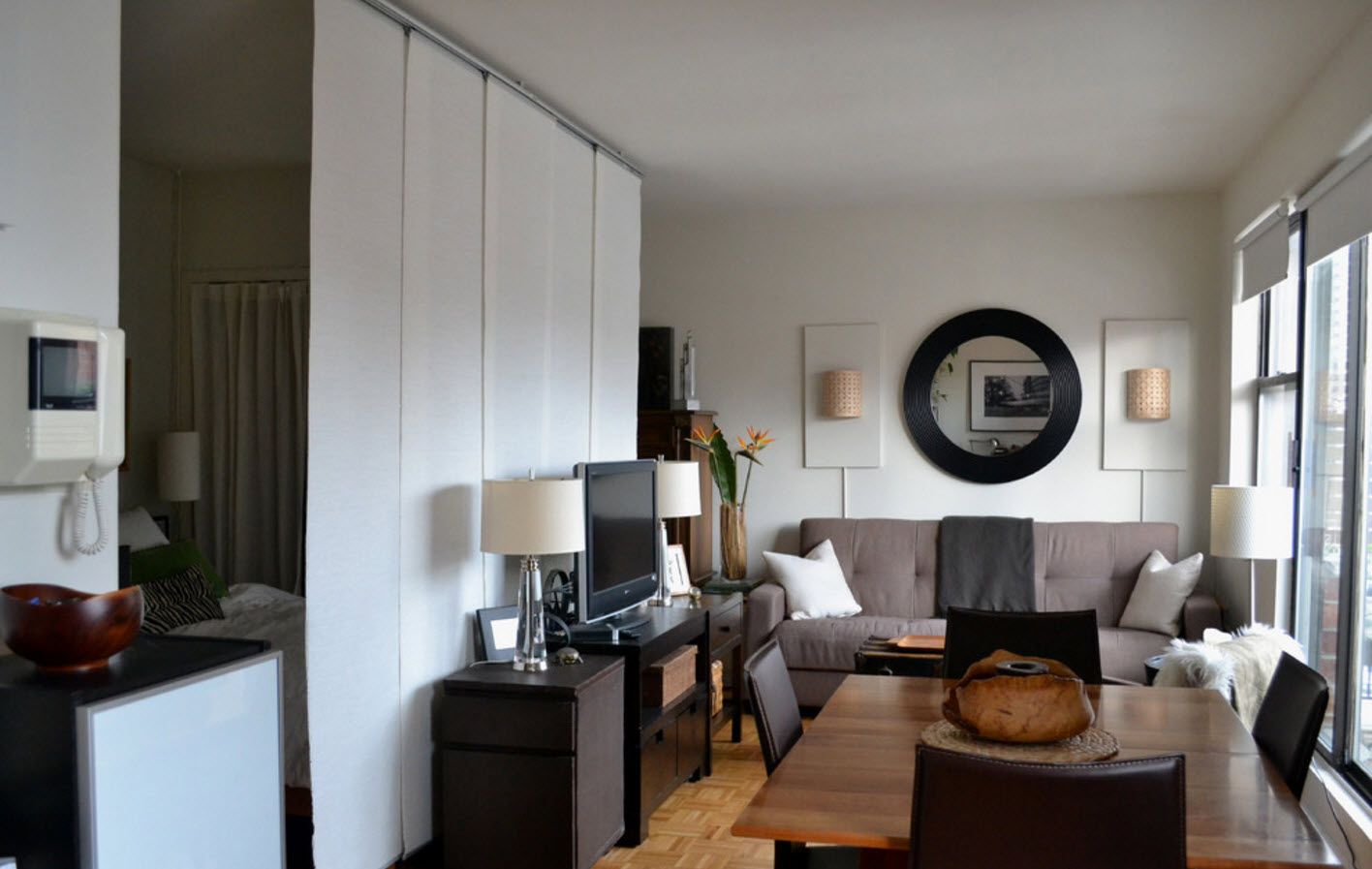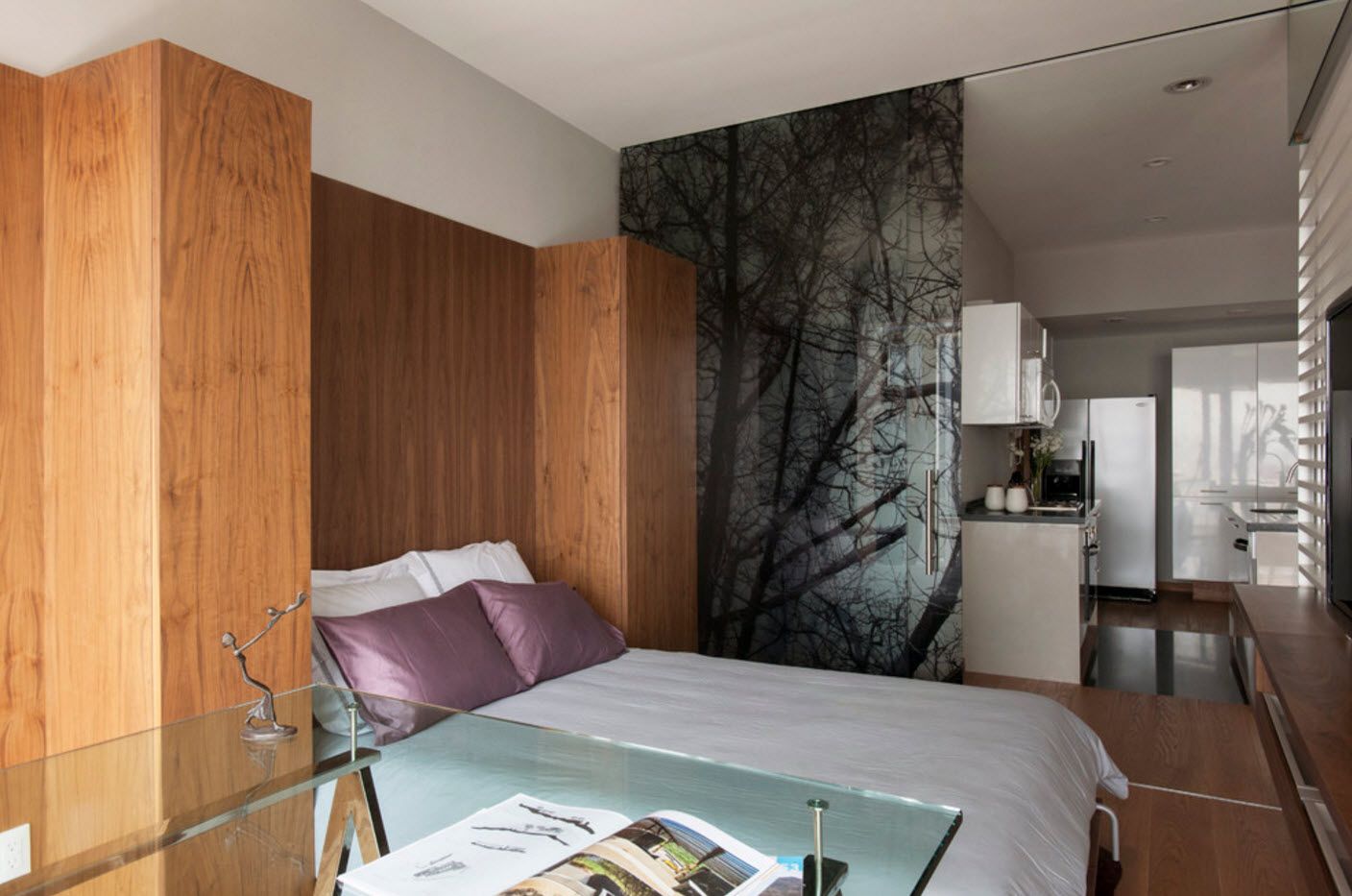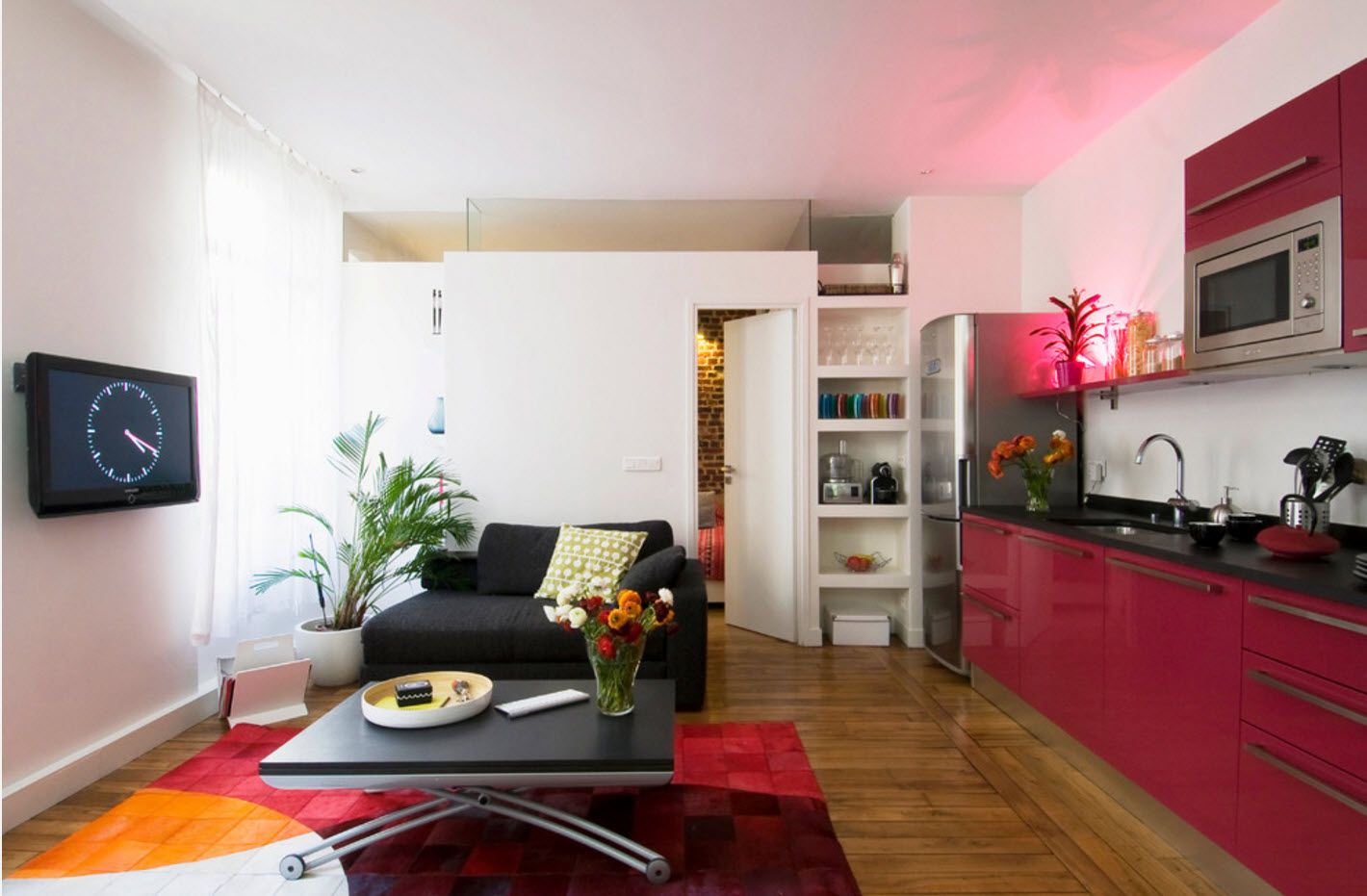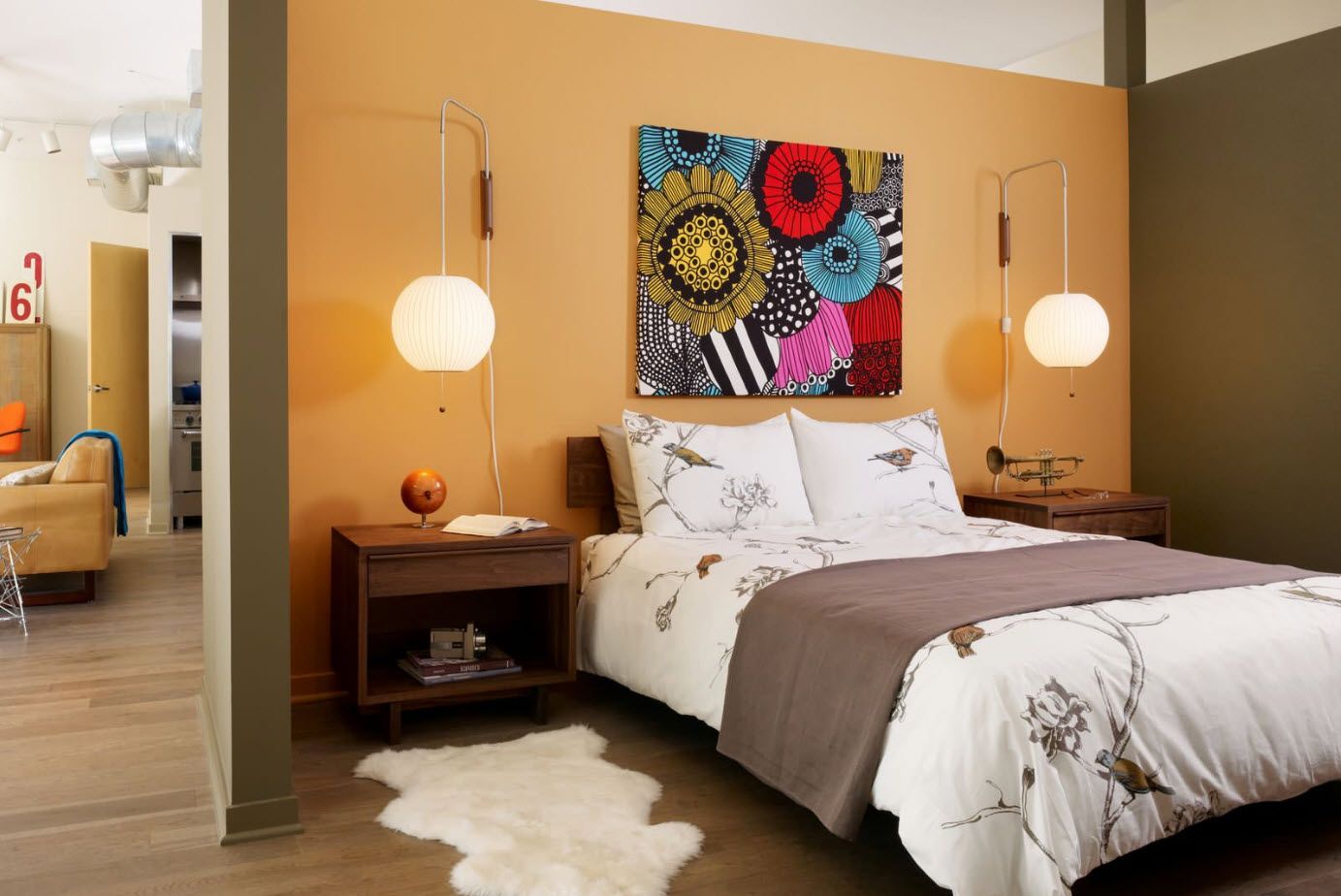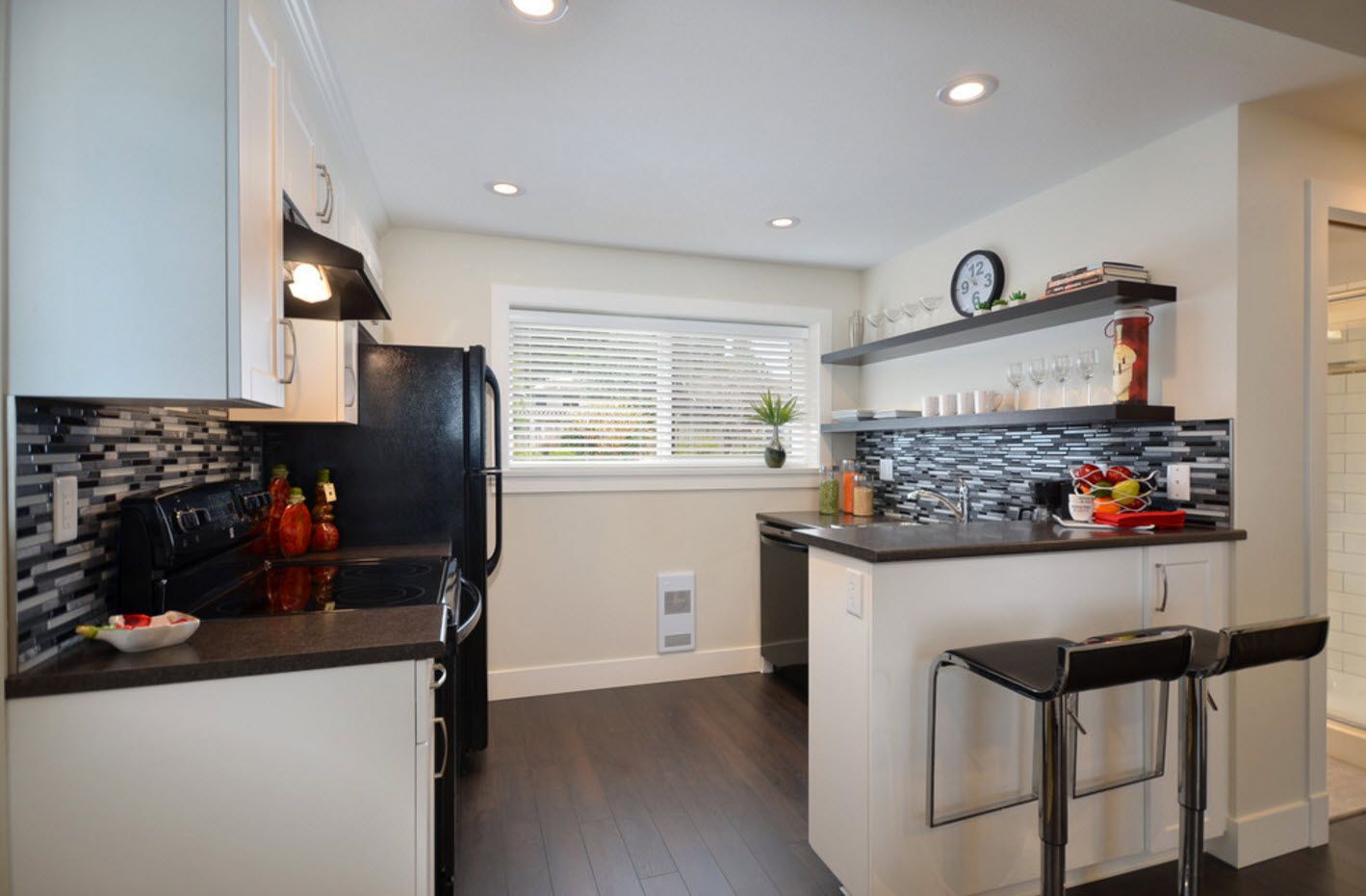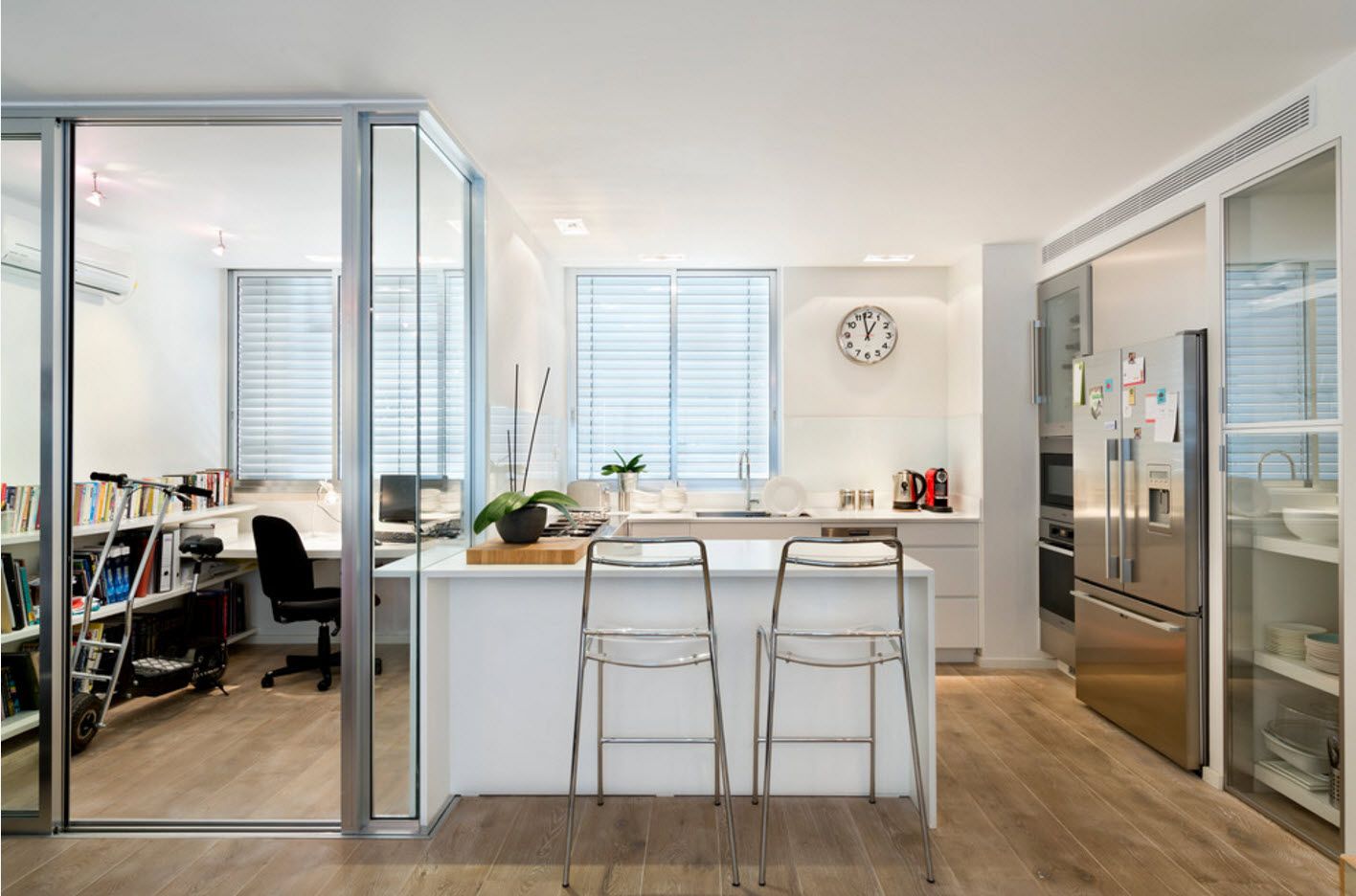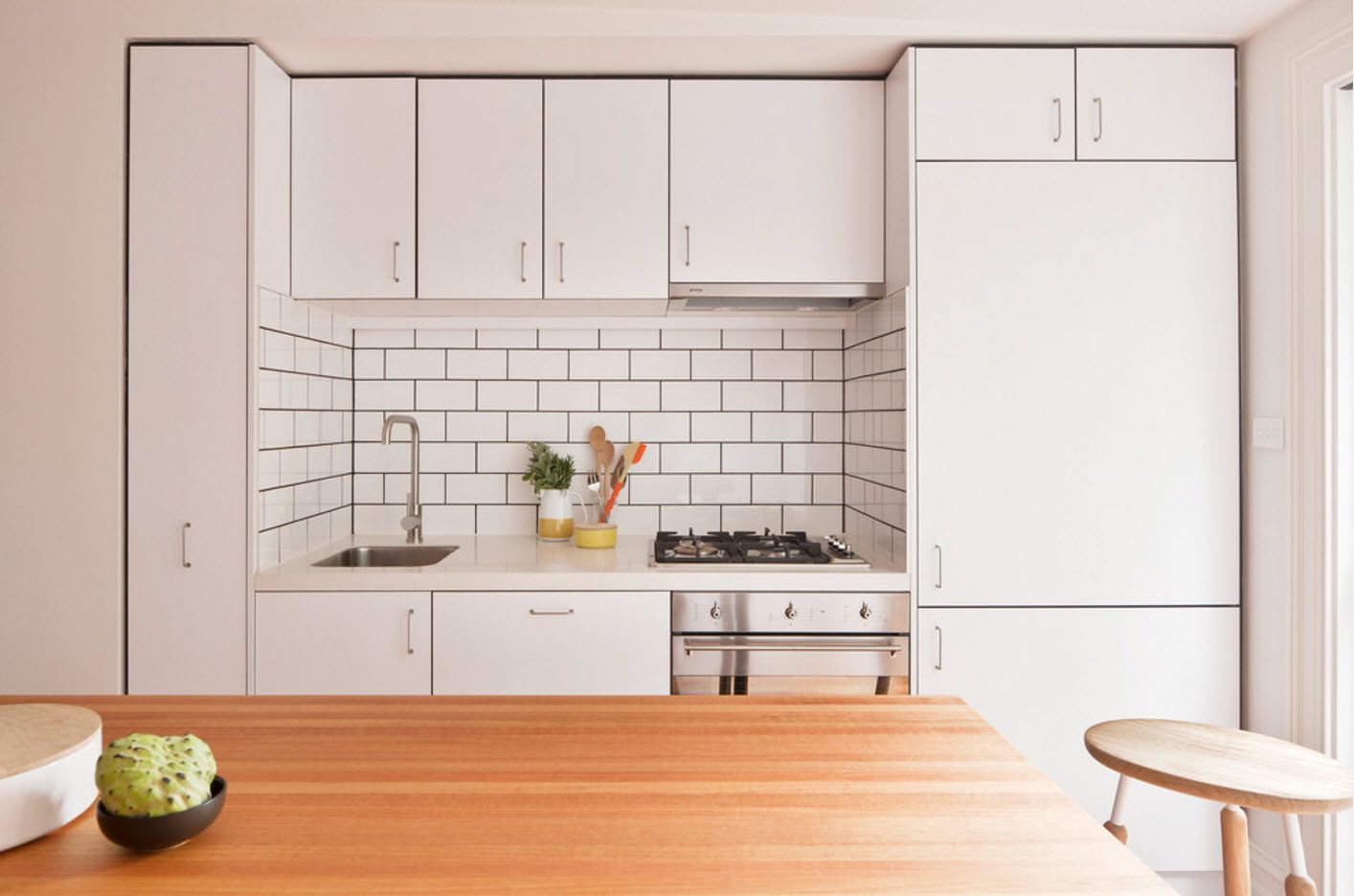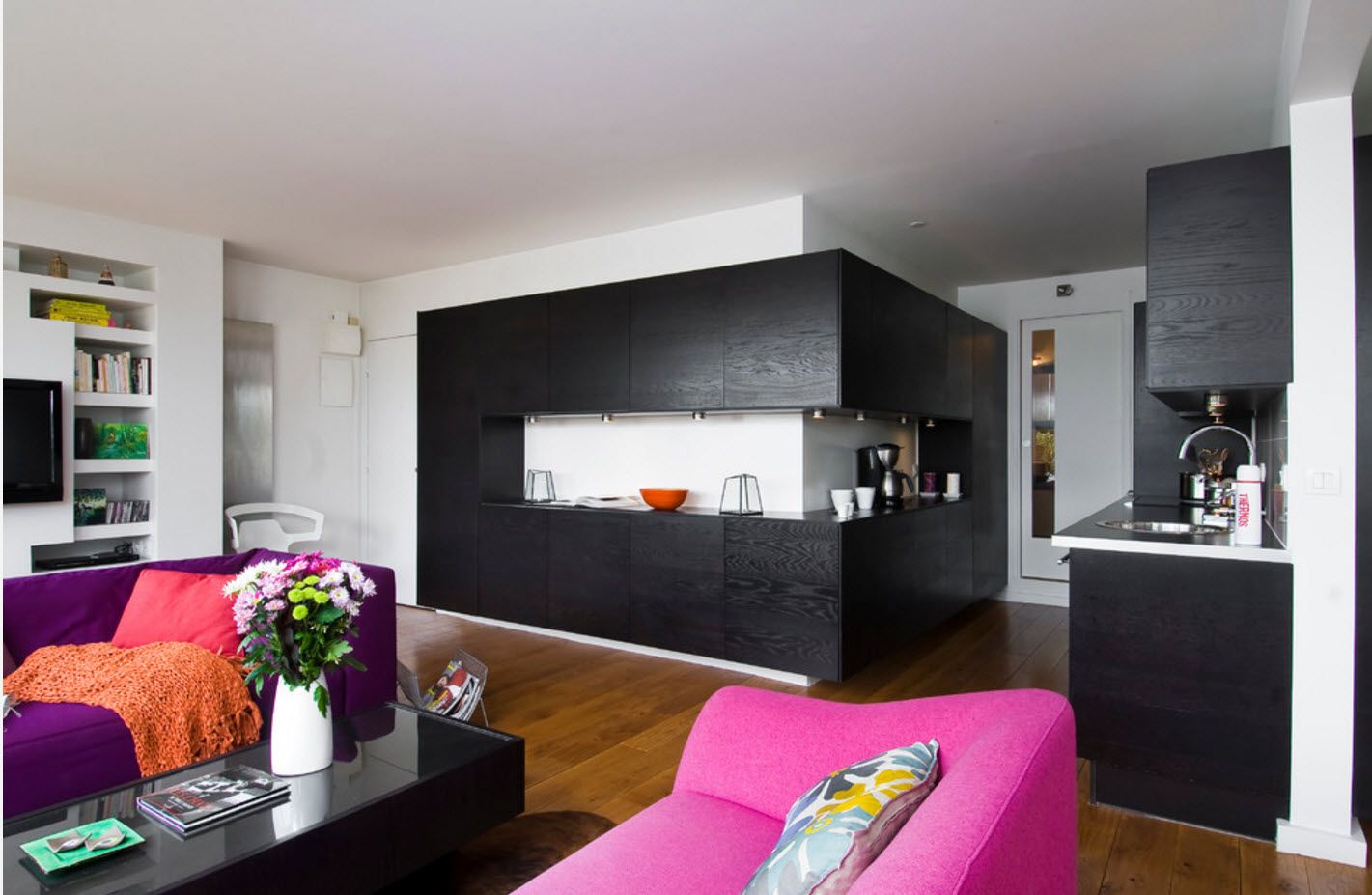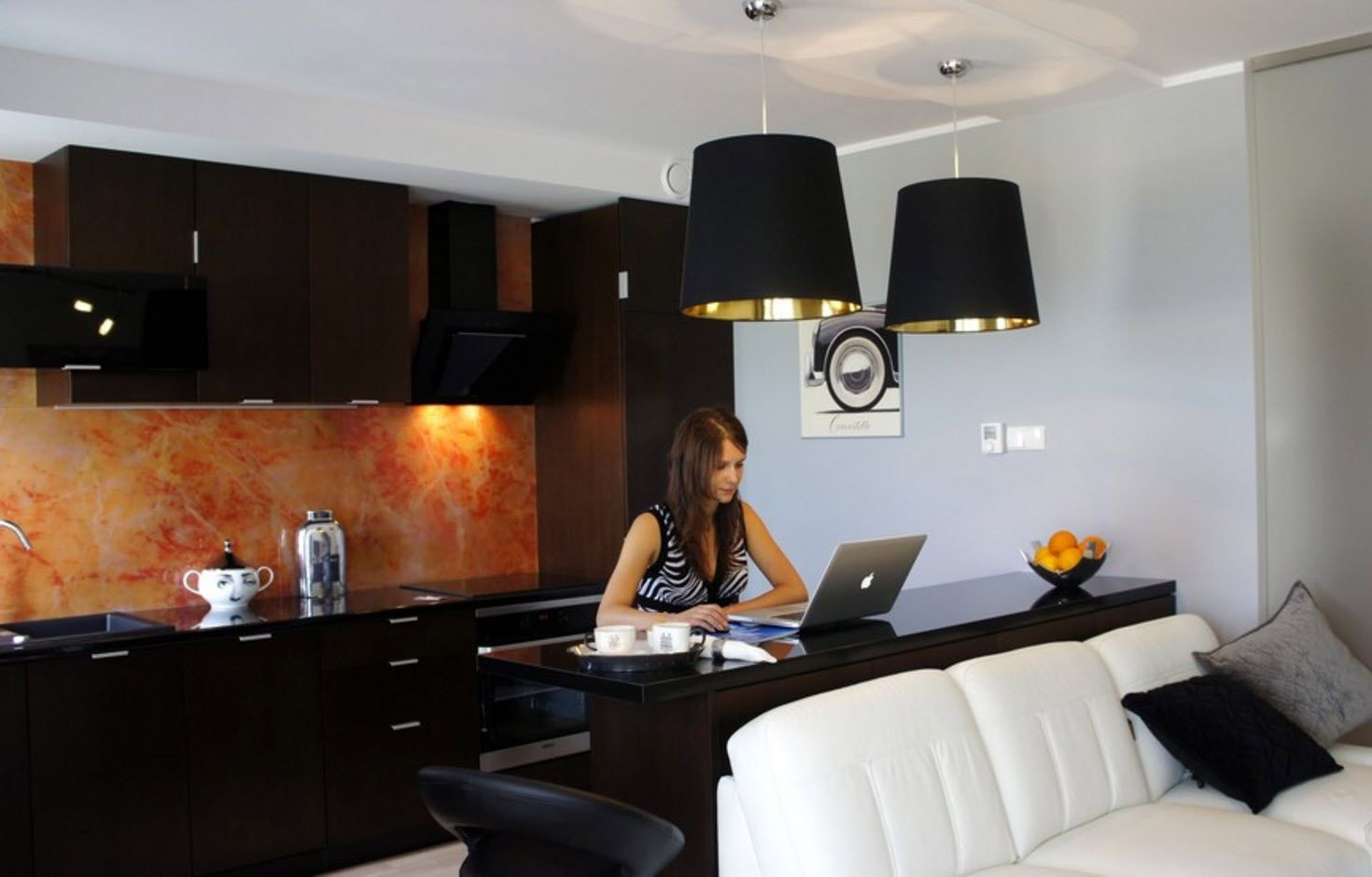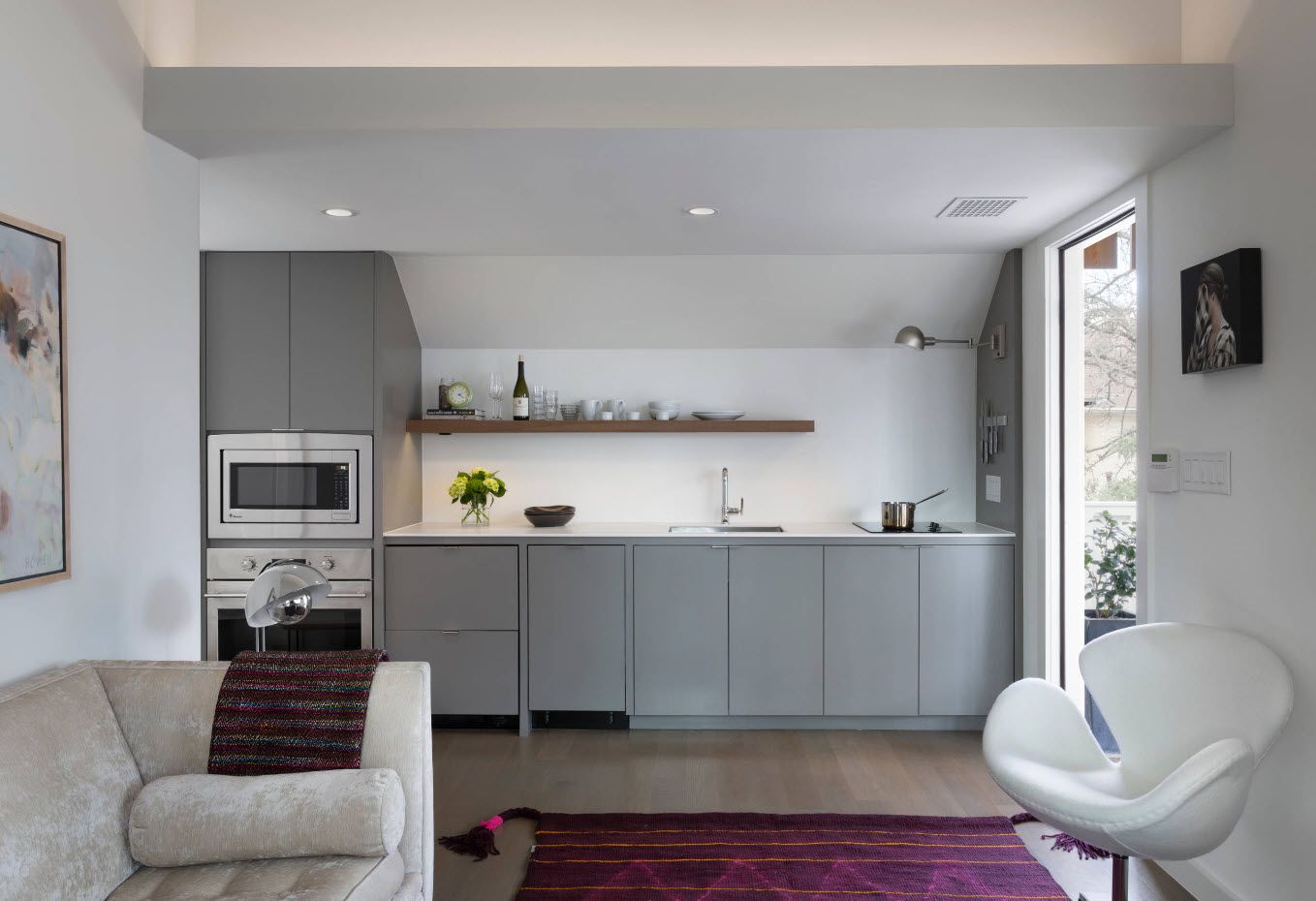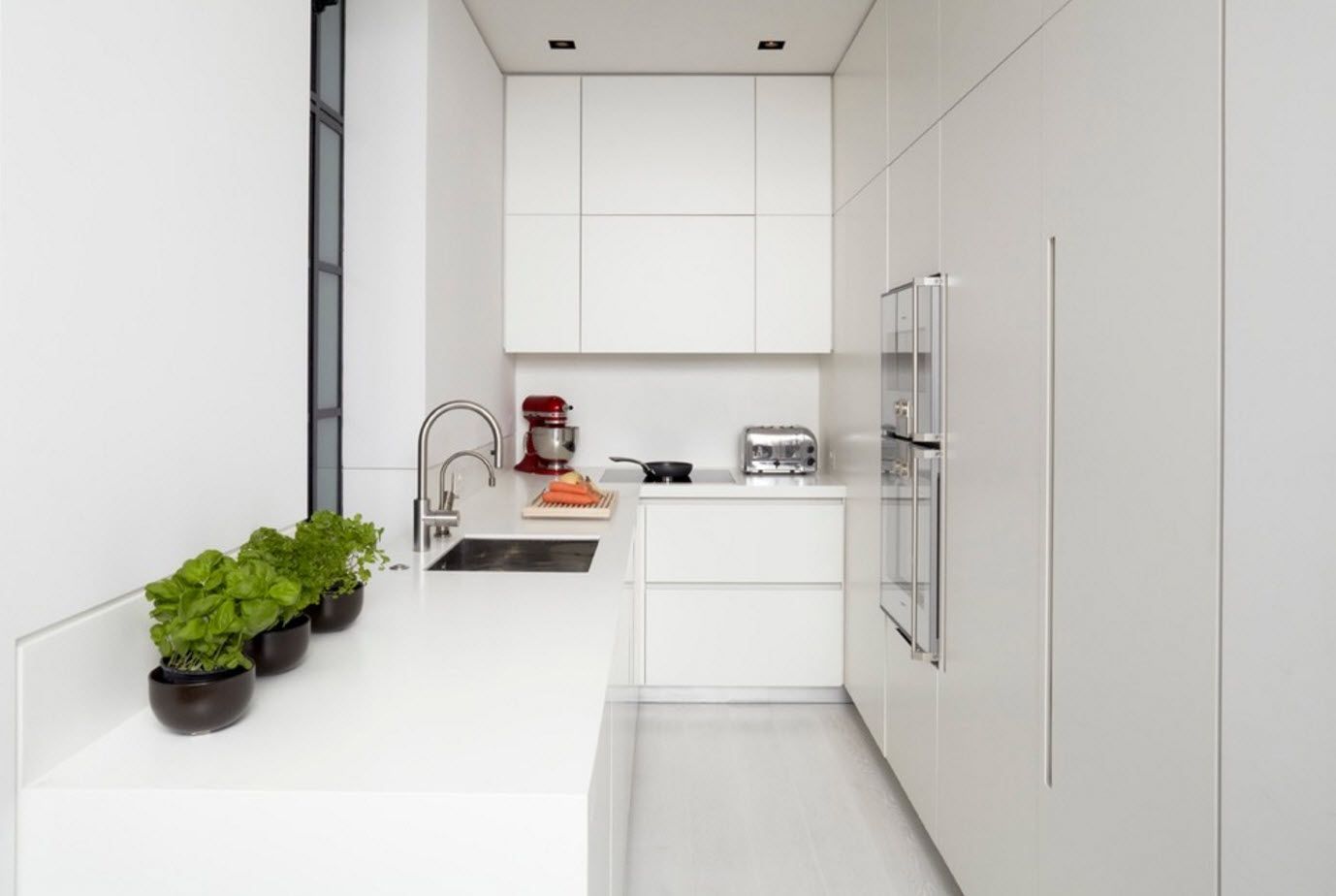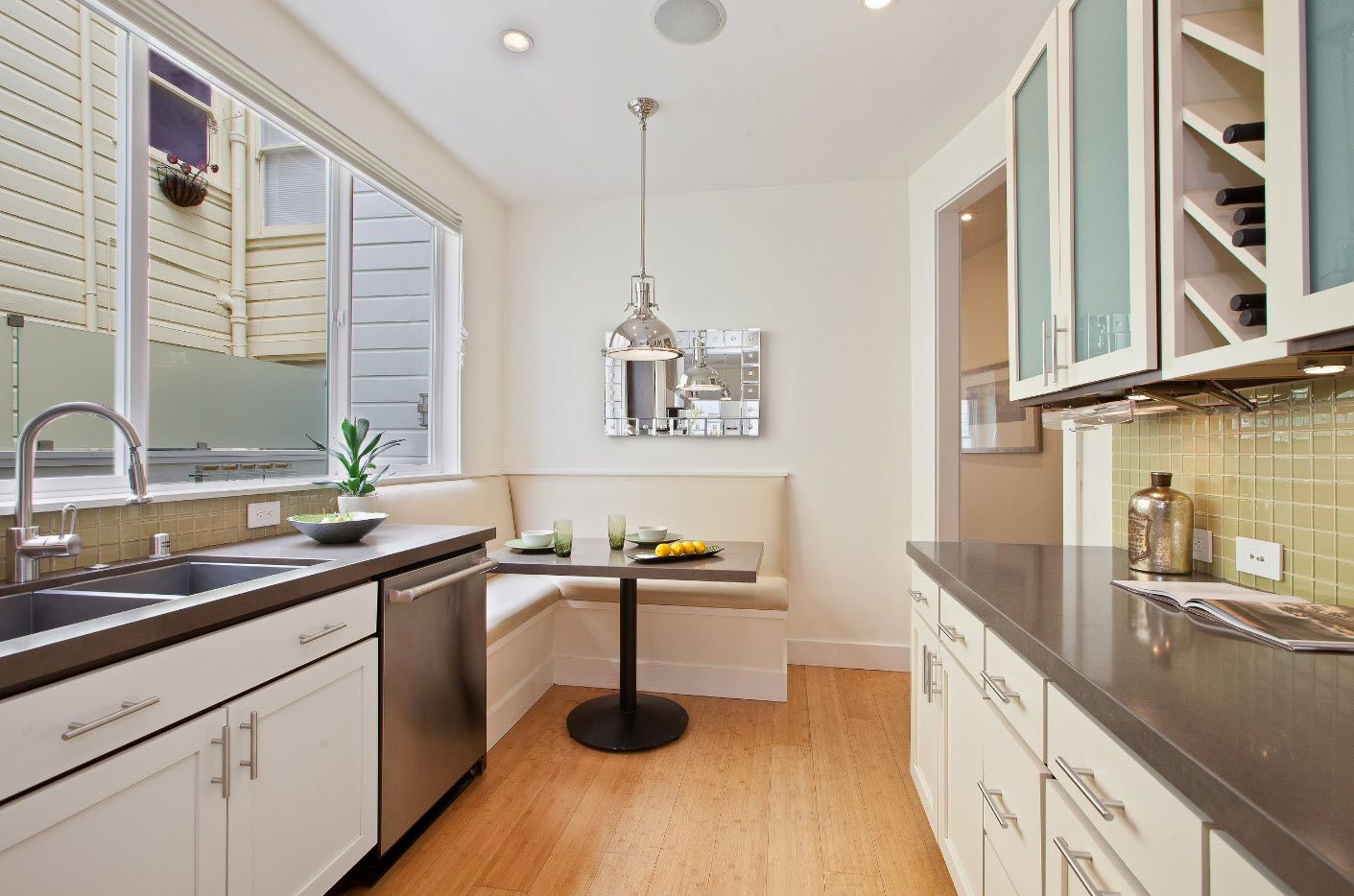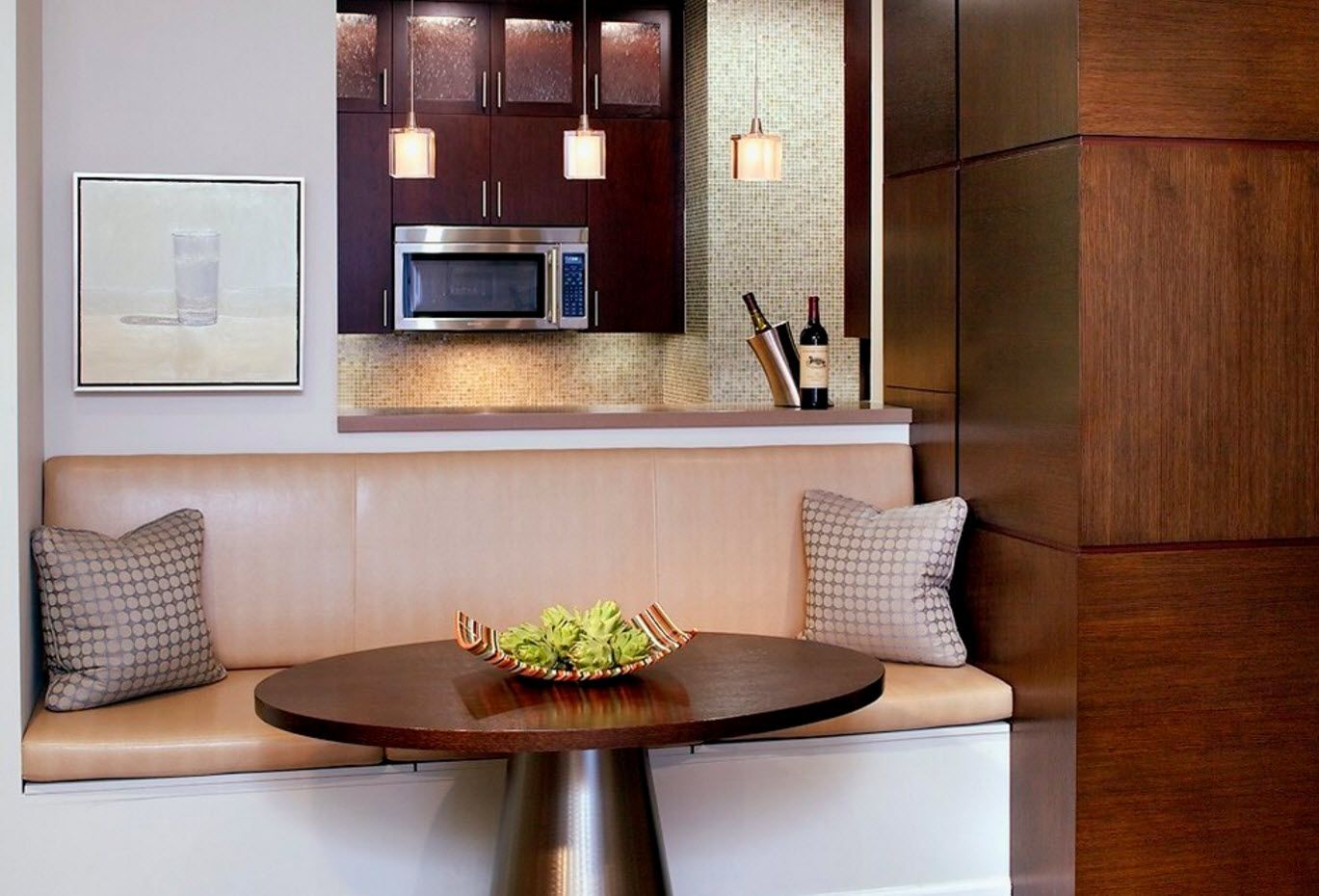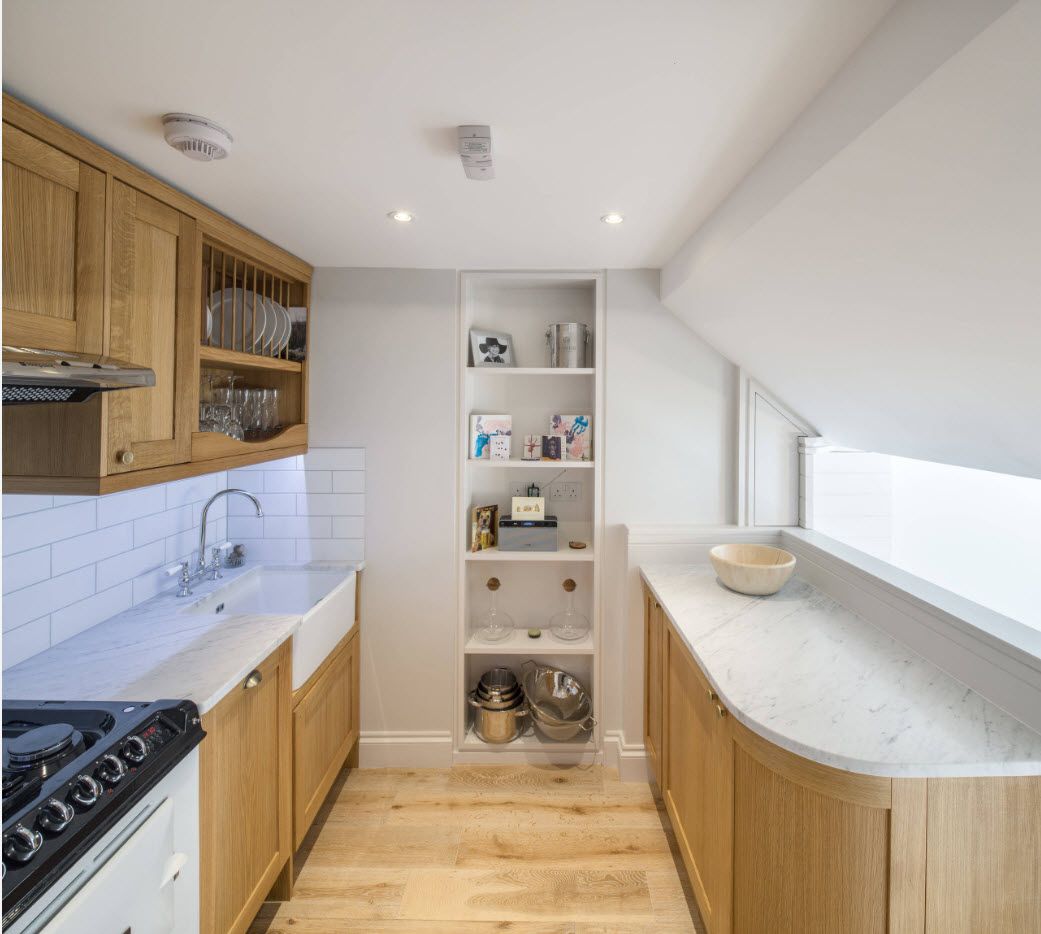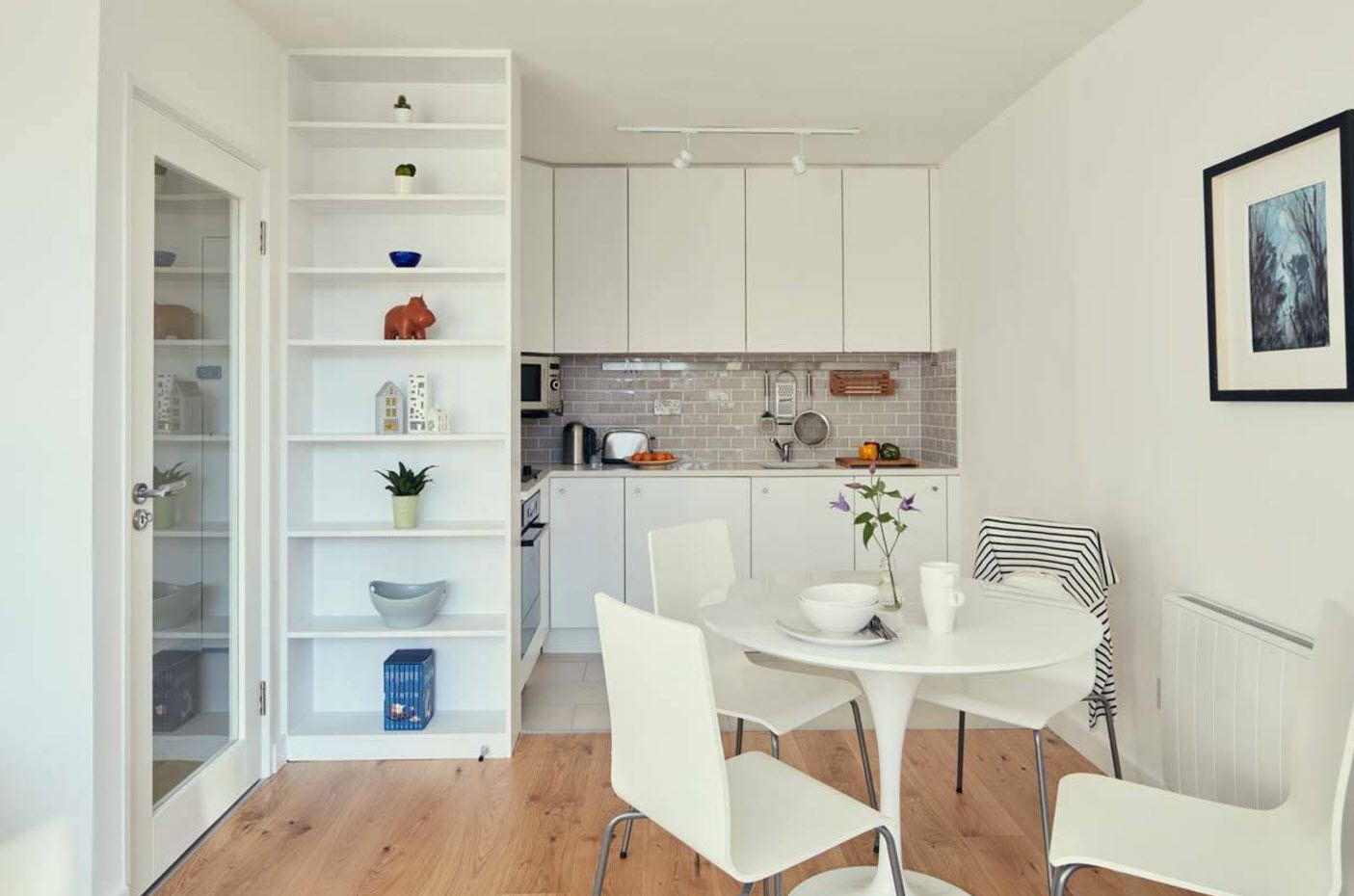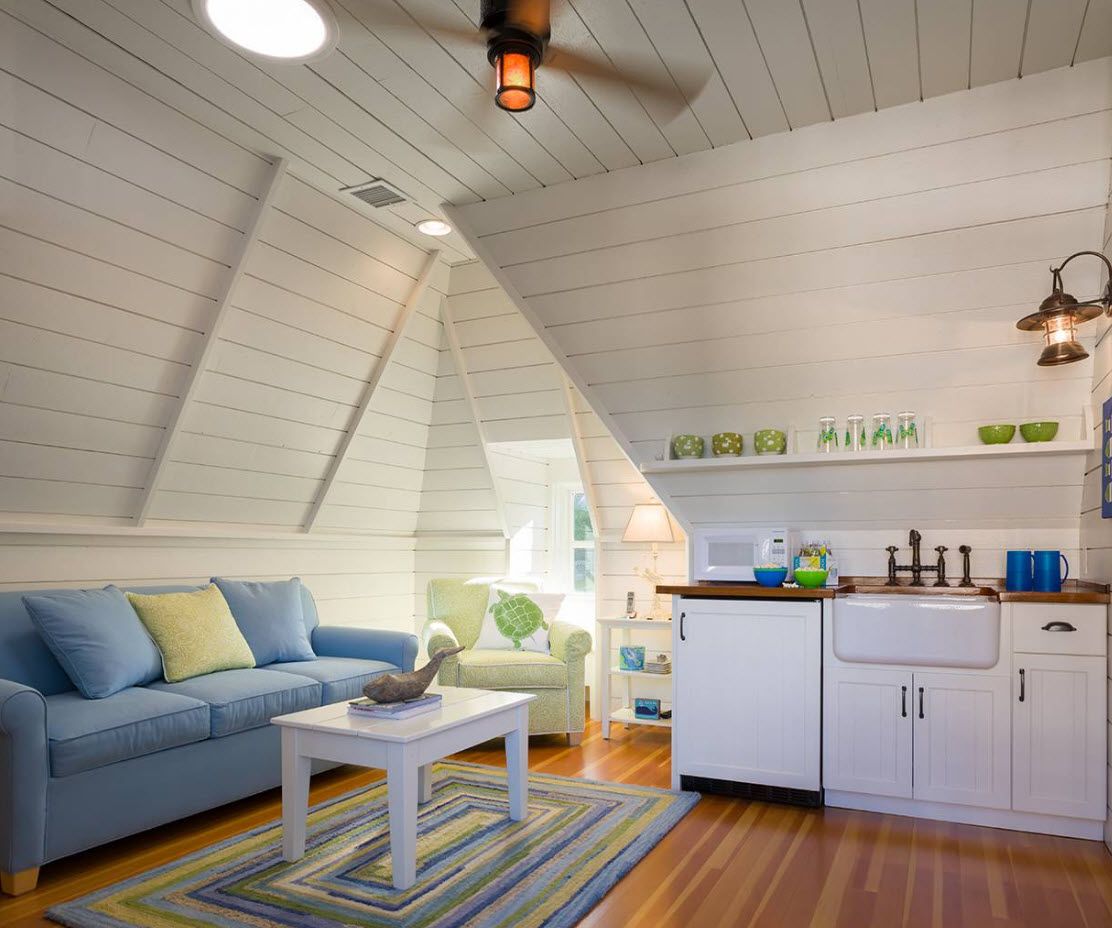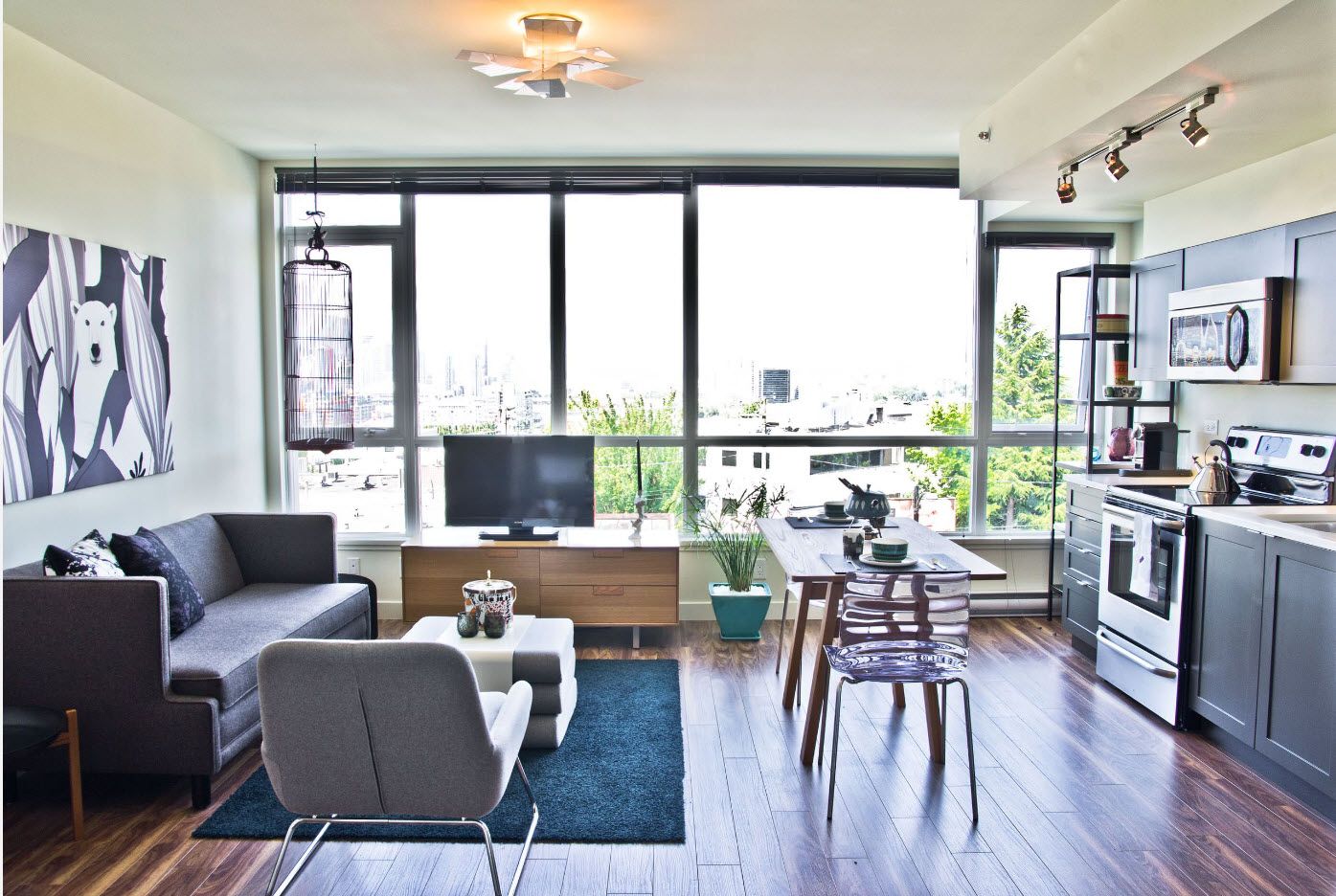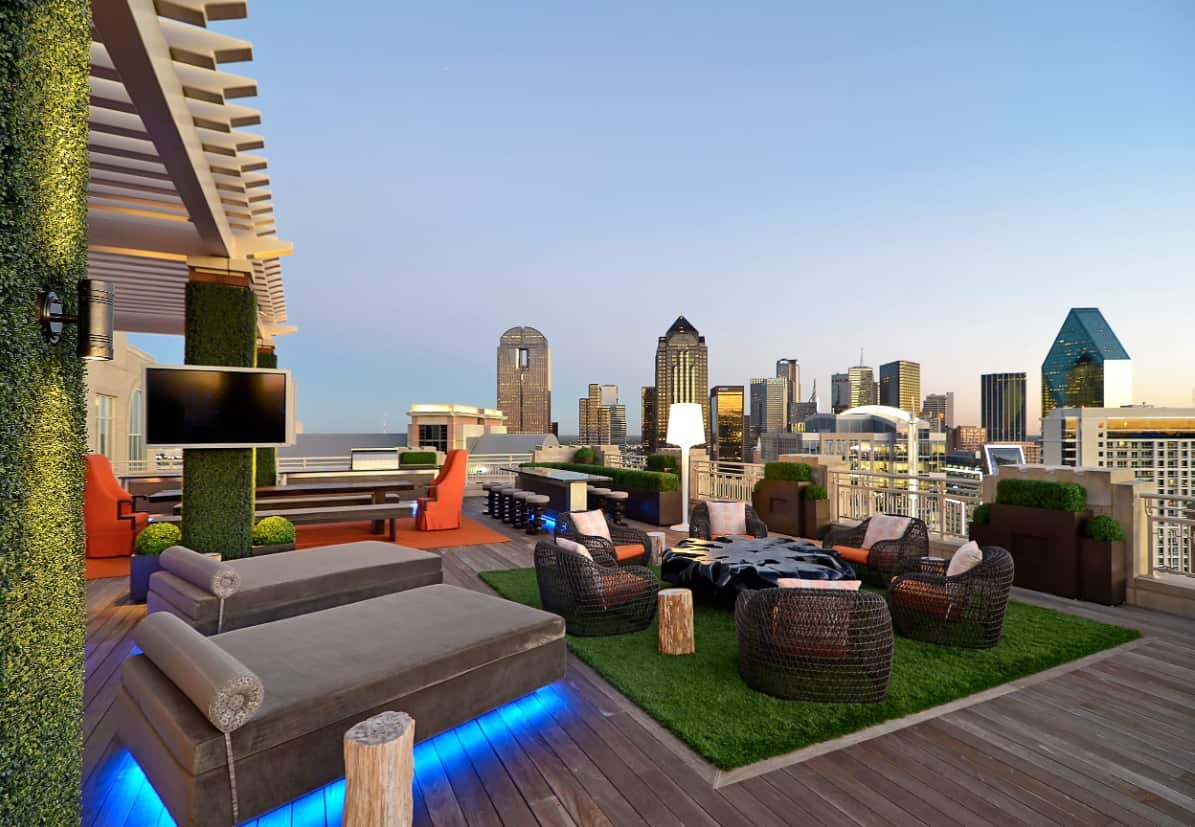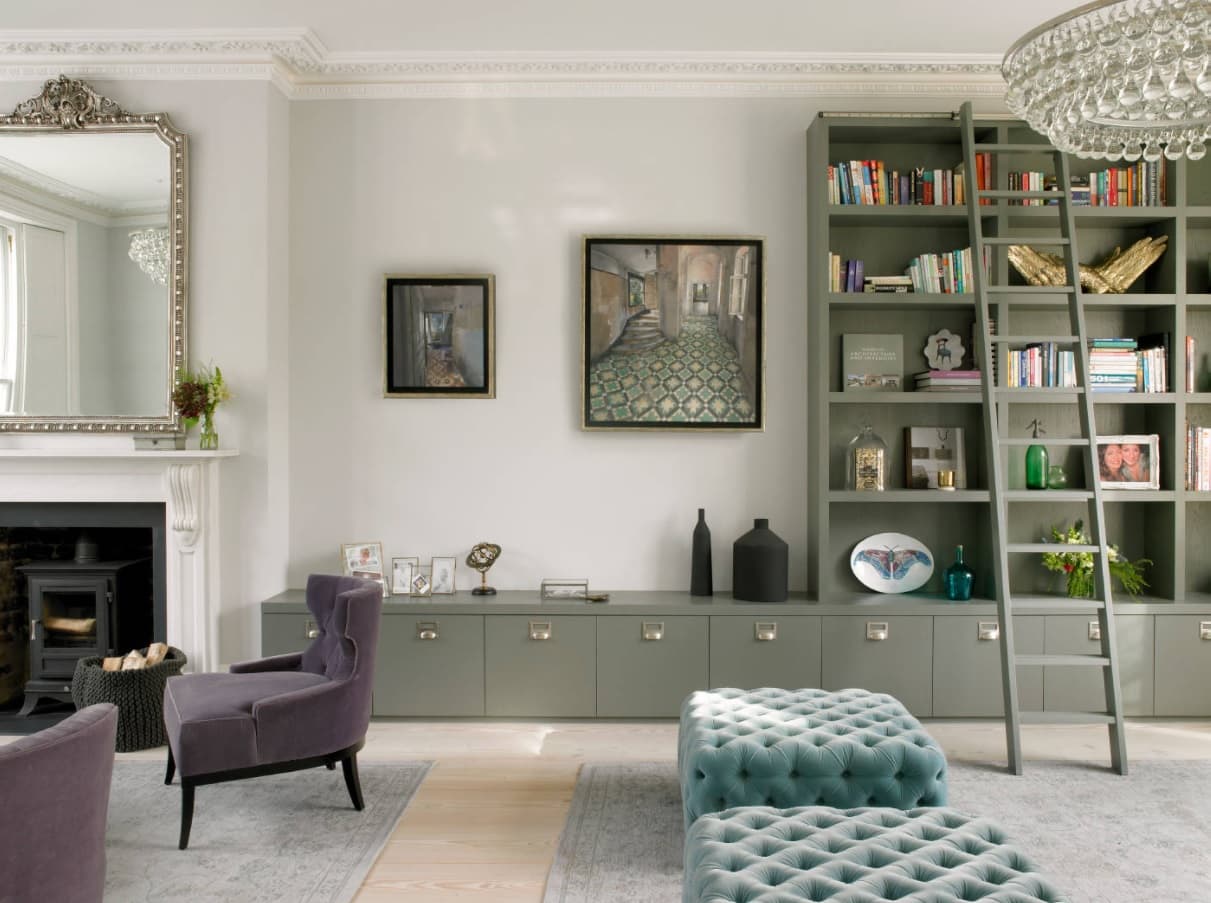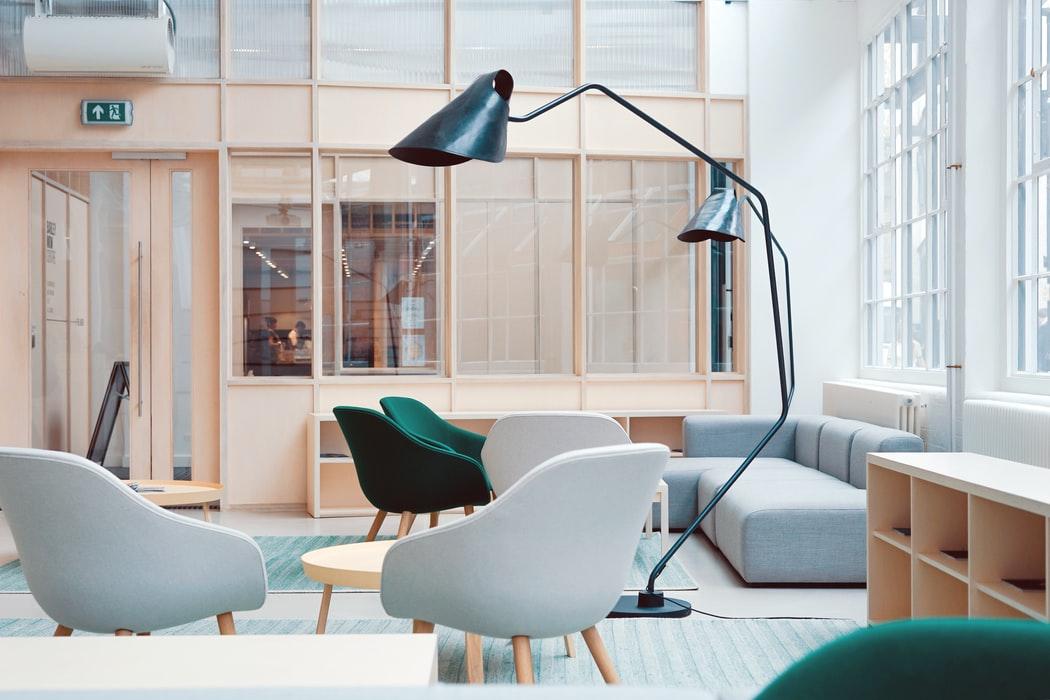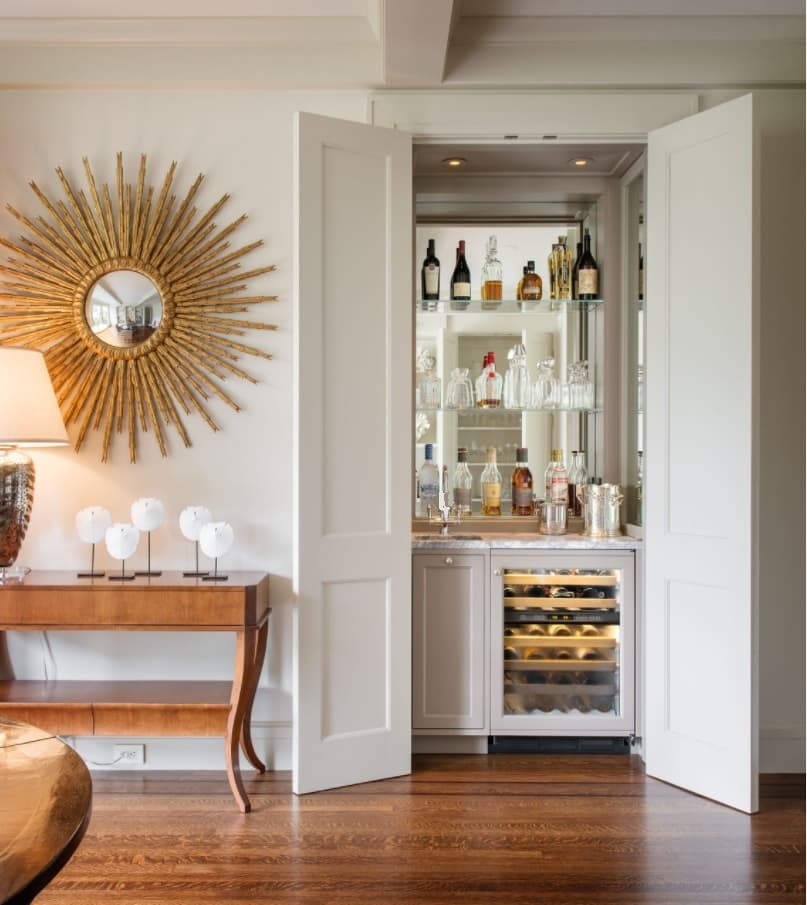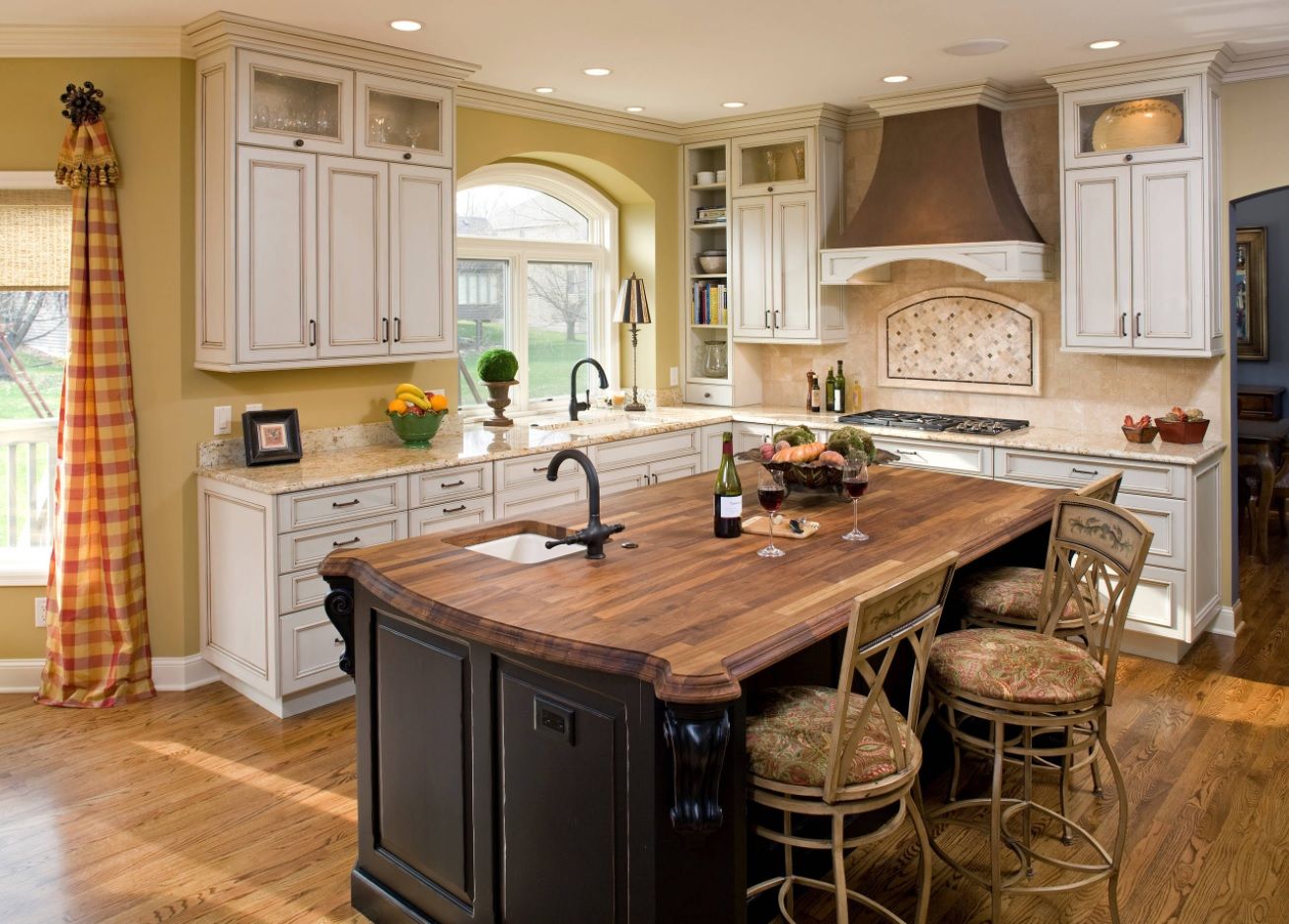Residential space is never too much. But this axiom often affects the owners of large apartments is not the best light – large areas are spent inefficiently. But the owners of small apartments are used to save every square centimeter and already know by heart all the ways of visual expansion of the space and effective planning. Given the continuing increase in real estate prices (especially in large cities), many of us may feel the happiness of possessing even a small, but separate studio apartment. And this dwelling is necessary to equip with maximum practicality, comfort, and efficiency. Not forgetting about the latest trends and personal preferences in interior design. Not an easy task though, but doable. All the more that designers have accumulated considerable experience in creating ergonomic, functional, and visually appealing design projects of one-bedroom apartments for so many years. We offer you a kaleidoscope of 100+ small studio apartment design ideas & real-life projects photo gallery to create a multifunctional interior of a small area dwelling and we hope that it will help you to create an original and cozy design for your apartment.
Contents:
What is a Studio Apartment?
Let’s define a studio apartment as a term. The studio is usually a small apartment where we have no space for extra walls, so we opt for an open-plan layout. It means all the necessary zones like the kitchen, living, bedroom, etc. are placed in the common area. Of course, each specific zone is bordered by different design tricks and decorations. The only exception is the bedroom which can’t be exposed in terms of intimacy.
Opposing to one-bedroom apartments, studios are more compact and when having a similar area they seem bigger due to the open layout. Moreover, some homeowners tend to redo their apartments into the studio by the demolition of walls and leaving just columns and arches instead. Large studio apartments are also trendy for modern residential buildings. Many dynamic and active people give preference to open layout striving for a sense of freedom and natural light.
Studio Apartment Layout
The most winning side of studio apartments is the simplicity of their plans and layouts. Further, you’ll see some design tricks on how to decorate the ready-made studio apartment to fill it with authenticity. But saying about the layout, everything is more or less predictable.
Photo from: home-designing.com
The standard arrangement of a typical studio apartment is rather conservative: living, sleeping, kitchen/dining zones at the open space and wardrobe/utility room, and bathroom secluded.
Design Ideas for Decorating One Room Apartment
Before you start planning a repair in a studio apartment, it is necessary to determine the number of functional segments:
- Will you combine the kitchen with room to increase the general area and create an open plan interior (you may need not only wall demolition and dismantling of the doorways, but also the transfer of communication systems);
- decide the number of zones in the living room – sleeping and recreation segment, a video area, workspace, children’s playing area;
- You also need to find out whether it is possible to increase the total area by joining the loggia;
- Most studios have a storage room that can be converted into a built-in wardrobe, thereby relieving the room and freeing you from having to install a large storage system for the entire family wardrobe.
If it is not always possible to change the amount of free square feet, but achieving the visual expansion of space is easy by using the following design techniques:
- one of the easiest and most popular ways is the use of a light color palette. In order to make the room appear larger, and herewith not to look shapeless (which happens by total use of bright colors for all surfaces), use the following stratification by tones – ceiling should be the brightest, the walls are one or two shades darker, and contrast-dark floor covering;
- glossy, glass, and mirror surfaces will also help to create a light and fresh image of space, slightly pushing the boundaries of a small area of your single room;
- you need to give preference to the furniture of simple and concise models in small spaces. Any manufacturer has a line of compact, but functional and extremely practical models of sofas and chairs, storage systems, and attributes to them in its arsenal;
- Reduce the use of decoration to a minimum. It does not mean that the whole situation should be minimalistic, devoid of decorations. But you’ll need to abandon the floor elements, preferring the use of metered wall decorations;
- particularly small spaces need sufficient lighting. If it is rarely possible to increase the window openings for natural light, but it is necessary to provide the room with several sources of artificial lighting. You can not only zone the space but also decorate it with the help of the lighting system.
We have to use the entire arsenal of useful design techniques for the proper distribution of space and its visually increasing in small spaces. Light shades of the color palette of finishing and furniture are both useful. The use of pieces of furniture made to fit the dimensions of the room, the use of transforming mechanisms, and fidelity to the principles of minimalism are always in trend.
The combined use of white shades for surface design and installation of the mirror planes as part of decoration allows the creation of maximum illumination even in the room located on the north side of the building. The snow-white situation is best to be “diluted” with the integration of wooden surfaces and furniture items in warm natural colors – from pastel to dark chocolate.
Not less effective in creating light, airy image space can be achieved by using glass and plastic interior elements. Transparent plastic and glass as if dissolving in space. Seating group or coffee table, desk, or console – all these things will not burden the design of a single room if they have a transparent texture. Such elements fit perfectly to the modern style of the room decoration.
The combined areas should utilize any available advantage. For example, if the ceiling in your apartment is above average, so using this design feature is a must. Built-in storage under the ceiling is impractical only at first glance. You’ll need to use a ladder or even a chair to reach them. But on the other hand, you can store some things which are in use once a season or even more rarely.
You can use the high ceiling apartments to create an additional residential tier. Sleeper in the form of a loft bed for adults is a reality of our time. The shortage of square living feet can be more than compensate for the creation of the second level. The only is that it is important to entrust the projecting to specialists who will be able not only to calculate the load but also to perform all the work regarding quality assurance. Transferring area for sleeping to the upper tier, you free up the main space for the arrangement of the living room, dining room, and kitchen.
Pieces of transforming furniture can significantly simplify the lives of those who are forced to locate the living room, bedroom, office space, and possibly also a kitchen with a dining area into the same room. A folding bed that is hidden behind the facade of the closet in the daytime and unfolds into a full bed for two at night. Folding tabletop, which can serve both as a base for the dining area, so as well as the workplace. All these devices which can be hidden in a closet during the reception of the guest can help the owners to create a comfortable environment after they leave. But it is important to remember that each folding mechanism has a limit on the maximum load. When buying furniture with folding mechanisms it is important not to skimp on findings, as all items will be operated daily or even several times a day.
When creating the interior for the small rooms in which you need to connect several functional segments, many designers are inspired by the ideas of Scandinavian style. Despite the fact that this style loves bright and spacious rooms its motives can be used to design small apartments as well. A reasonable proportion of minimalism, creating the most practical but comfortable atmosphere, simple and concise solutions in terms of furniture sets, and using the cute decor to the heart of bringing comfort in the home – these are the main ideas that appeal to designers and their clients.
Studio or Combining the Kitchen with Room
Bringing together all the functional segments of the home with the isolation only of a bathroom gained such high popularity around the world with a reason. This design method allows you to create the most comfortable and spacious room as much as possible according to the number of square meters. If twenty years ago this kind of housing was still a novelty for our fellow citizens, it is now practiced with great success for couples without children or singles.
No matter whether you have a studio apartment layout with ready-made planning, or you had to demolish all non-load-bearing partitions on your own – the result is the same – it is necessary to distribute the available space correctly. The advantage of such facilities is that all the space is illuminated by sunlight evenly (no walls or other obstructions) and seems bigger than its real size through the use of an open plan. But it is necessary to provide each functional segment a source of artificial light anyway.
One of the advantages of using an open layout is the absence of any barriers and obstacles for not only passing but also the propagation of light. The zoning of functional segments takes place with the help of furniture. Also, an indication of the conventional boundaries of each zone can be implemented with the carpet (in the segment of the living room and bedroom, for example), and a lighting system (it is obvious that one of the central chandeliers in the entire room is not enough).
In the case of an open layout, there are two variants of distribution zones of rest, sleep, and working space. In the first case, the room is being arranged as a living room, and a sofa bed that unfolds only at night performs the role of sleeper. The advantage of this layout is that you can organize such a situation even in a very modest size area. But there is one significant drawback – the owners will always have to sleep on the couch, and even the most comfortable models of them can’t match the ergonomics of sleep compared with a bed or pillow-top mattresses.
If your living room will serve you as a bedroom at the same time, then choosing the corner sofa would be the best decision. Once assembled, such sofas can provide a sufficient number of seats for the hosts and their guests in the afternoon and can be transformed into a full bed for two in the evening. Among other things, the angular design is very convenient to install in the corner of the room near the window. Thus, the light from the window opening will not overlap (which is very important for small spaces) and you will be able to use the blind spot of the room as efficiently as possible.
The second way to organize functional areas in a studio space is with the help of the installation of a fully functional sleeper in the form of a bed and upholstered furniture for the decoration of the living room’s seating area. This option is suitable for couples without children and those who do not mind an open area for sleeping. Depending on the size of the room, the living room area can be directly adjacent to the segment of sleep or be separated with the help of furniture.
One of the sleeper zoning methods in the common room is the construction of a podium bed. It is very comfortable to embed roomy storage systems, which is always lacking in small dwellings, into such constructions.
Segregating the Sleeping Area in the Common Room
Not all owners of one-room dwellings will prefer a variant of the open-plan layout. It is important to be able to have an intimate zone in the sleeping area for many people. A frosted glass room divider is enough for someone, while others need blackout curtains. Depending on the room size, the number of windows, and the size of the bed (twin or king size) which should be isolated, you can choose from the following options for processing sleeping areas:
Sleeping and resting area behind the interior wall gives owners a sense of privacy, but it does not completely separate the segment of the remaining space. The light from the windows can penetrate into the sleep zone too if there is no window opening. You can use shelves or cabinets as a practical room divider. This can appear as a double-sided rack with open shelves, and a storage system on one hand, and the surface where you can locate shelves, mirrors, television, or wall decorations on the other.
Curtains, blinds, vertical blinds, and other types of cloth barriers may be the option of separating the sleeping area for those who need solitude. This method does not require erecting walls. It will only take the installation of a guide for fixing curtains or blinds. If the guide is attached to the ceiling, the curtained sleeping area will not get its share of natural light (on condition that there is no window in the sleeping zone). If you place the bar for curtains on human growth level, the remaining space will be enough to ensure the segment with though dull, but still light.
Another option to create an enclosure for sleepers is the arrangement of this zone using the glass (or partly glass) partitions. A matte surface gets almost half of the sun’s rays, but what is happening behind the partition remains indiscernible. Glass partition gives the feeling of isolation on the one hand and leaves the idea of belonging to a common space on the other.
Experts recommend the use of glass inserts for partitions in the case of completely isolated segments for sleep and rest. Even small transparent inserts of length from the ceiling to the door opening will help to ensure a sleeping area with a small amount of natural light, which can be enough to stay in this segment during the daytime. For evening and night-time, you will need to provide the room with lighting fixtures in any case.
Kitchen Design in Small Apartments
Kitchen space in the standard (and even, more so, in small-sized) apartments or studios has an area of no more than 6.5 square meters as a rule. And you need to arrange all the necessary appliances, storage systems on this small piece of space, without forgetting about the organization of the dining area. Usually, it is this functional segment that lacks space, and you have to move a dining table with chairs into the family room, placing the dining room near the living area. But if the studio is occupied by a couple without children, it can be provided a small place for a meal by extending the countertop of a kitchen island or fit an increased windowsill for these purposes.
Experts recommend abandoning ready-made solutions for the kitchen in favor of custom sets that will match perfectly the capabilities of modest sized room by using its strengths most effectively. Storage systems can’t be too much, especially in the kitchen area. Even a small alcove near the gas bottle or space under the windowsill can be a place for the installation of hanging lockers or open shelves.
The most logical layout for a long and narrow kitchen is a parallel arrangement of the furniture set. With such distribution of storage systems, household appliances, and working surfaces it usually remains space only for passing through between the rows of kitchen cabinets. But not for the installation of a dining group. If the length of the kitchen space allows, the installation of a large dining table with chairs and a compact kitchen area could be possible in one of the corners of the room in front of the entrance door. Otherwise, the dining area will have to be transferred to the common area.
If the kitchen is part of the common space, a linear or angular (L-shaped) plan is used as a layout of kitchen units in most cases. If there is enough space for the organization of the kitchen segment, the set can be supplemented by a kitchen island or peninsula, which often becomes a place for meals too by extending the countertop. But in most cases, people have to be limited to the linear arrangement of the furniture ensemble with integrated appliances. The kitchen area and the rest of the premises usually have the same finish. The only exception is made only for decoration of a kitchen splashback and sometimes the floor in the working area.

